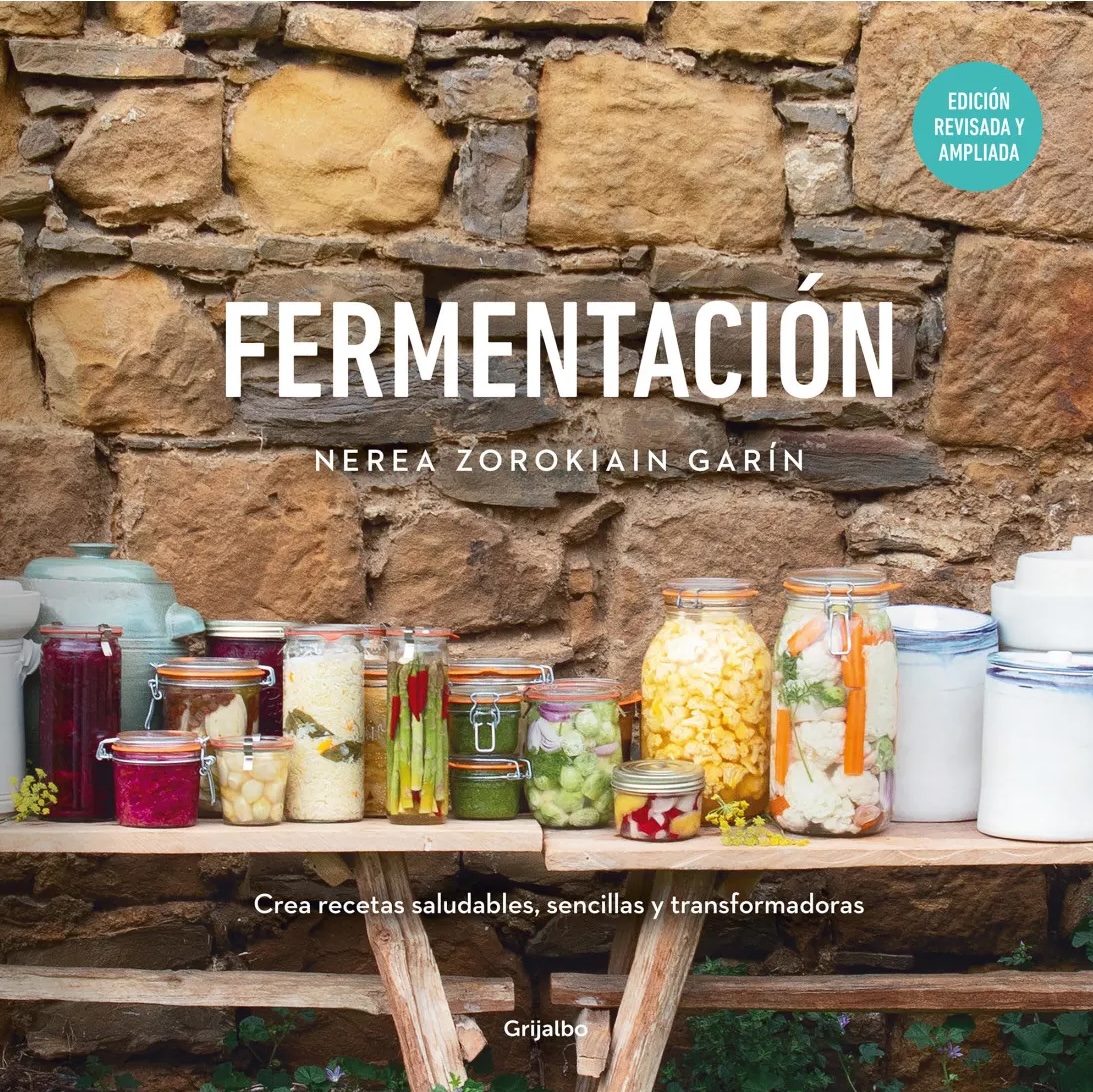Marilar Aleixandre
Marilar Aleixandre (Madrid, 1947) is a writer, translator, and biologist. She earned her degree in Biology from the Universidad Complutense de Madrid. In 1973, she moved to Galicia to work as a high school teacher at the Instituto do Calvario. Most of her literary work is written in Galician, and since 2017 she has been a member of the Royal Galician Academy. Her body of work spans short stories, children’s and young adult fiction, as well as adult fiction. Among her books are A expedición do Pacífico (Xerais, 1994), a YA novel awarded the Premio Merlín and the Premio da Crítica; A banda sen futuro (1999), winner of the Lazarillo Prize for YA fiction in 1999 and the Lecturas Prize in 2001; and A cabeza de Medusa (Xerais, 2008; La cabeza de Medusa, Anaya, 2009), recipient of the Fundación Caixa Galicia Prize. Her latest novel, As malas mulleres (Galaxia, 2021; Las malas mujeres, Xordica, 2022), received the Premio Blanco Amor in 2020 and the National Literature Prize in 2022.
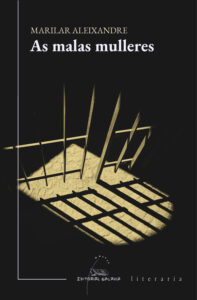
As malas mulleres
Winner of the 2022 National Narrative Prize and the 2020 Premio Blanco Amor.
The reader embarks on a harrowing and compelling journey through the final stretch of the 19th century, told through multiple voices: Sisca, a fifteen-year-old girl imprisoned because women are not considered owners of their own bodies; Concepción Arenal, prison reformer; and Juana de Vega, women far less known than they deserve to be. Their voices are joined by the “mute chorus of the bad women,” chanting stories of encounters with sexual predators. The novel is written against oblivion, to recover the memory of the excluded—those imprisoned at La Galera prison (A Coruña) in 1863. At its heart lies the tension between Arenal’s good intentions, tinted by the belief that crime equals sin, and Sisca’s fierce resistance. It is also a tribute to the power of books and reading to dignify human lives.
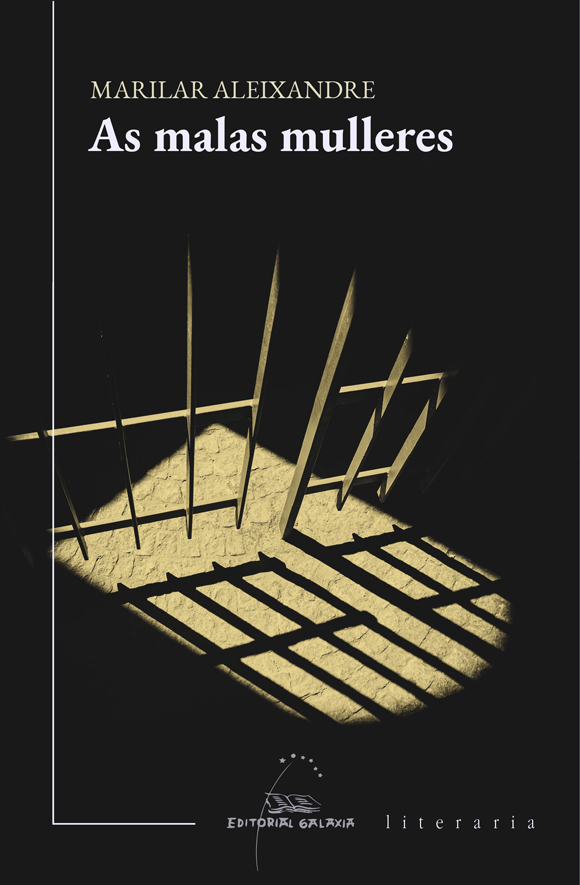
María Fernanda Ampuero
María Fernanda Ampuero (Guayaquil, 1976) studied literature at the Universidad Católica de Santiago de Guayaquil. For several years, she worked as a journalist at El Universo, one of Guayaquil’s leading Sunday newspapers. In 2004, she moved to Spain to focus on writing. She is the author of Lo que aprendí en la peluquería (Dinoediciones, 2010), Permiso de residencia (La Caracola Editores, 2013), Pelea de gallos (Páginas de Espuma, 2018), Sacrificios humanos (Páginas de Espuma, 2021), and Visceral (Páginas de Espuma, 2024). Among the awards and recognitions she has received are the Joaquín Gallegos Lara Prize for Pelea de gallos in 2011—which was also selected as one of the best books of the year by The New York Times in Spanish—and a finalist spot for the Premio Tigre for Sacrificios humanos in 2021.
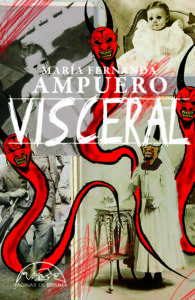
Visceral
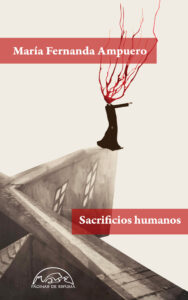
Sacrificios humanos
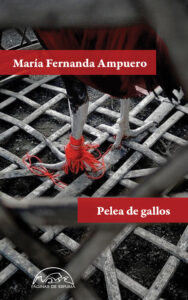
Pelea de gallos
A COVID-infected corpse lies shrouded on a couch beneath a sun umbrella. Next to it, a sign reads: “We called 911 and no one came.” It’s a morning in Guayaquil in 2020. Full pandemic. This haunting image of death captures the blow and descent that is Visceral.
A book that hovers between autobiography, memory, and autofiction—a kind of manifesto pierced by the present, traversing the fears and obsessions, experiences and memories, revelations and searches of María Fernanda Ampuero. Violence against women. The violated body, the rejected body. Desire and sexuality. Mental health, obesity, childhood. Motherhood and maternal roles. Postcolonialism, ecopolitics, feminism. Writing and reading.
A monstrously honest, raw, demonic book, filled with furious exhortation.
We can all be someone else’s demon. We can all be someone else’s human sacrifice.
María Fernanda Ampuero, one of the most essential voices in contemporary Latin American literature, plunges us into a damp, rotten, and hostile universe where violence defines the narrative of our lives. In this world, a many-headed beast looms, terrorizing and devouring the weak, the marginalized, and the disposable—those sacrificed in the name of silence, inequality, hatred, abuse, and death.
Each story is a cry that bears witness to the victims of these human sacrifices—victims who remain, day after day, on the altars of those who glorify them, conceal them, or look the other way.
Pelea de gallos tells the story of the home through many voices. That space that builds—or destroys—people, exploring family bonds and their secret codes, power dynamics, affection, silence, solidarity, and abuse… In short, all the horrors and wonders contained within the four walls of a home: the terror and the glory of everyday life.
In her debut collection, María Fernanda Ampuero brings together a cast of innocent beings who become corrupted, people afflicted by love, loneliness, loss—those who fight, in their own way, against the cruel clarity of being alive. She does so in a powerful collection deeply rooted in Latin America, where each page unpacks cultural, political, and social elements that portray a continent in all its complexity, in its radical differences and deep similarities.
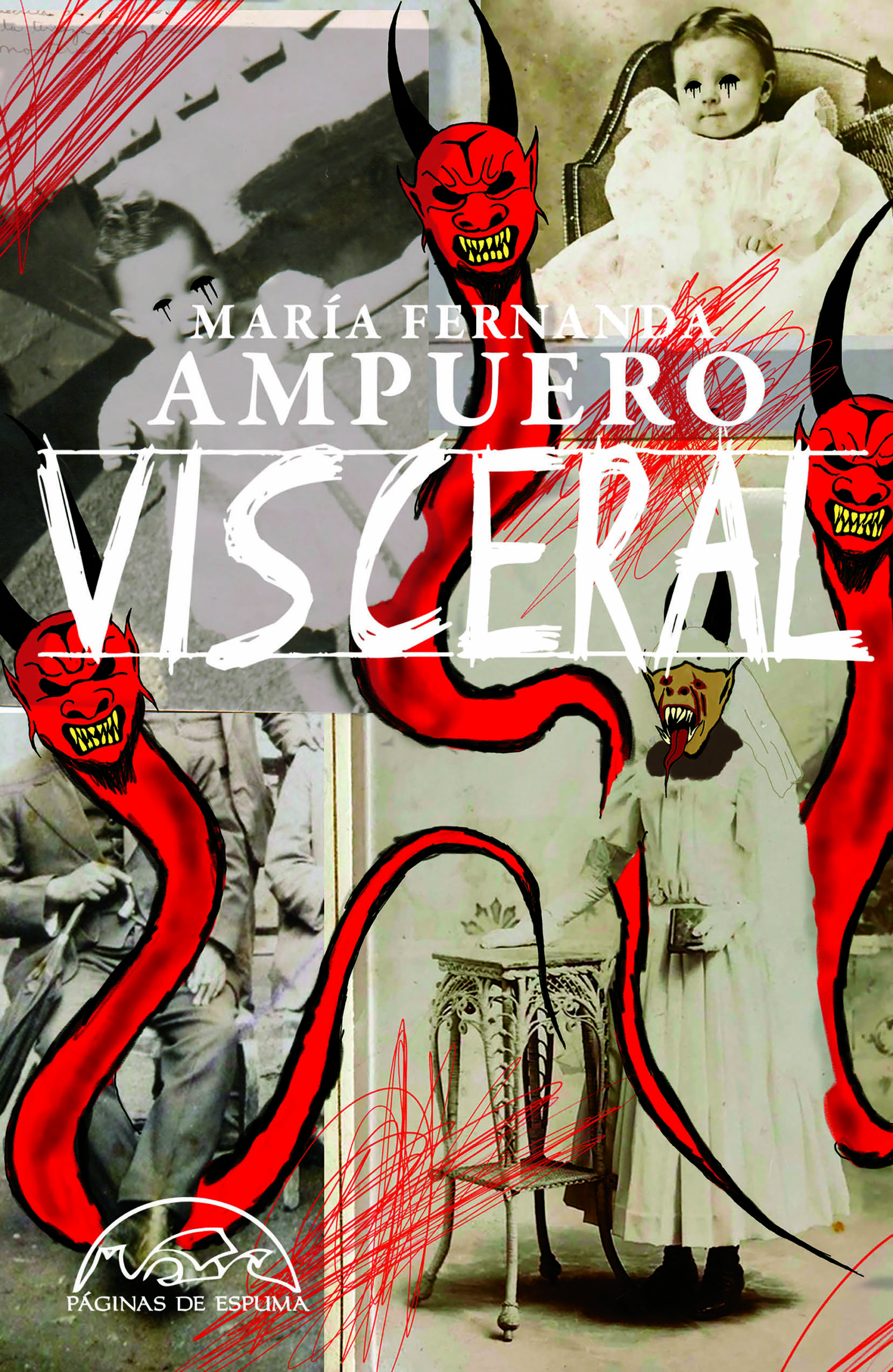
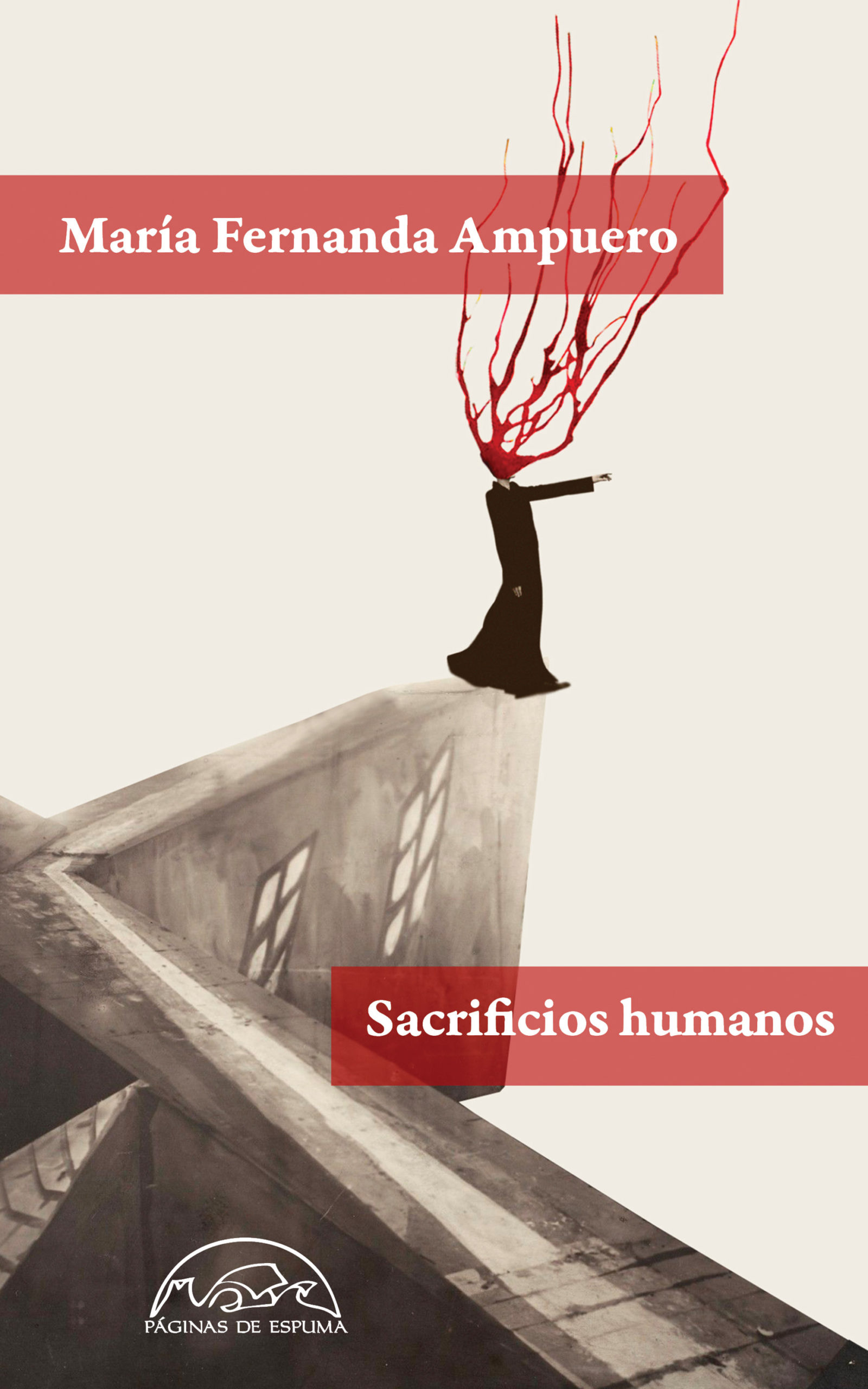
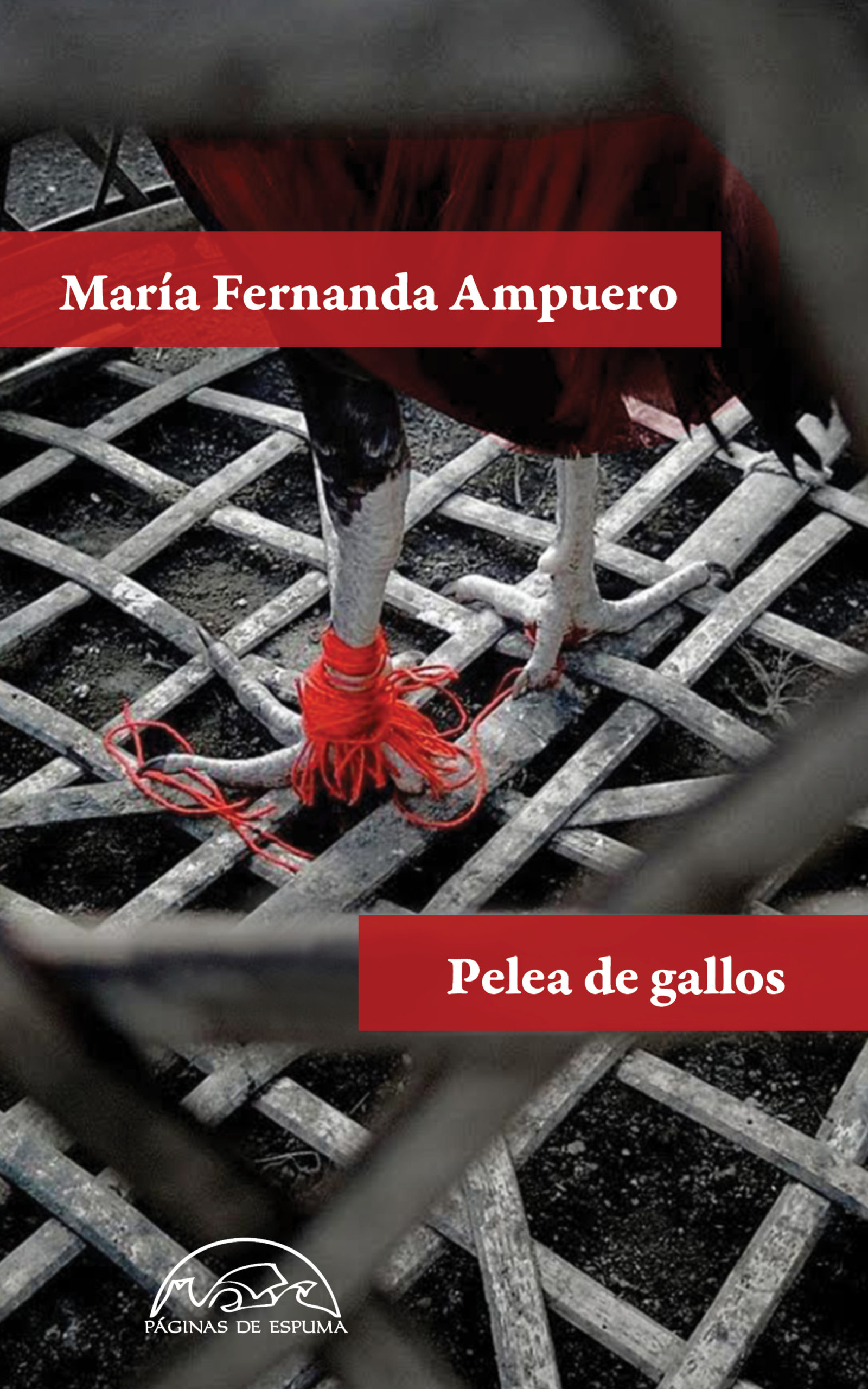
Bego Arretxe Irigoien
Bego Arretxe Irigoien (Barcelona, 1968) has a degree in philosophy and has done postgraduate work in cultural management, human rights and peace building. She lived in Mexico for eight years working at CDH Fray Bartolomé de Las Casas and at Veracruzana University. In 2014, she returned to Barcelona and works as a consultant and trainer for European and Latin American organizations. She is the co-author of the books: La cárcel y su afrontamiento personal y colectivo (Colectivo Ik’ and Medicos Mundi, Chiapas, Mexico, 2003) and Bordando pensamientos (Veracruzana University, Xalapa, Mexico, 2013) She studied at the Chiapas Writing School of SOGEM and at the Lolita Bosch Literary Campus where she also taught literary creation.

No creas una palabra
A story of love, friendship and rock and roll in the head-banging Barcelona of the late eighties.
The day she was commissioned to write a biography about the lead singer of Thin Lizzy, the soundtrack of her youth, Marta knew that she would have to face the embers of a past that still smoldered. Phil Lynott’s life was going to bring her back to that twenty-year-old Marta: studying at university, living alone and discovering, along with her inseparable friends, Happy and Pipe, the Barcelona that escaped the Olympic dream. It was a Barcelona at its most rebellious and radical, a city of punk and heavy metal concerts in dive bars, of unleashed violence in the streets, and the one that was devastated by heroin and AIDS.
But Phil Lynott’s life was also going to bring Marta back to her story with Manu. To her days with him. To that too-small apartment, to those boots that she liked so much and that he insisted on buying her despite believing they were too expensive, to Chopin’s Nocturnes that Manu gave her and that she took too long to listen to. To Manu’s death. To his final days. To the turning point of her life.
In the midst of this frenetic dance featuring music, heroin and AIDS, «Don’t Believe a Word» also pays tribute to mothers: to all those who fought for their drug-dependent children and those who defended their daughters’ freedom.
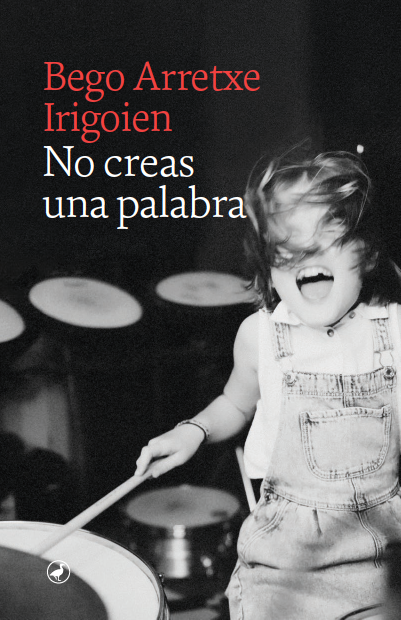
Marc Artigau i Queralt
Marc Artigau i Queralt (Barcelona, 1984) has a degree in stage direction and dramaturgy from Barcelona’s Institut del Teatre. He has received several literary awards: the Ciutat de Sagunt, Les talúries, the Gabriel Ferrater for young poets, and the Premi Quim Masó. As a playwright he has worked with Dagoll Dagom, Julio Manrique, David Selvas, Àngel Llàcer, and Oriol Broggi, among others. In the category of best adaptation, he won the Premi Max and the Premi de la Crítica awards. His novel La Vigília won the Premi Josep Pla in 2019. He has collaborated with Catalunya Ràdio and currently with El món a RAC1.
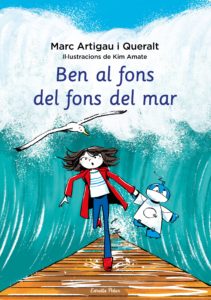
Ben al fons del fons del mar
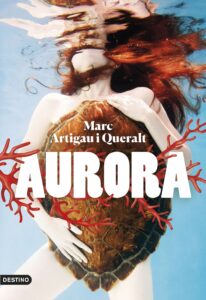
Aurora
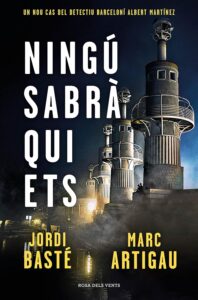
Ningú sabrà qui ets
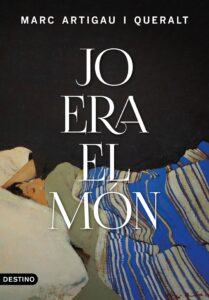
Jo era el món
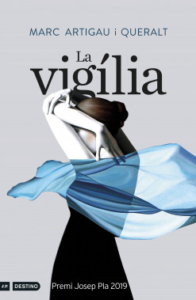
La vigília
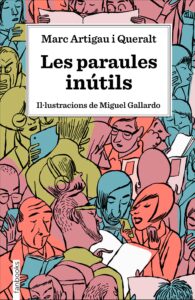
Les paraules inútils
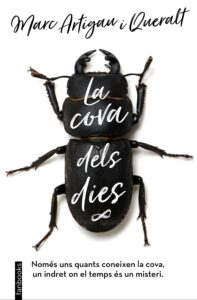
La cova dels dies
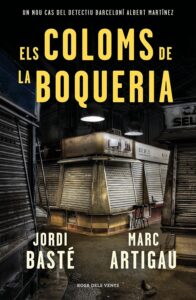
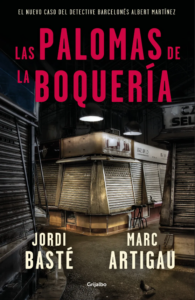
Els coloms de la Boqueria
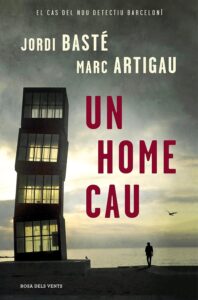
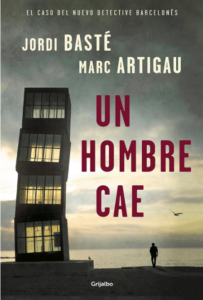
Un home cau
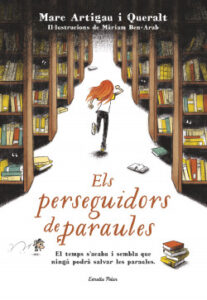
Els perseguidors de paraules
With a nod to mythological beings and great works such as Moby Dick and Pinocchio, Marc Artigau returns with a novel full of adventures and a powerful environmental message.
Lina lives with her grandfather since her mother disappeared at sea ten years ago. One day, she hears a song, that only she can hear, coming from the sea. Together with her grandfather and Melvil, her robot friend, they embark on a journey into the deep sea to find the origin of this melody.
During this journey they meet Gavi, a seagull that lives on a huge island made of plastics and garbage, and they also find Verne, an old abandoned submarine that will allow them to travel to the bottom of the sea in order to solve these mysteries: Where does the song come from? And what happened to Lina’s mother?
Aurora does not want Àngel to call her “mother.” On the margins of all convention, they live a strange dependence on one another, in a universe that is theirs alone. Coral is the hidden treasure of this small coastal town, the red gold that is its wealth and also the downfall of many. With the help of his uncle Jonàs, a coral fisherman, Àngel learns the risky job of diving for it. But in this small village, it is not the sea, but the village itself that will drown mother and son. Dead birds appear at their door, graffiti on the walls, and the rumors against them become threats, until they are expelled. Exiled in the city, to save Aurora from a life of misery and depression, Àngel only dreams of coral. But his secret life has filled him with ghosts and worries.
Rafa is a high school history teacher who has been moving around the darkest parts of the internet for a long time trying to start a revolution. Convinced that society is rotten and that only a good shake can get people to react, he manages to gather a group of young people willing to go to the ultimate consequences. “You have taught us that being peaceful is useless,” reads the graffiti on the wall, while the riots in Barcelona are getting worse and worse. The group’s first objective is clear: to attack the director of the Bank of Catalonia. Meanwhile, detective Albert Martinez has traveled to London to rebuild his life. About to turn fifty, he is suffering from an identity crisis, but a call from Commissioner Pérez Navarro, disturbed by the strange circumstances of the kidnapping of an extreme right-wing politician, will force him to return to investigate.
The mysterious disappearance of Ariadna, a seventeen-year-old teenager, in a town called Arveda will trigger the reactions of her family and friends in a suffocating environment where nothing is what it seems.
Raimon writes stories for the radio and lives with his brother Blai, who is crushed after a childhood accident in the forest and who now lives a simple life as an employee in a workshop. One day Rai receives a strange job: an older woman who always listens to his stories, Cèlia, wants to hire him to write her biography: “I could never imagine your stories would describe my life so well.”
Her story will grow, somewhere between fiction and memory. She tells him to rewrite everything she lived and he tries to figure out what is hidden behind that innocent offer.
The Eve is a captivating novel that brings together the best and worst of humankind. It is a story about the infinite power of love, the value of our memories, and the life we choose to lead to survive our past.
A selection of the best stories from the Rac1 program “El conte de Marc Artigau,” accompanied by unpublished stories and poems, and with illustrations by Miguel Gallardo.
The night Júlia turns eighteen, her grandfather is murdered. When the undertakers ask for his papers, they find nothing about him. Apparently, this man never existed. From this point on, Júlia and Gregor, her best friend and boyfriend, embark on a delirious adventure to discover who the girl’s grandfather really was. But Júlia can’t even imagine what awaits her: the discovery of the cave of days, which is a secret and tiny place on earth where the passage of time does not exist…
While on vacation in New York, Albert Martinez, receives a message: “A woman has been killed in the Boquería.” One late summer morning, the famous market on La Rambla has awakened to a macabre scene that upsets the city. What should have been a quiet day in one of the most colorful and bustling corners of downtown Barcelona, has been stained with blood after a gruesome crime.
Rights sold: World Spanish (Grijalbo)
One spring night, private detective Albert Martínez witnesses a disturbing scene: two men approach the most dangerous part of the Mar Bella breakwater, gesticulating as if they were arguing. After a while, only one returns. Thus begins an exciting investigation that will lead him to discover the darkest secrets of a wealthy and influential family of the city. Alongside the exceptional detective Albert Martínez, we enter a setting and story as original, gastronomic, nocturnal and hidden as Barcelona itself.
Rights sold: World Spanish (Grijalbo)
Noa is a restless and very observant girl. One morning, she discovers a mystery that leaves her very intrigued: words are disappearing…To solve this enigma, Noa will go to the school library. There she will start a thrilling adventure story full of fantastic characters: tiny apostrophes, disgusting barbarisms…and a nameless monster fully prepared to destroy words.
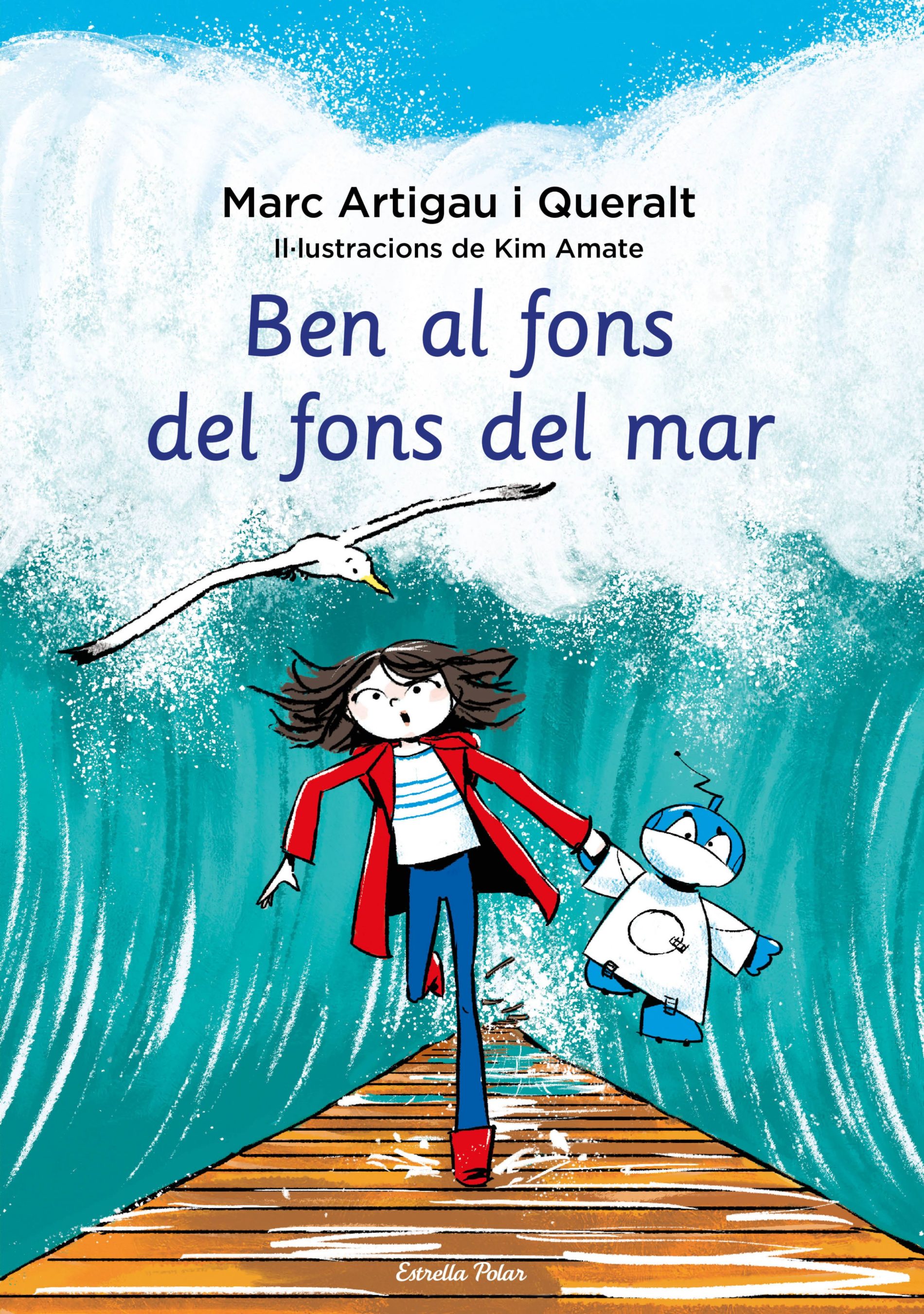
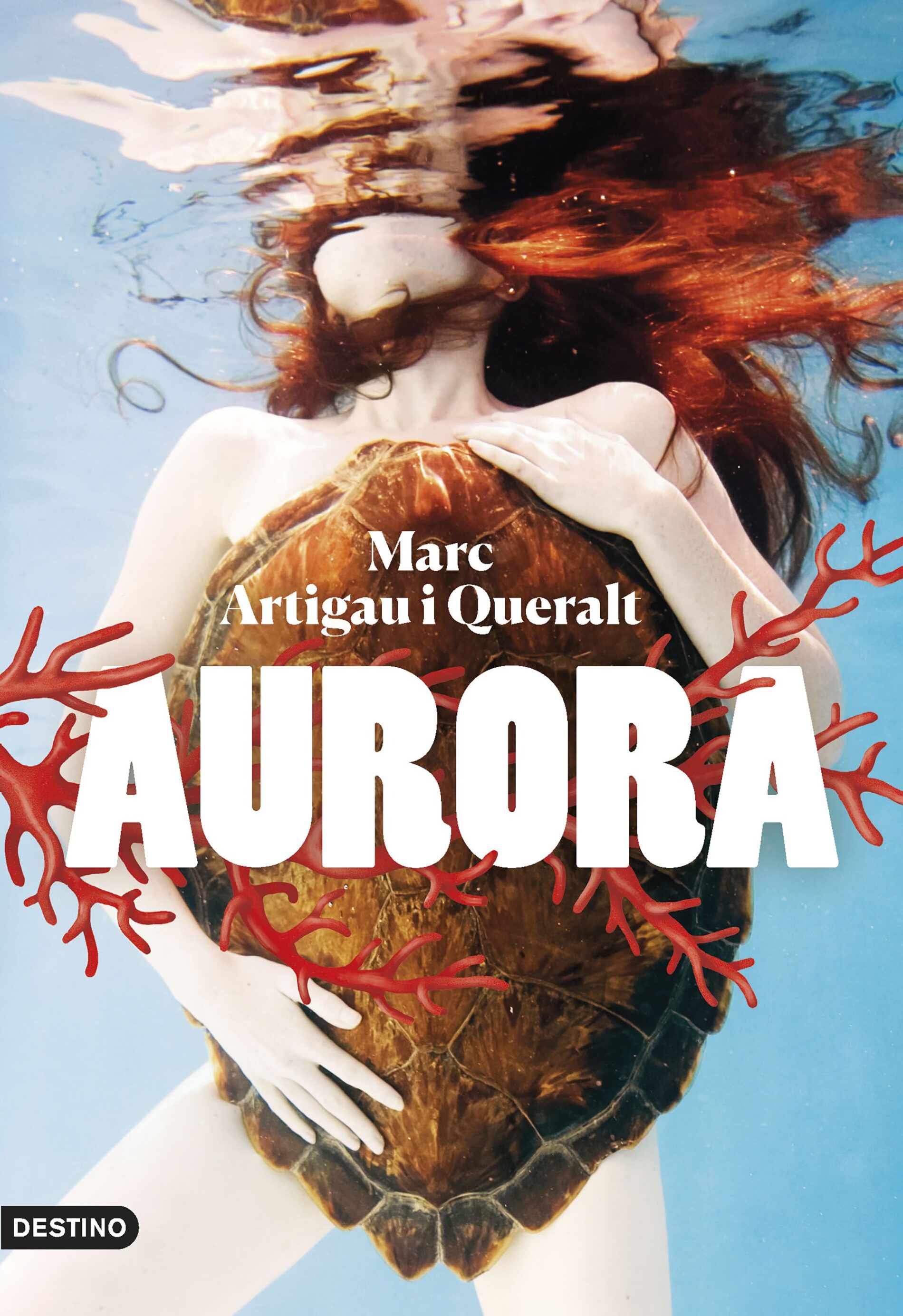
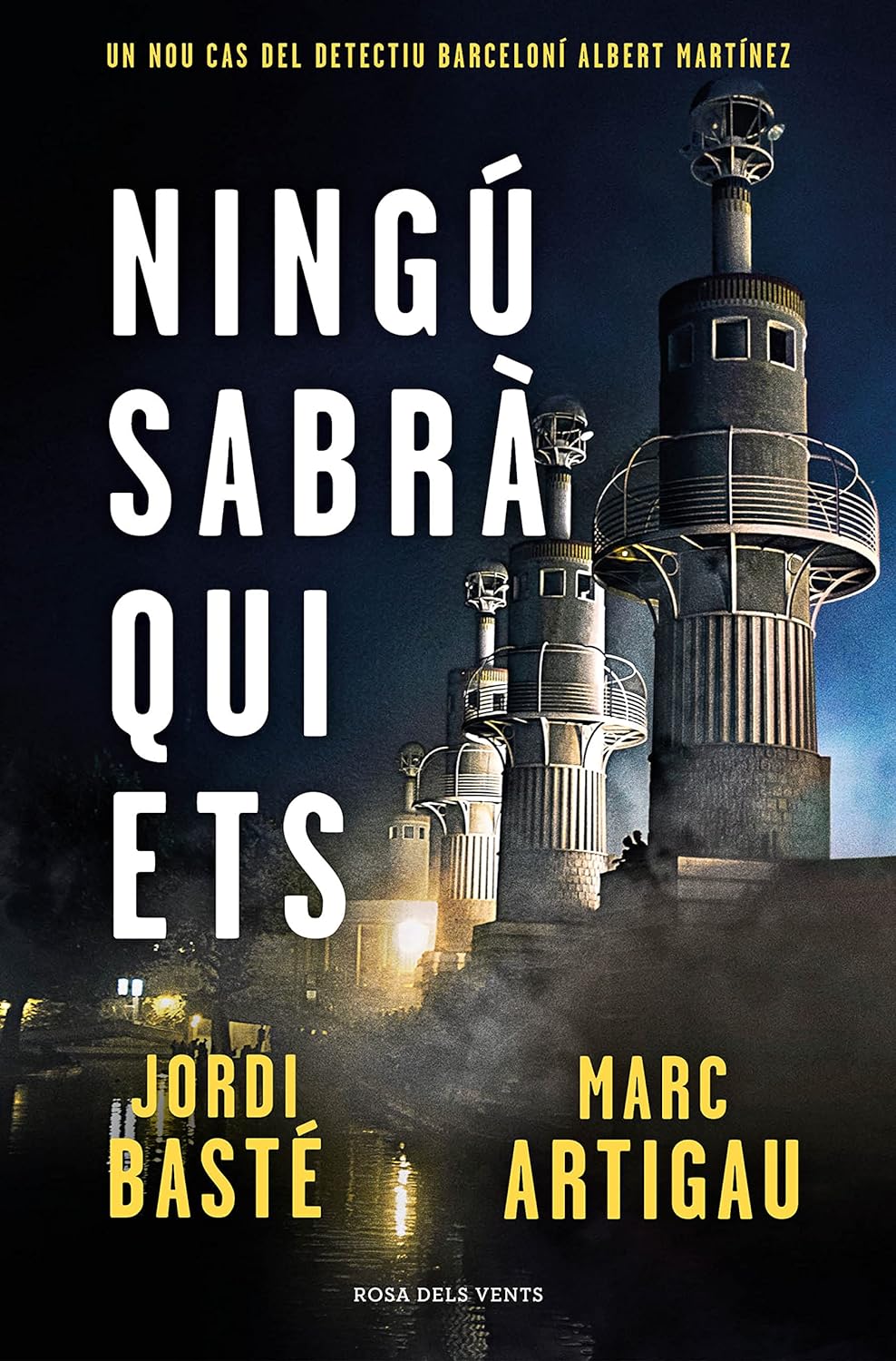
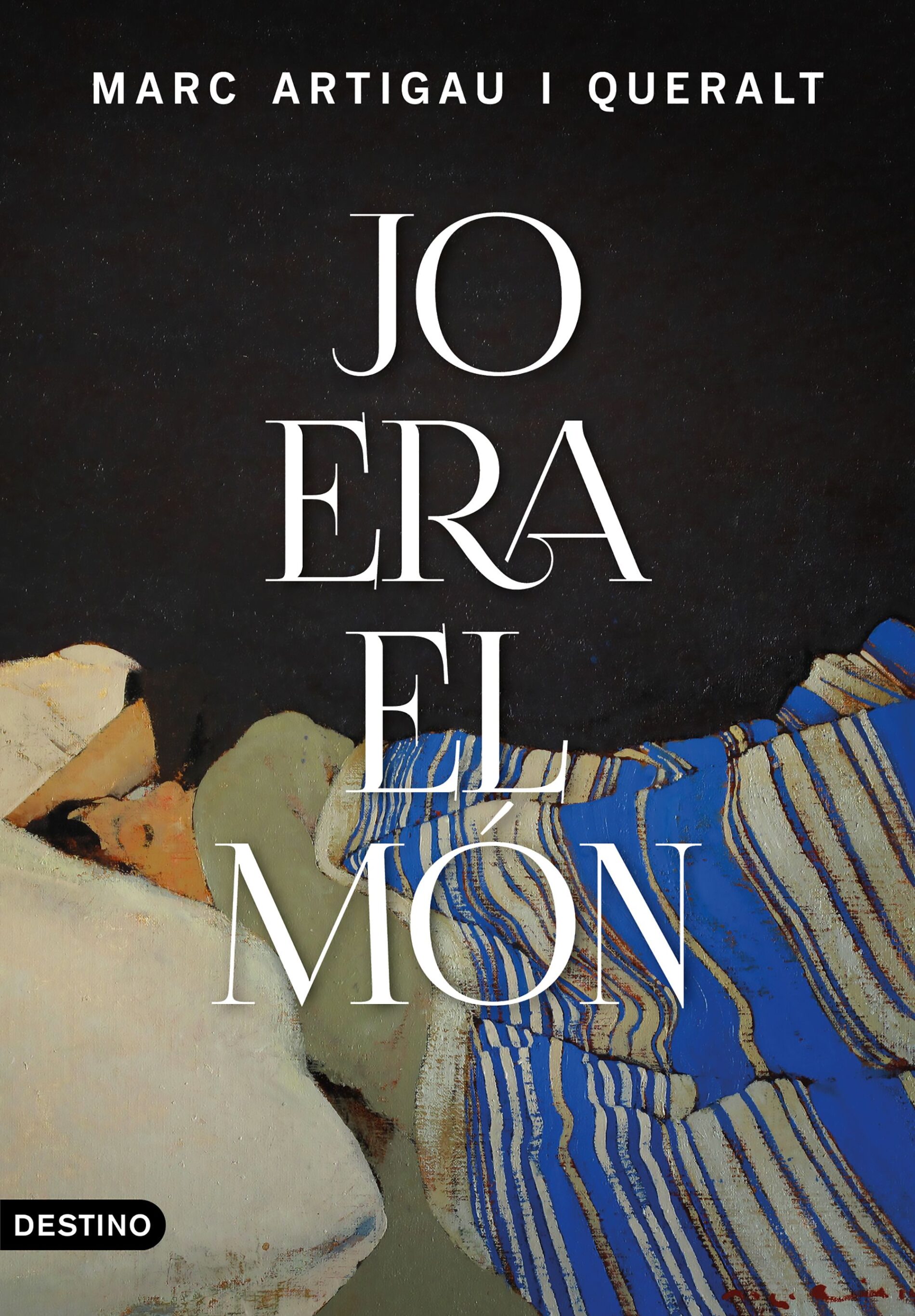
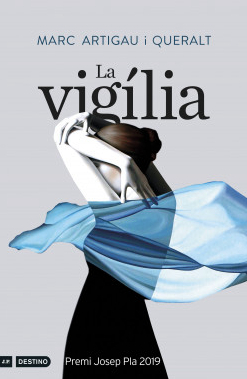
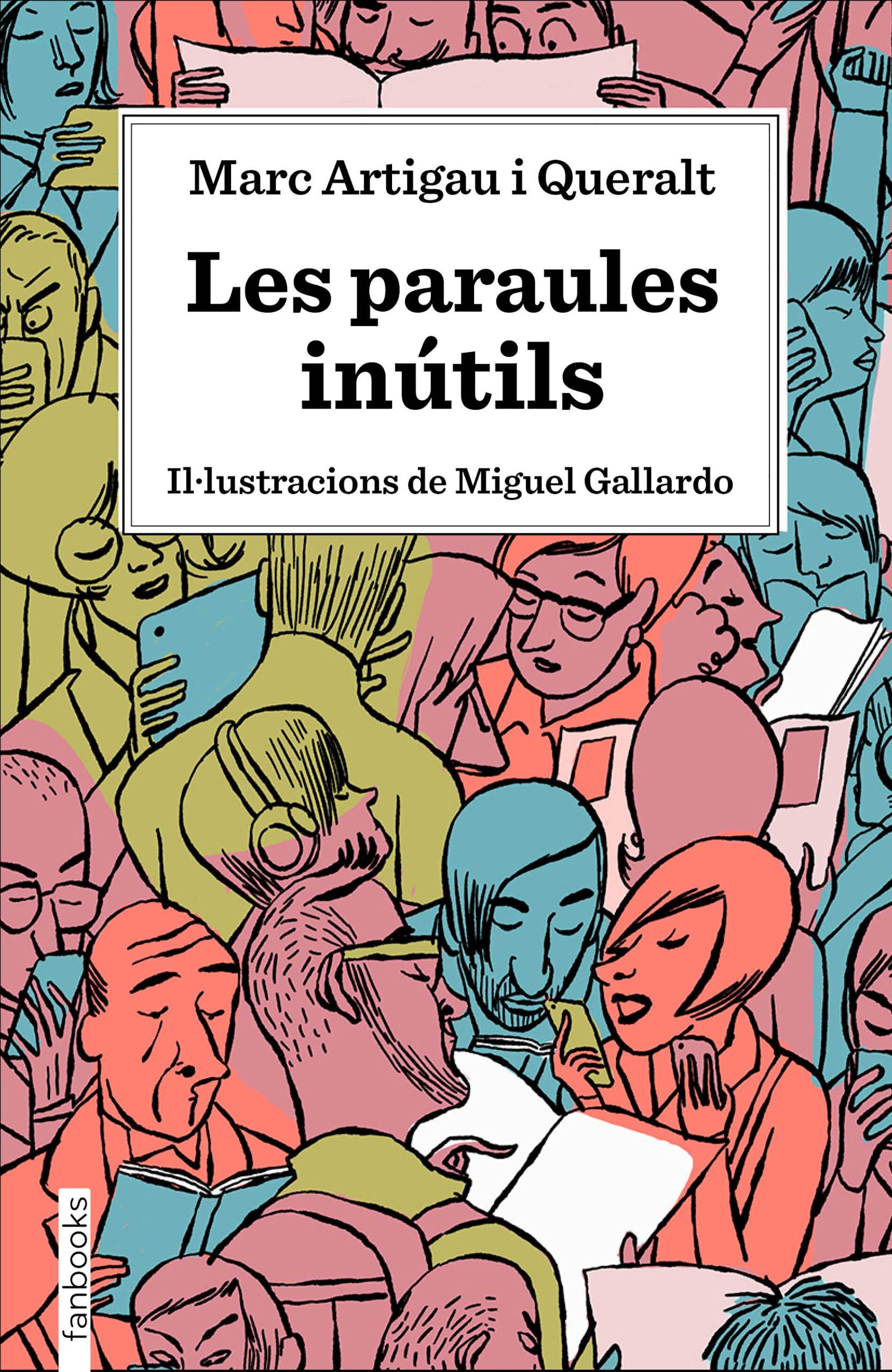
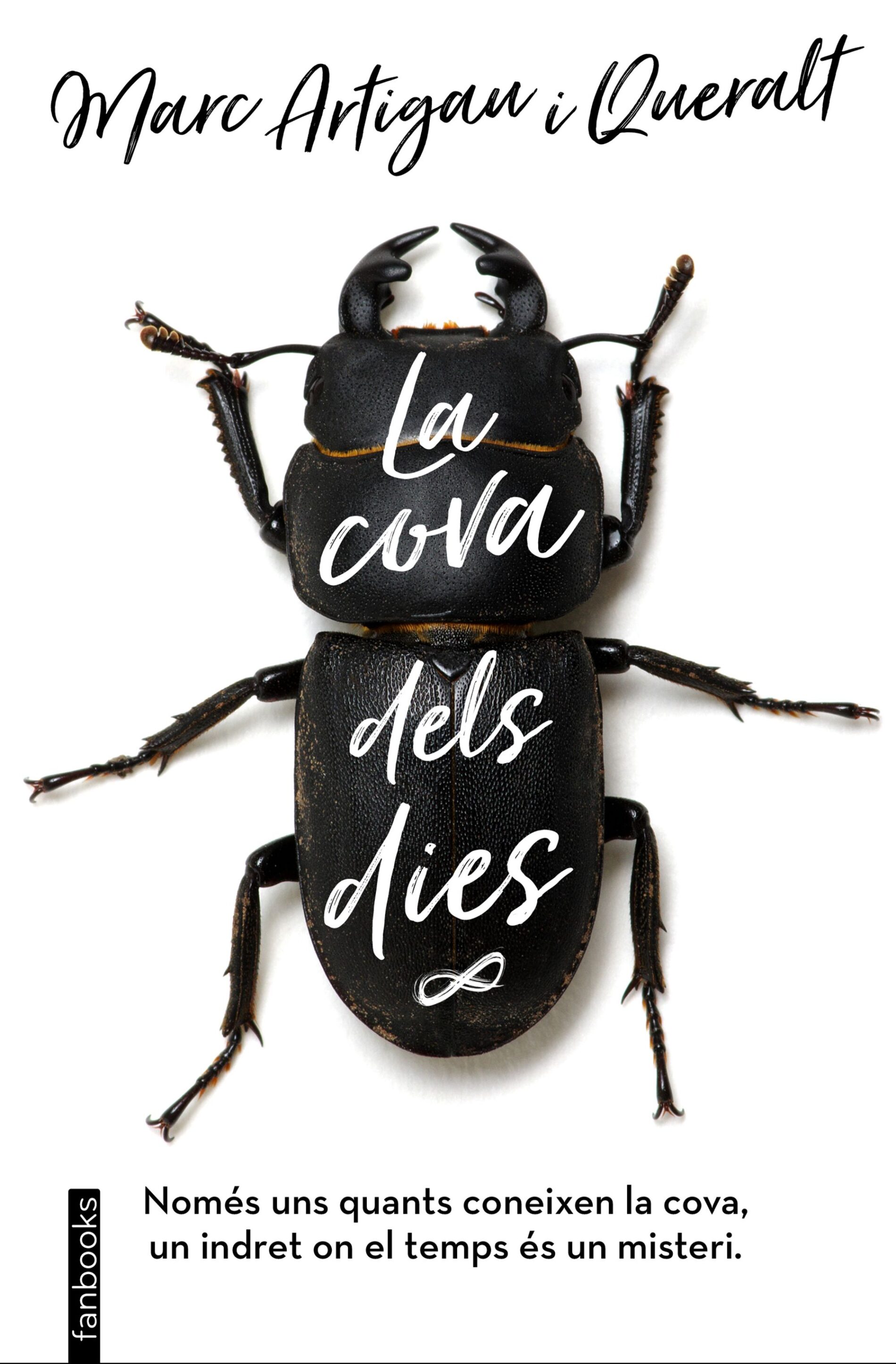
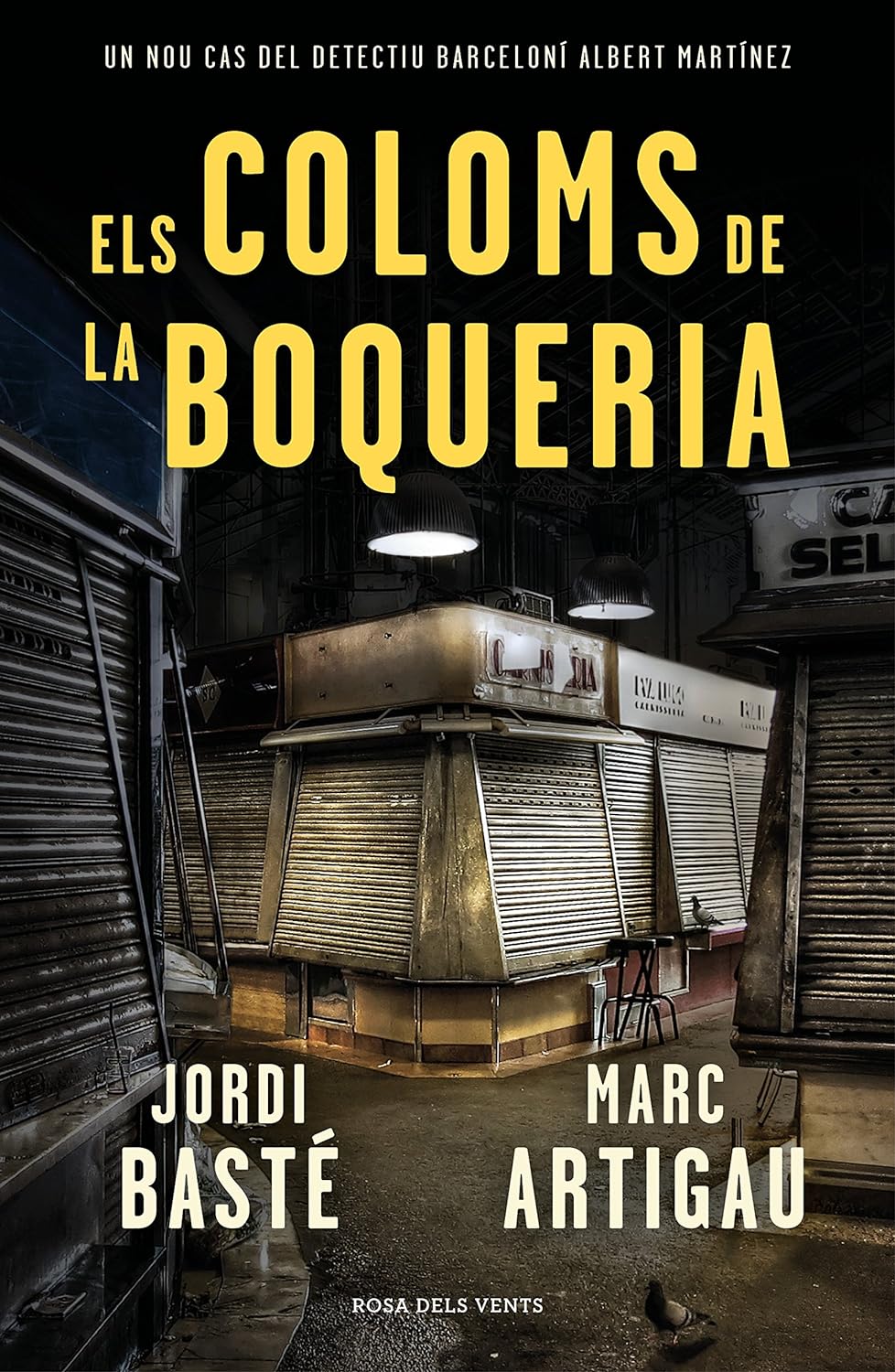
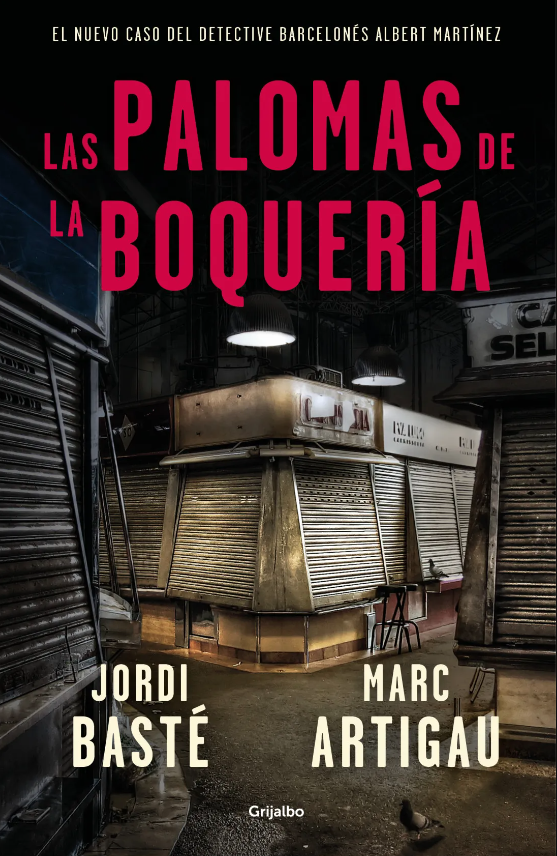
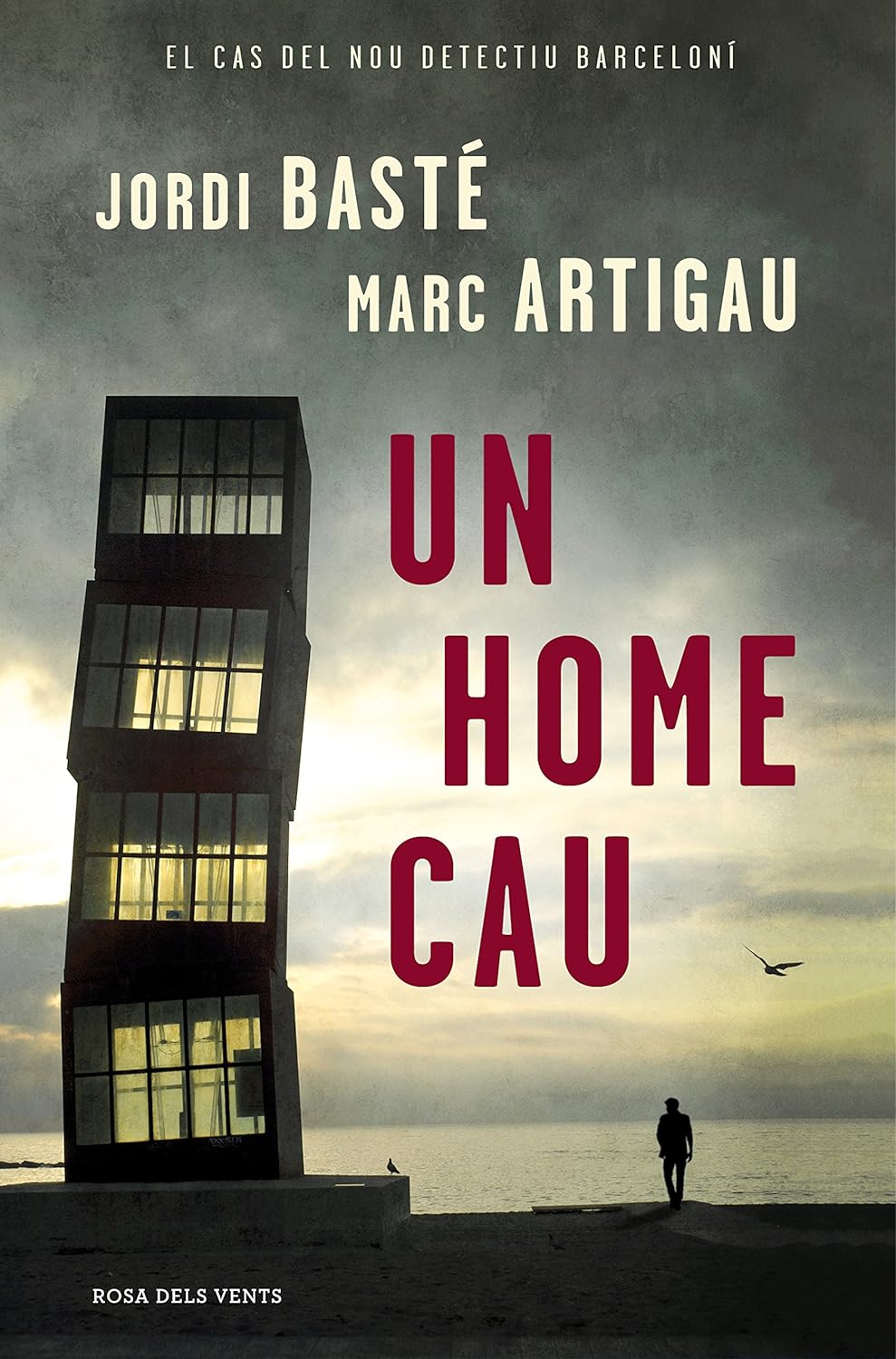
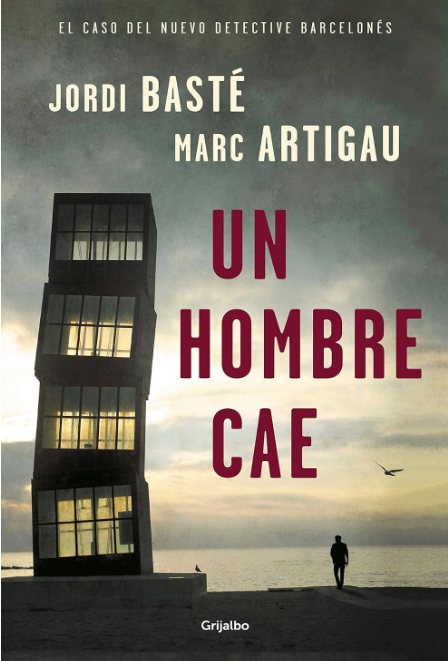
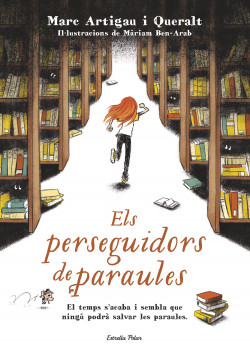
Jordi Basté
Jordi Basté (Barcelona, 1965) is the director and presenter of El món a RAC1, Catalonia’s leading radio program. He worked at Catalunya Ràdio for twenty-two years, where he collaborated as a basketball broadcaster. He also presented La jornada on Sunday afternoons and the nightly sports program No ho diguis a ningú.
In 2004 he joined RAC1, where, in addition to being head of Sports, he presented the nightly sports program Tu diràs. At the beginning of 2007 he replaced Xavier Bosch at RAC1’s morning program El món and currently publishes a weekly column in La Vanguardia’s Sunday edition. He has won several awards in recognition of his radio work, including a Protagonistas, three Ondas, an Òmnium de Comunicació, the King of Spain Journalism Award, the National Radio Award, and four Ràdio Associació awards.

Ningú sabrà qui ets

Els Catarres X
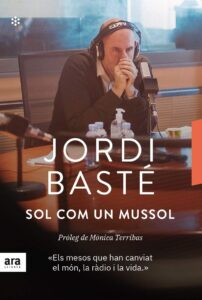
Sol com un mussol
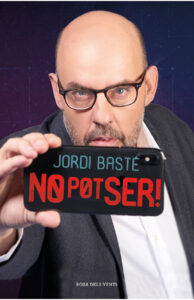
No pot ser!


Els coloms de la Boqueria
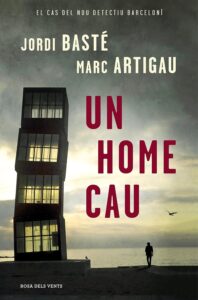

Un home cau
Rafa is a high school history teacher who has been moving around the darkest parts of the internet for a long time trying to start a revolution. Convinced that society is rotten and that only a good shake can get people to react, he manages to gather a group of young people willing to go to the ultimate consequences. “You have taught us that being peaceful is useless,” reads the graffiti on the wall, while the riots in Barcelona are getting worse and worse. The group’s first objective is clear: to attack the director of the Bank of Catalonia. Meanwhile, detective Albert Martinez has traveled to London to rebuild his life. About to turn fifty, he is suffering from an identity crisis, but a call from Commissioner Pérez Navarro, disturbed by the strange circumstances of the kidnapping of an extreme right-wing politician, will force him to return to investigate.
With their ultra-bright, optimistic and danceable songs, Els Catarres were the first Catalan festive pop group to be played on the country’s commercial radio stations and pioneers in selling out venues like Barcelona’s Sant Jordi Club. But Els Catarres’ story is also the life story of Joan, Roser and Èric, three young people who were catapulted into the spotlight overnight. Thanks to the power of social networks along with their perseverance, talent and inspiration, they managed to make a name for themselves in the music scene. Through the eyes of Jordi Basté, this intimate and sincere book covers ten years of Els Catarres anecdotes, secrets and confessions, along with unpublished documents, that promise to take you on a journey through a decade as wild and as “catarra” as they are.
When Jordi Basté was locked up at home with fears and uncertainties after having tested positive for Covid-19 and with a good part of the team ill, he made the impossible possible: Six hours a day of radio and record audience numbers during an exceptional situation. The journalist discusses the obsessions and concerns of those days and what made him smile: Pieces of the construction from the apartment below that appear in his apron; the conversation with Pilar Rahola and Oriol Mitjà that leaves him in shock; the remote coordination of his team that reminds him of the film Ratatouille, and the meeting with Toni Clapés, Angès Marquès and Xavi Bundó to share the experience of doing radio from home. This book is an intimate chronicle of the few months that have changed us all forever.
Accompanied by Jordi Basté, this book allows us to learn about the great advances changing the world: From robotics to food, from transportation to health, from personal relationships through new technologies to the great challenges posed by climate change and Big Data.
While on vacation in New York, Albert Martinez, receives a message: “A woman has been killed in the Boquería.” One late summer morning, the famous market on La Rambla has awakened to a macabre scene that upsets the city. What should have been a quiet day in one of the most colorful and bustling corners of downtown Barcelona, has been stained with blood after a gruesome crime.
Rights sold: World Spanish (Grijalbo)
One spring night, private detective Albert Martínez witnesses a disturbing scene: two men approach the most dangerous part of the Mar Bella breakwater, gesticulating as if they were arguing. After a while, only one returns. Thus begins an exciting investigation that will lead him to discover the darkest secrets of a wealthy and influential family of the city. Alongside the exceptional detective Albert Martínez, we enter a setting and story as original, gastronomic, nocturnal and hidden as Barcelona itself.
Rights sold: World Spanish (Grijalbo)

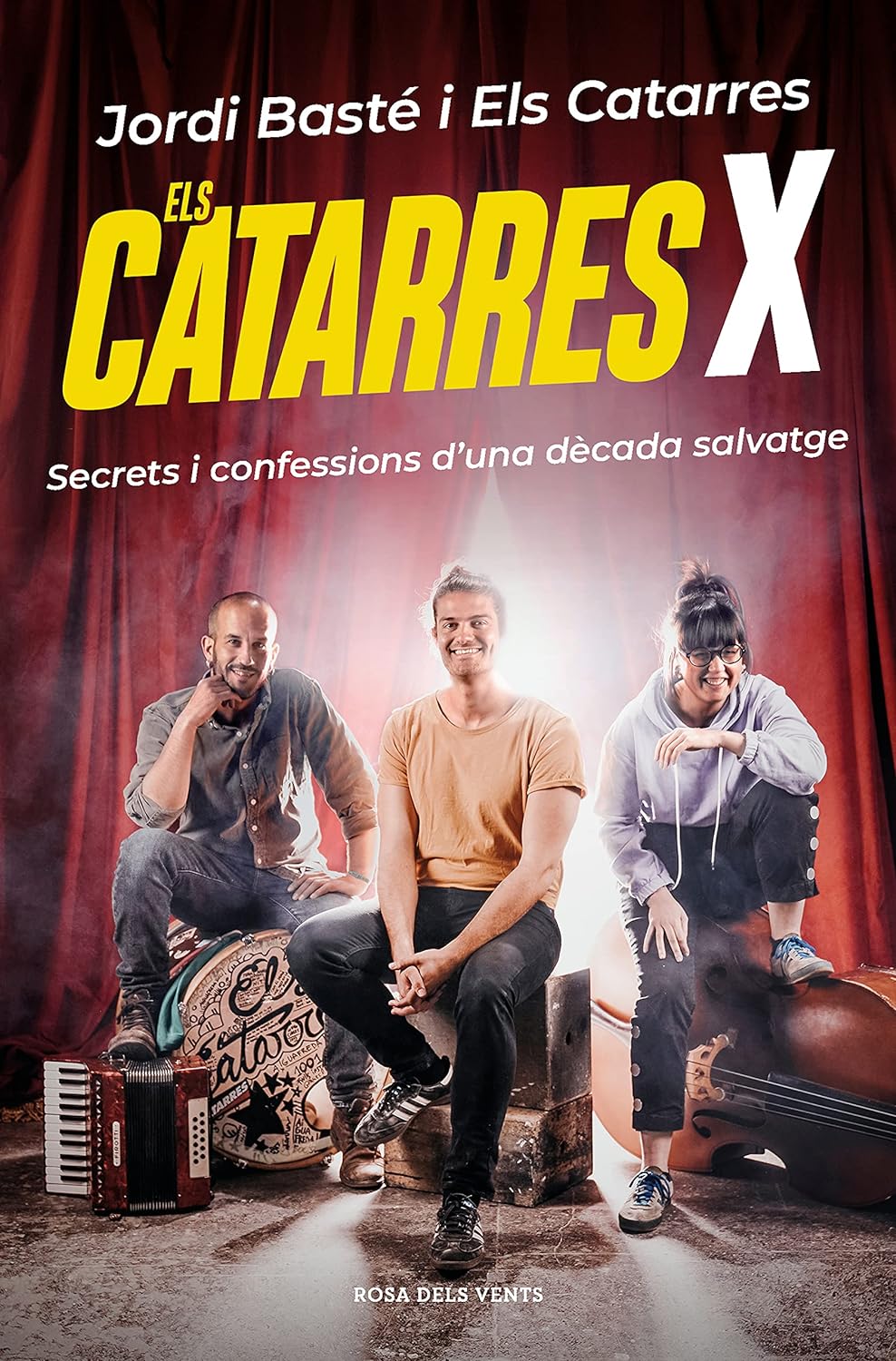
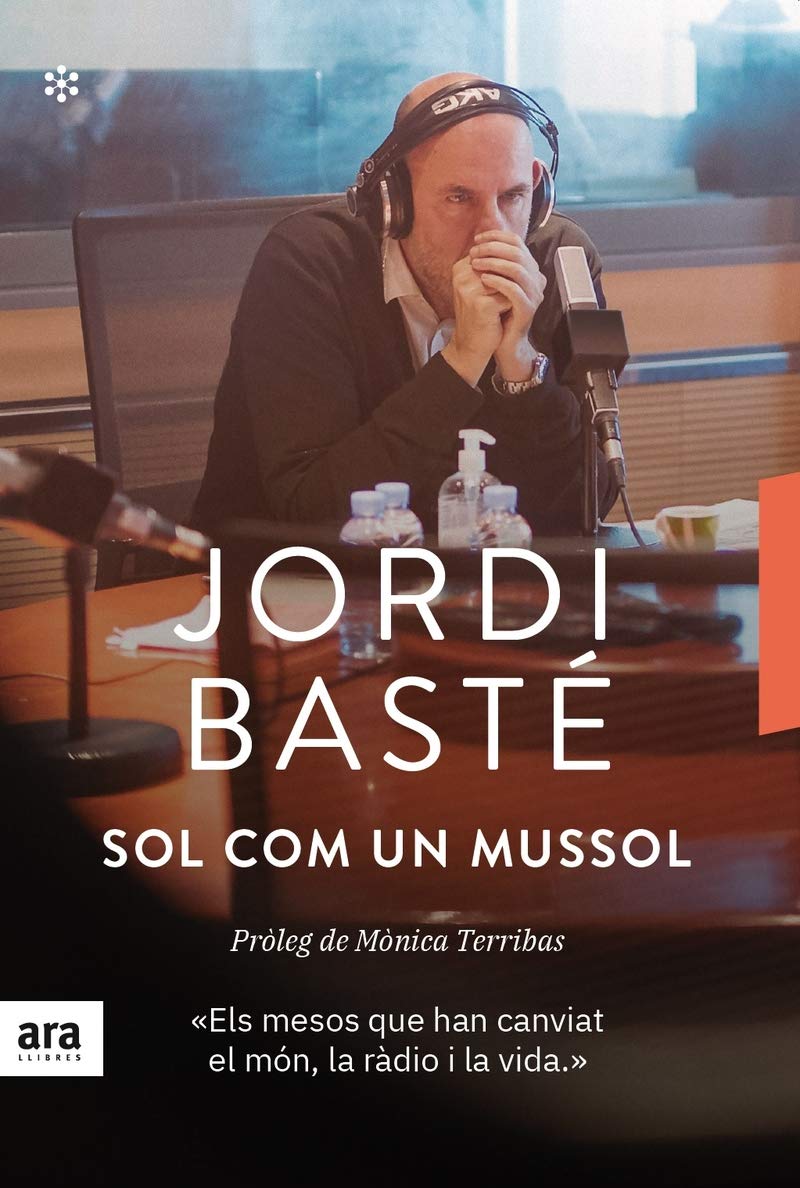
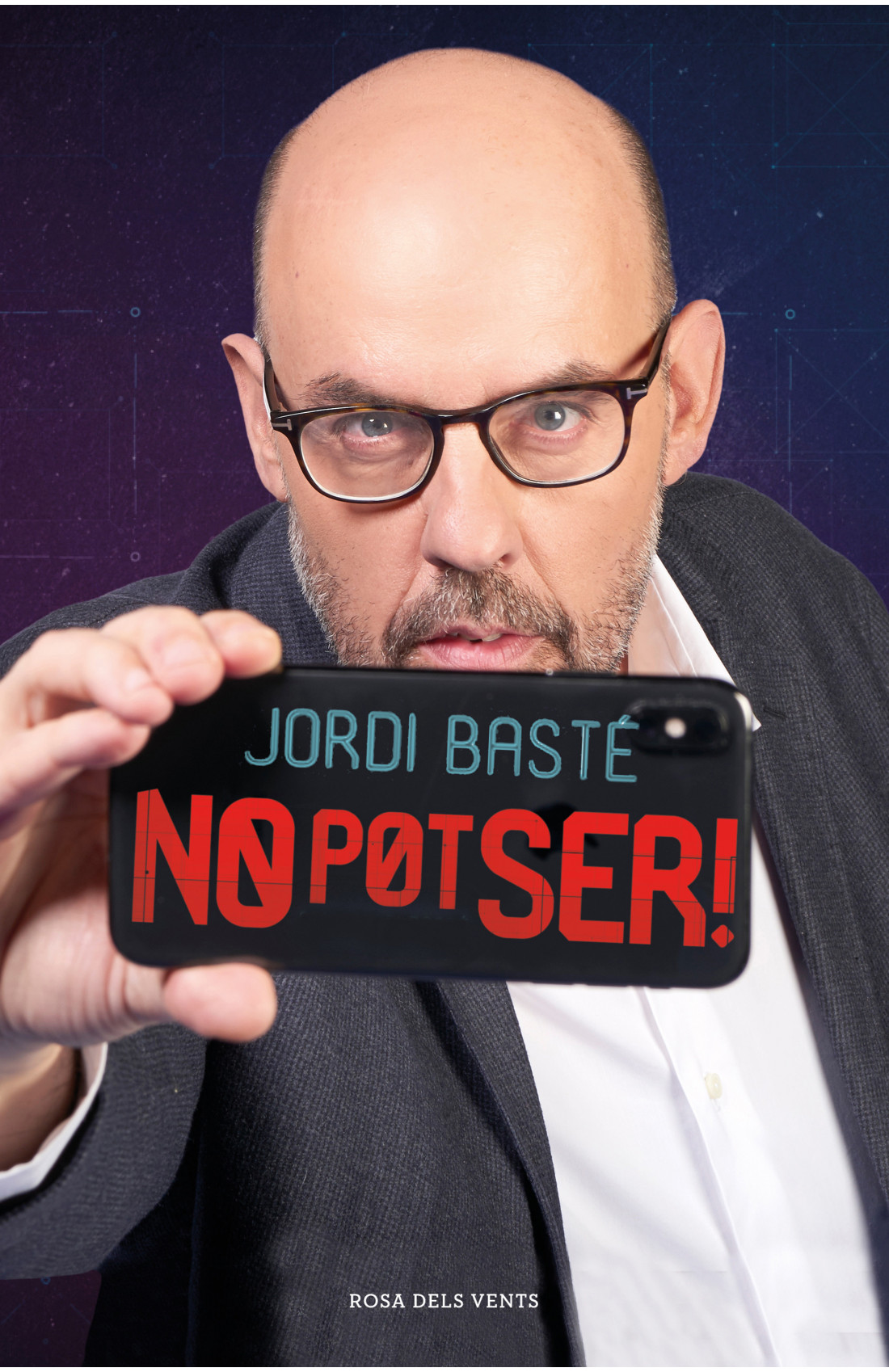


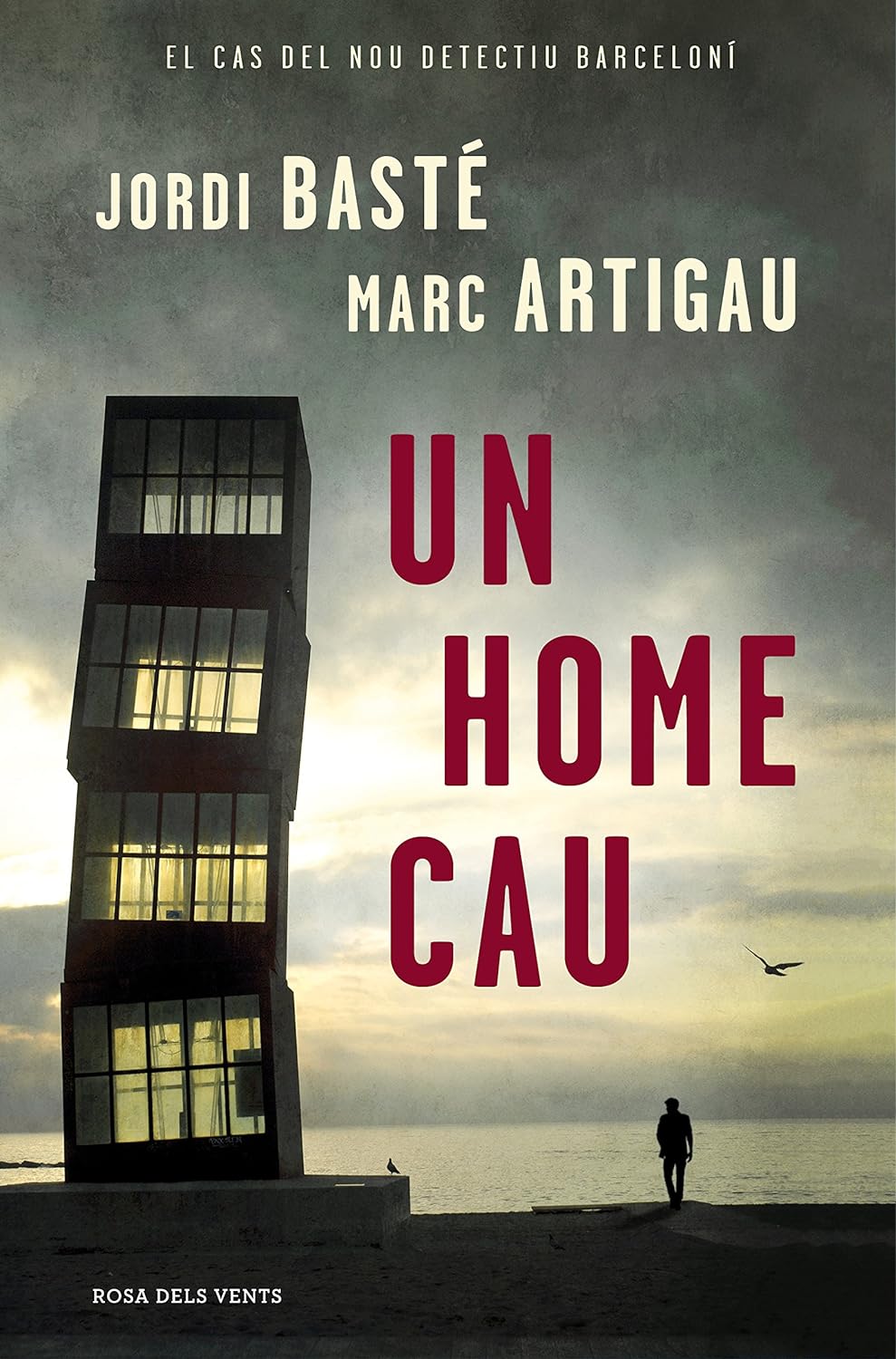

Lolita Bosch
Lolita Bosch (Barcelona, 1970) has lived in Barcelona, Girona, the United States, India, Nicaragua, Oaxaca, and Mexico City. She is a novelist and an author of children’s books, young adult literature and essays. Aside from her research and journalism, she is also the editor of several anthologies. Her work has been awarded prestigious prizes, made into films and theater, and has also been translated into several languages. She has published more than 90 books and collaborates with various renowned media and critics in several countries. She gives a large part of her work and time to the creation and maintenance of peace activism projects through Campus Lolita. A writer, activist, educator and philosopher, she earned a PhD in Philosophy in 2023. She is the creator of the Método Mandarina.


Stop al Bullying
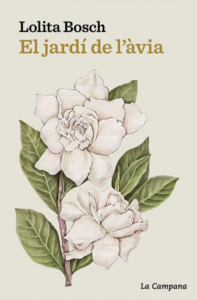
El jardí de l'àvia
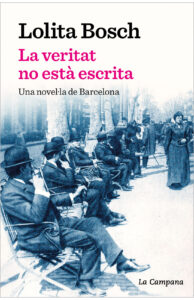
La veritat no està escrita
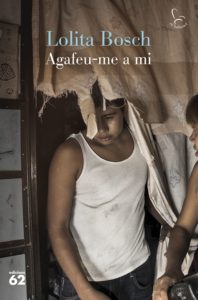
Agafeu-me a mi
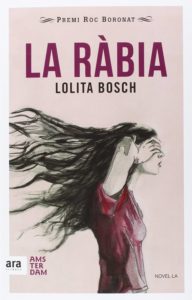
La Ràbia
The definitive guide that includes practical resources to help families, children and educators.
Unfortunately, bullying has become all too common in our schools and its impact is no longer limited to school environments since teens now have unlimited access to social and technological networks. It can happen at any time of day or night. It follows them around the clock. And in the most extreme cases, it ends in tragedy.
This is a guide for action aimed at adults living with children and adolescents. It includes a protocol for detecting and combatting bullying that speaks not only to families and educators, but the adolescent affected. The aim is to involve them and accompany them so that they don’t feel alone as they reflect and become aware of the harm that’s been done. This guide provides practical tools for establishing prevention protocols at the start of the school year, along with steps for conscious monitoring and acting quickly if necessary.
Rights sold: World Spanish (Diana)
Like a garden, this is a wonderful and captivating book inhabited by cherries, apples, pears, oranges, loquats, grapes, laurel, mint, rosemary, geraniums, lilies and sunflowers. A garden also of memories. Of love and sadness. Of life and death. Of longing. A portrait, above all, of a strong and brilliant woman, with an idea of family as a defined and safe space. A place to always come back to. A place to be yourself.
The pillaging of Romanesque churches of the Pyrenees; a passionate love affair at the foot of Tibidabo; and the mystery of an extraordinary art forger. These elements form part of a novel set in a Barcelona that, in the late nineteenth century, became a European metropolis thanks to the fortunes accumulated as a result of slavery by some of its most illustrious citizens. In other words, a city financed with part of that dirty money. The fascinating, yet tragic history of the extraordinary Catarineu art collection, with more than four thousand pieces passionately gathered over time, and its disappearance. Events that are deeply linked to the city’s silence about its origins, to the wounds of the Civil War and the economic dealings of Franco’s regime. Showing that, even today, the upper class never completely loses.
Today, in Mexico, 23 people have disappeared. One of them is Roy Rivera. One morning in January, men dressed in police uniforms took him from his home, where he was sleeping with his mother and brother. “Which of the two is the oldest?” they asked. The mother begged to be taken away, for them not to hurt her children, who were still young, who had hope, friends, loves, a life to live. But Roy wanted to protect his brother and said, “Take me. I’m the older brother.” Based on a real case, Lolita Bosch has written a shocking work that is raw, tender, poetic, lucid, forceful, and that will appeal to readers.
Part novel, part chronicle, this is the story of Roy and all the disappeared in Mexico —more than 85,000 in recent years— and the tireless struggle of their families to find them.
Brave, honest and brutally personal, Lolita Bosch’s new novel recalls the bullying the author suffered as a teenager. The 2016 Roc Boronat Prize winner is an exciting and essential narrative, a public condemnation of an appalling and too often silenced reality. Today, Lolita is a recognized writer and journalist; she is a mother, a peace worker and lover of life. And she has finally found the strength to write about her adolescence, when from the age of fourteen to seventeen, like so many other teenagers, she was a victim of bullying. Lolita suffered insults and humiliation, and felt indifference and contempt. She became someone who wanted to go unnoticed, who had to learn how to become like iron and who just wanted those days, that passed so slowly, to be over, over, over… A time of cruel complicity between classmates, where she found relief in a green diary where she wrote about the unbearable feeling of suffocation that sank her, about the darkness that surrounded her and the rage that grew thinking it would be eternal. Until now.
A narrative that oozes emotion, sincerity and that is read with a heavy heart, like the author who lived those years and describes them. A must read.


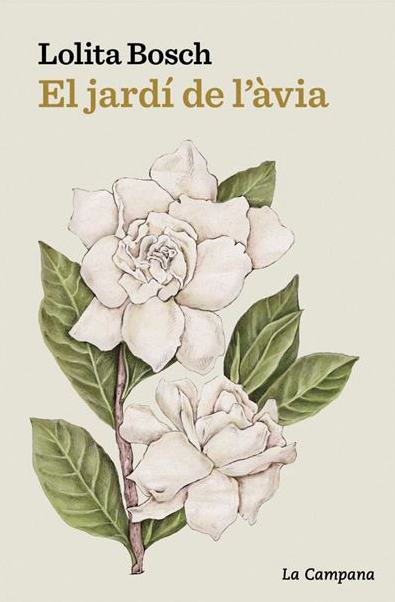
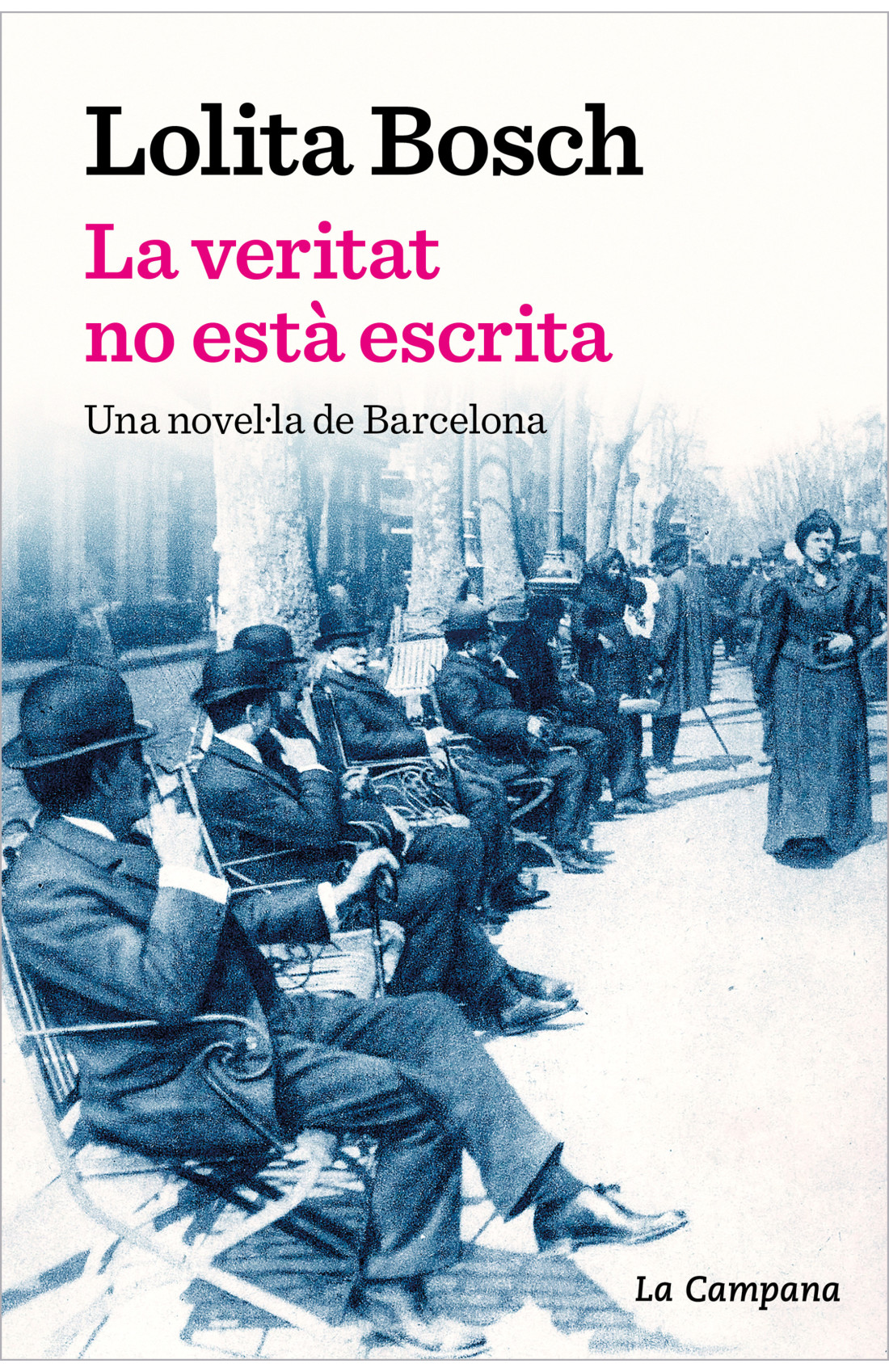
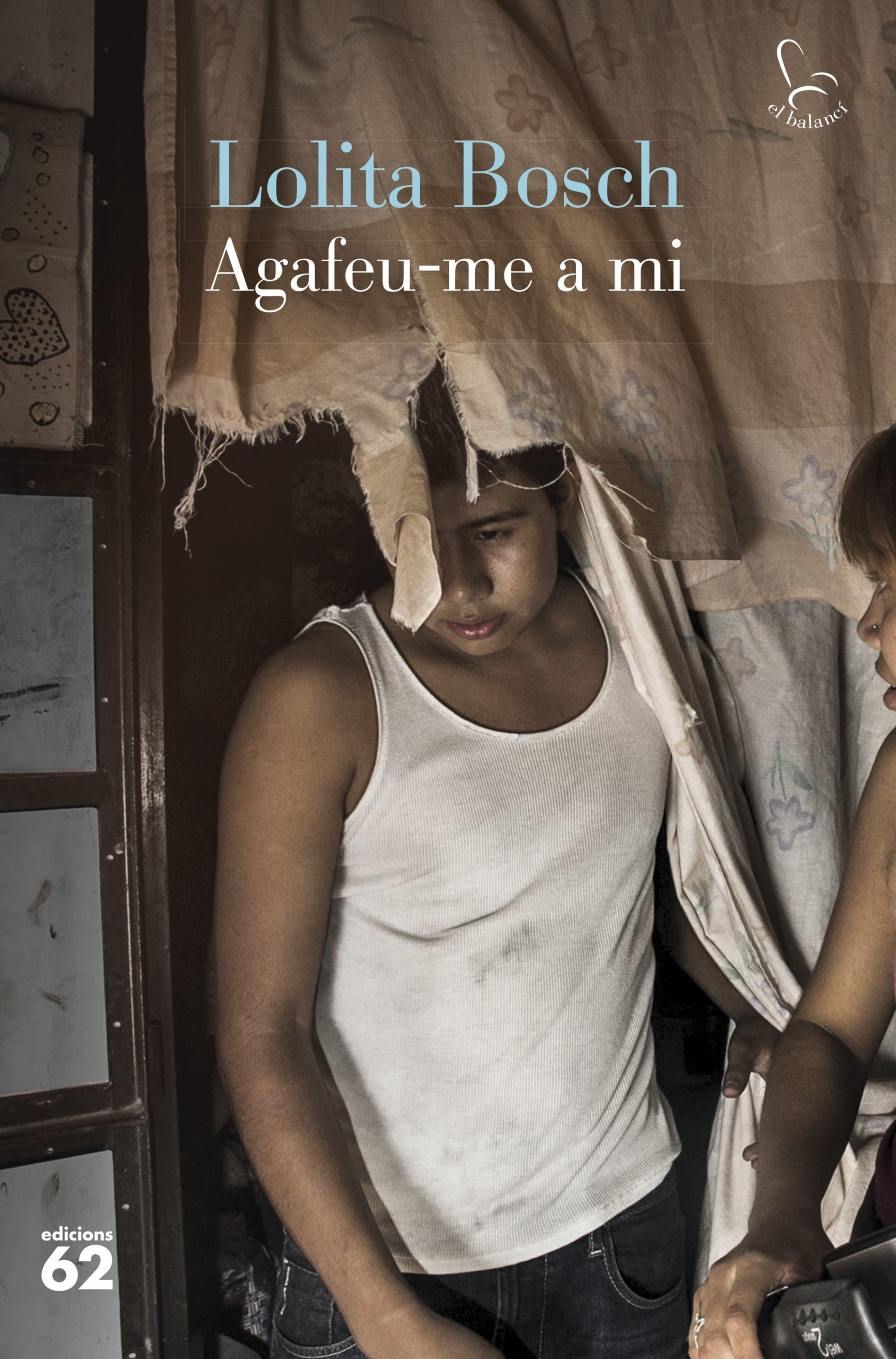
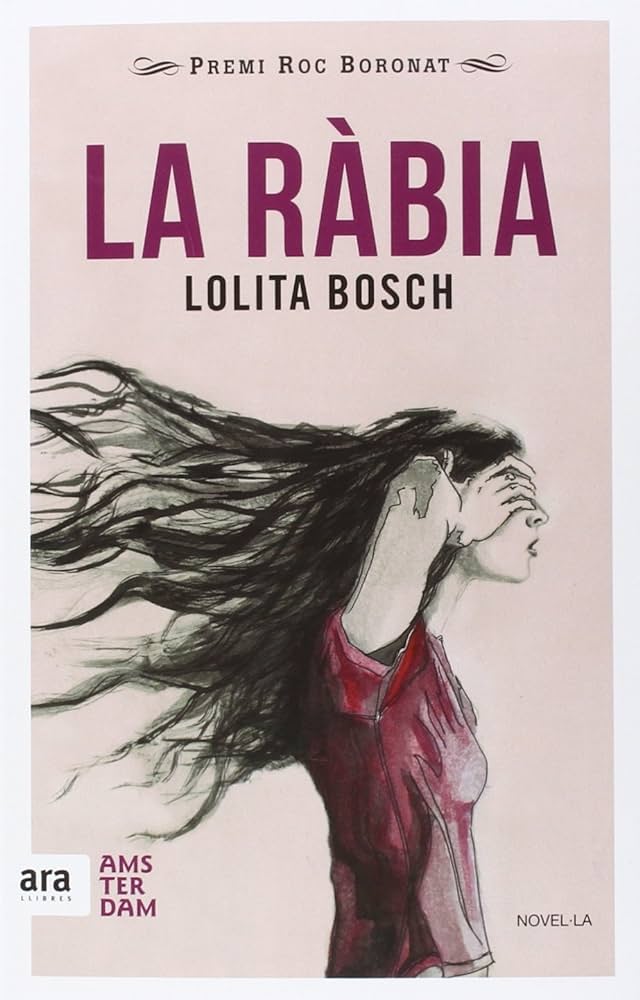
Jordi Boixadós
Jordi Boixadós i Bisbal (Barcelona, 1958), a resident of Maresme since 1982, is a writer and literary translator. He has published ten books since 1991, mostly narrative, and has translated about ninety books from English, French, Italian, and Swedish, mainly into Catalan. Boixadós also has a career as a musician in the pop-rock auteur genre. His passion for languages led him to write and perform songs in six different languages on the CD Europa (2005) and to collaborate with several French musicians on the album Cuques de llum (2014). He is also an actor in the La Pèrfida theatre company.
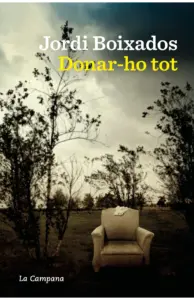
Donar-ho tot
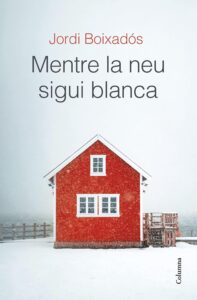
Mentre la neu sigui blanca

L'home que comptava diners

Àngels a l'andana

Mirades de dona
At just over sixty, retired in a village in Occitania, our protagonist receives an unexpected visit that unleashes the memories he had struggled to forget: the music shared with Tomàs, a brilliant young man haunted by the shadows of his own mind; the love and passion with the bold Eugènia; and above all, the son he has never managed to address as a father.
With masterful storytelling and deep insight into his characters’ souls, Jordi Boixadós returns to fiction with a novel brimming with intensity about memory, love, youth, and the traumas that stay with us throughout our lives.
Einar, who was born and lives in a small town in northern Sweden, has never known, in his forty years, why his father left Catalonia when he was young, not wanting to return. Circumstances will push him to discover the truth and will lead him to a world of silences still maintained from the past.
Elies Costa, a textile businessman, has a wife and children, a house with a swimming pool, a second home in La Cerdanya, and a factory in the Chinese city of Suzhou. Everyone is convinced he’s a success and that life smiles upon him. But what no one suspects is that he is the Chinese mafia’s dirty money courier to Andorra, has a mistress who could be playing both sides or that he’s trapped in an endless spiral of extortion that has him on the verge of collapse.
How is it possible that his life is such a living hell?
A man suffers a heart attack while standing in line at a bank. The cardiac arrest has been so long that the physical consequences are extremely serious. At the same time, in a house in Barcelona, an elderly woman has been in an irreversible coma for five years as a result of a traffic accident. What would happen if these two characters could express their feelings and desires in the midst of their hopeless situation and turn it into a novel?
Eight women’s views can be found in this book. Eight stories told by women from different countries, from different conditions and in different personal situations: the one who has lost contact with her daughter and her husband is close to dying; the one who has fallen in love with an artist and does not succeed; and the one who knows she is too late to have children… Jordi Boixadós has put himself in the shoes of these characters to show their full dimension as women and as people. He shows their ability to react to adverse situations, to maintain love even when it goes against them, to resist when a lack of communication imposes itself without remedy. In the end, this book is a vision of the world from a not always winning side, but with an undeniable strength to face life.
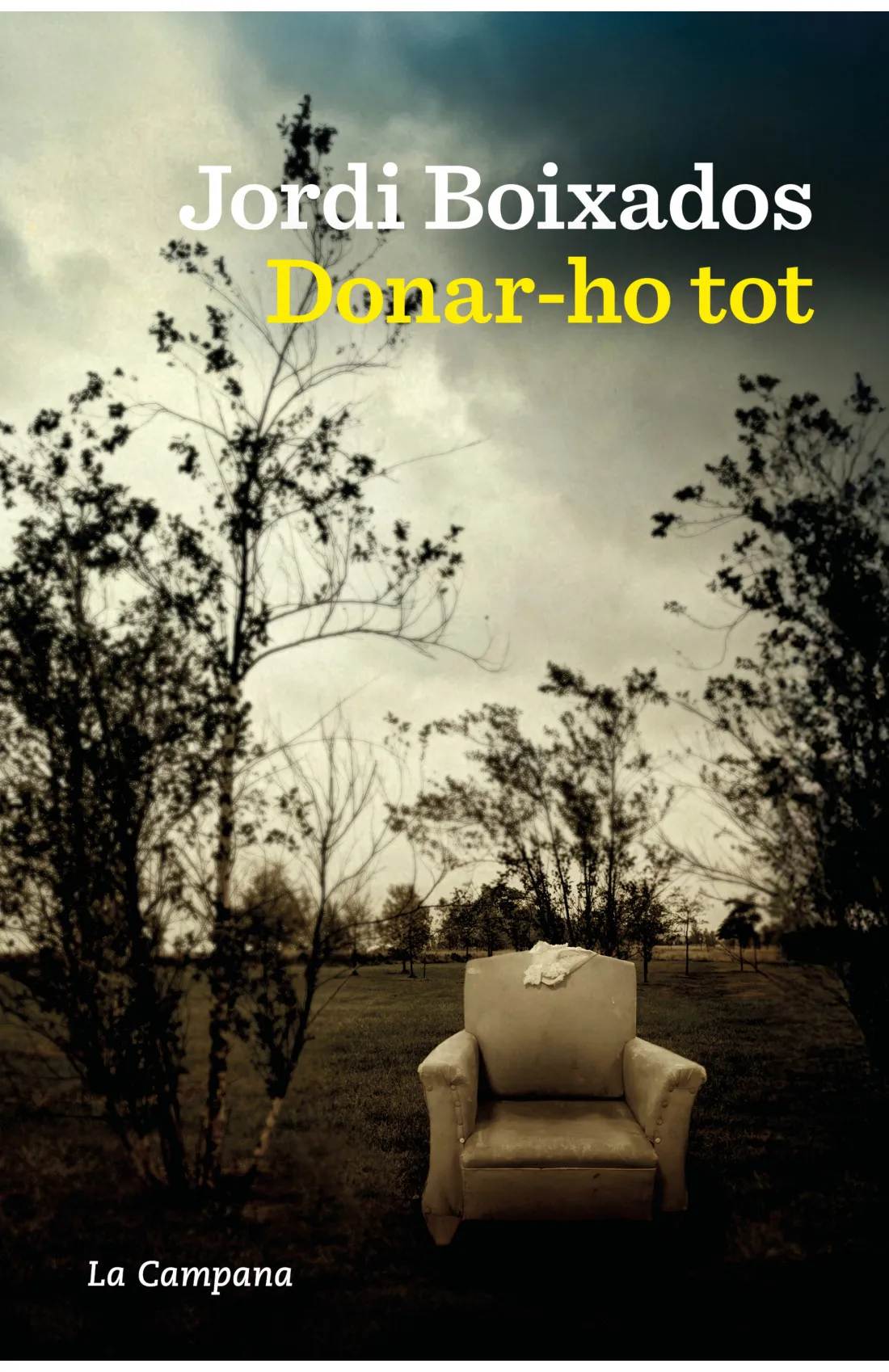
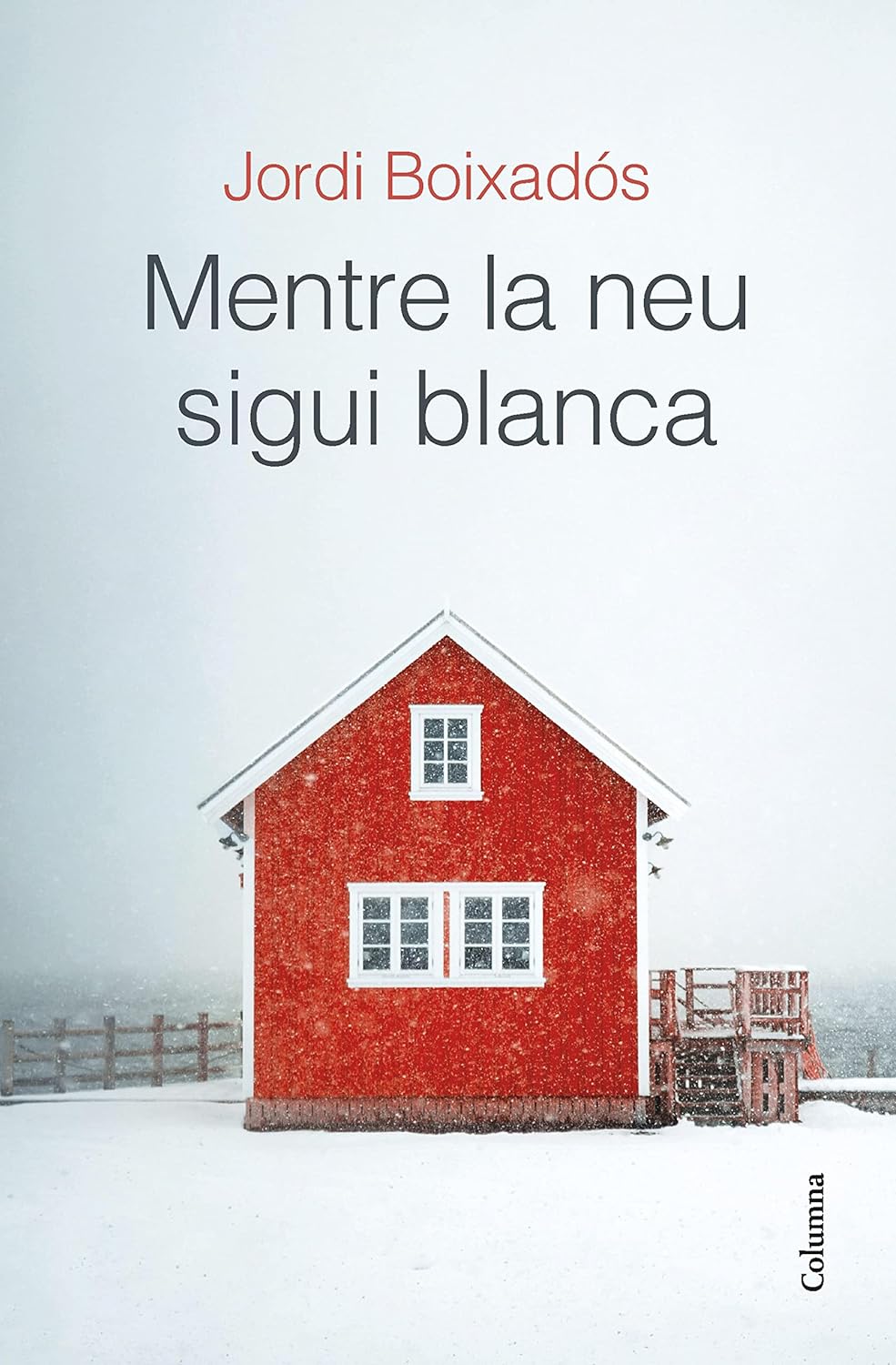


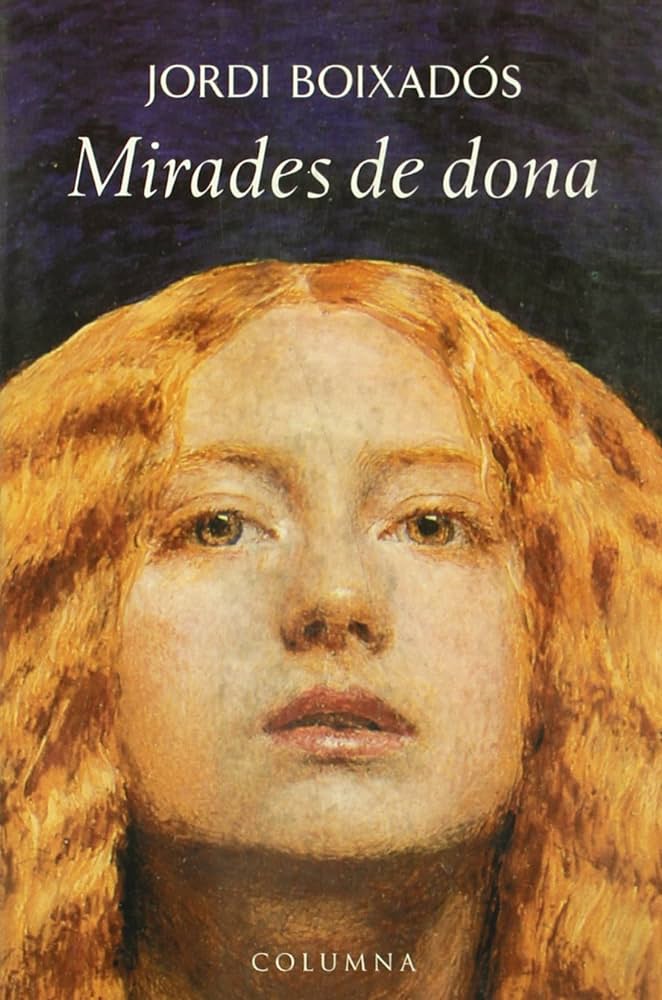
Mònica Boix March
Mònica Boix March (Barcelona) was born in the neighborhood of La Marina. She begins a long and disorganized period in which she starts and abandons her studies, shares apartments without certificates of occupancy, co-creates the now defunct feminist collective Ex-Dones, explores the night and the precariousness of work in assembly lines, as a waitress, freelance proofreader, babysitter, private tutor, tea vendor, house cleaner, bookstore assistant, administrative, and other jobs. When she decides to finish her studies in Catalan Philology, the subject matter has mutated into a degree. In the city, she begins working at a public library, where she selects the fiction collection and leads book clubs to share reading tastes and stimulate collective literary dialogue. One fine day she decides to stop and draw up a plan to give voice to some of her concerns in the form of a novel.
Mar Bosch Oliveras
Mar Bosch Oliveras (Girona, 1981) has a degree in philosophy and specializes in cultural journalism. Her first novel, Bedlam: Darrere les hores càlides, won her the XXXII Just M. Casero novella prize and since then she has published several novels: Les generacions espontànies, which won the 11th Premi Setè Cel de Salt in 2017; La mujer efervescente, awarded the X Premi l’Illa dels Llibres; and L’edat dels vius, which won her the Premi Creixells awarded by the Ateneo Barcelonés. She has also published young adult novels and collaborates regularly with small publishers and the written press.
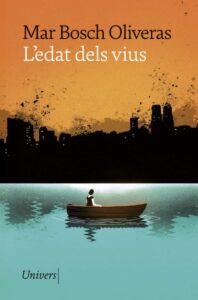
L'edat dels vius
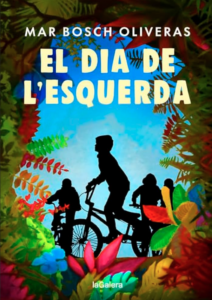
El dia de l'esquerda
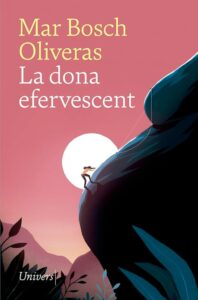
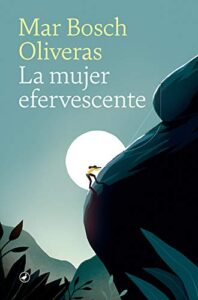
La dona efervescent
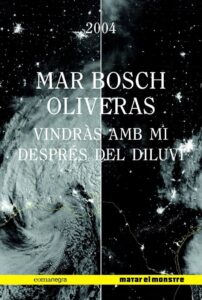
Vindràs amb mi després del diluvi
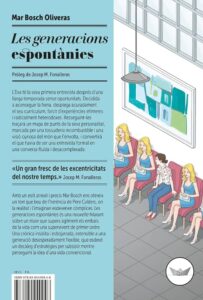
Les generacions espontànies
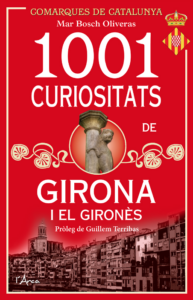
1001 curiositats de Girona i el Gironès
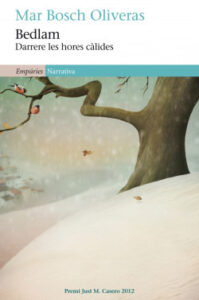
Bedlam
From one of the Catalan scene’s most personal voices, a novel that forces us to face a very possible future. The Age of the Living begins with the death of the protagonist’s partner and after the initial pain and shock, she observes what is happening around her (the world’s instantaneous decline). Offering a testimony of the collapse of the life she knew, she decides to flee the city. Later, she is surprised to discover that a small community of old preppers still exists in the world. And she, a “young” survivor, can’t comprehend it.
With futuristic airs, The Age of the Living is loaded with social criticism while pleading in favor of preserving the heritage of past generations, as well as love and friendship.
Lluci gathers her friends to tell them that she will soon be leaving town. Out of nowhere an earthquake shakes up her plans and the entire planet when a mysterious girl arises from the center of the Earth changing their lives forever. Surprising phenomena. Incredible beings. A group of teenagers and their parents’ secret that will completely alter the world they knew until now. The future asks them to be part of this adventure. When the earth moves, it’s a sign that the world is about to change…
Eva, alone and in charge of newborn twins, reviews the radical turn her life has taken in the last few months. From how she met her partner Miquel to dealing with a neurotic mother-in-law whose complaints play over and over in her head, to the ever-absent figure of Miquel, a father incapable of getting up at night to take care of his children or make the slightest gesture toward them. Eva is alone, once again, fresh from a process that has not turned out to be as beautiful as she was told it was going to be. Little or no warning was given about the physiological and psychological peculiarities of pregnancy, not to mention the postpartum period, or the need to create a family without any kind of manual.
Eva feels like an aspirin in a glass of water, effervescent, disappearing at times from a terrifying reality. With the unexpected help of a neighbor, she will struggle to find herself again and regain control of reality, far away from complaining voices and the twins’ cries.
Rights sold: World Spanish (Catedral)
Sigrid doesn’t understand a thing. A small-town girl like her has a hard time deciphering the codes of adulthood in this city. She has just arrived with her brother Noè from Sant Guim de Freixenet to a relative’s house with a universe of its own and so much to discover. The city is filtered through an inquisitive innocence and through Sigrid’s eyes Barcelona’s Forum of Cultures and the bustling contemporary streetcars appear unusually amplified. She must go down every street because she needs to return home with something, a motive, a piece of information that will encourage her brother to leave the room in which he has insisted on locking himself up in.
Eva has her first job interview after a long period without opportunities. Determined to get the job, she carefully presents her résumé, brimming with ephemeral and radically heterodox experiences. In showing them, she will map out points of her personality, marked by an incombustible stubbornness and a curious vision of the world around her, and will turn what should have been a formal interview into a fluid and uncomplicated conversation. With a bold and precise style, Mar Bosch offers us a text that drinks from the legacy of Pere Calders, where reality and imagination are accomplices.
The industrial colonies, scattered throughout inland Catalonia, are one of the most characteristic elements of its industrial heritage. Their unique identity is the soul of the industrialization process that took place during the 19th century. Built in rural areas, far from urban centers, they had all kinds of supplies and services that in most cases made them self-sufficient. In addition to their labor purpose, the colonies developed intense social, cultural and religious lifestyles, often promoted by the owners themselves or by priests and teachers. They were like small towns, all under the protection of a master who assumed the functions traditionally assumed by the State and who exercised social control over the factory’s neighbors and workers. This book presents a broad overview of Catalan industrial colonies, highlighting the many social and labor curiosities of these significant places in Catalan geography.
Bedlam is a unique mixture of an apparently childish tale and an attempt to construct the symbolisms of a community where oblivion reigns like a slab and is a necessary last hope. In refined prose, the accumulation of surprising and fantastic events brings us closer to the noble purpose of a moral fable, a reflection on loss and reconstruction.
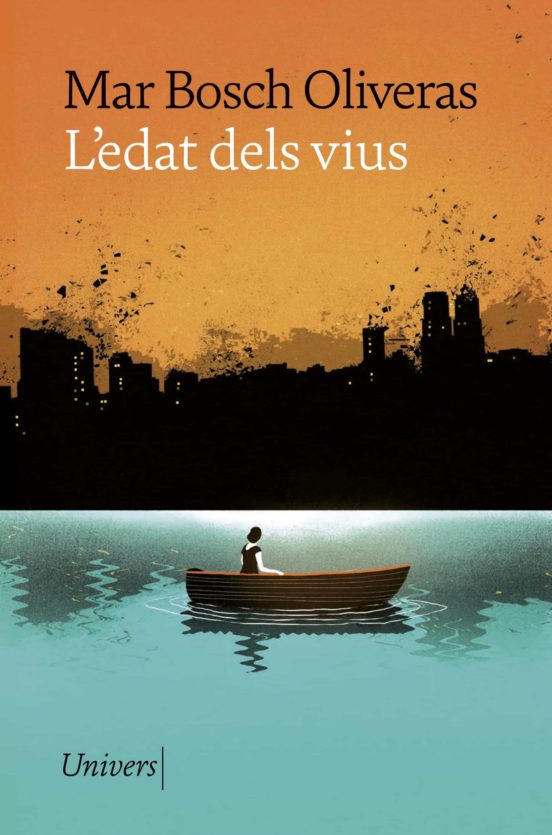
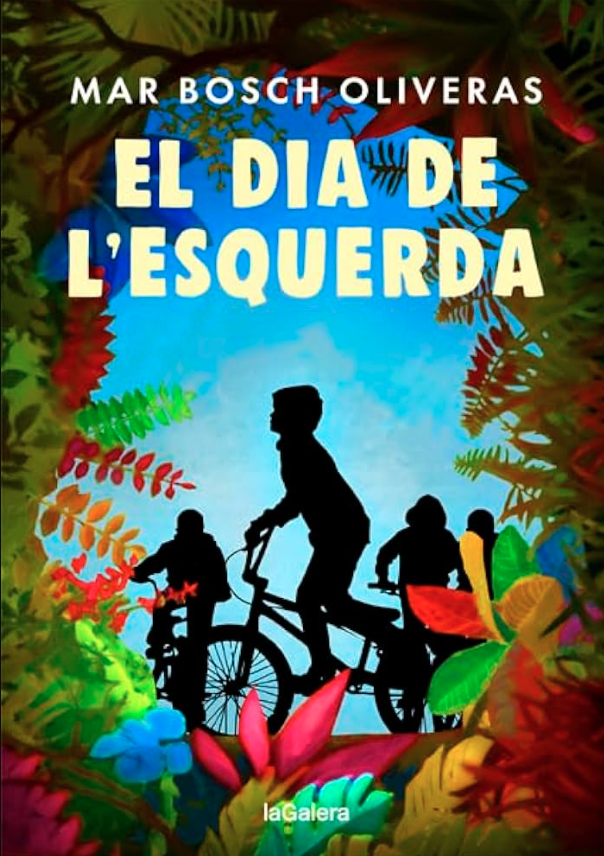
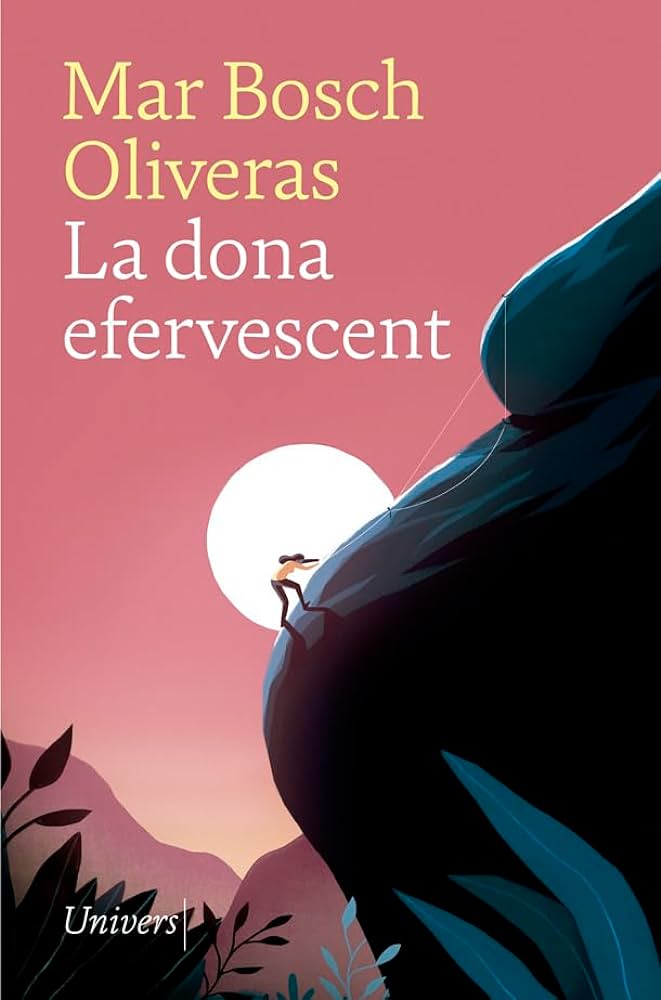
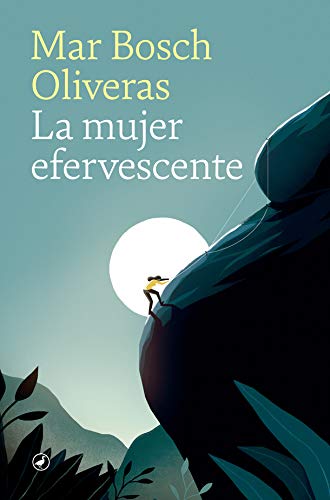
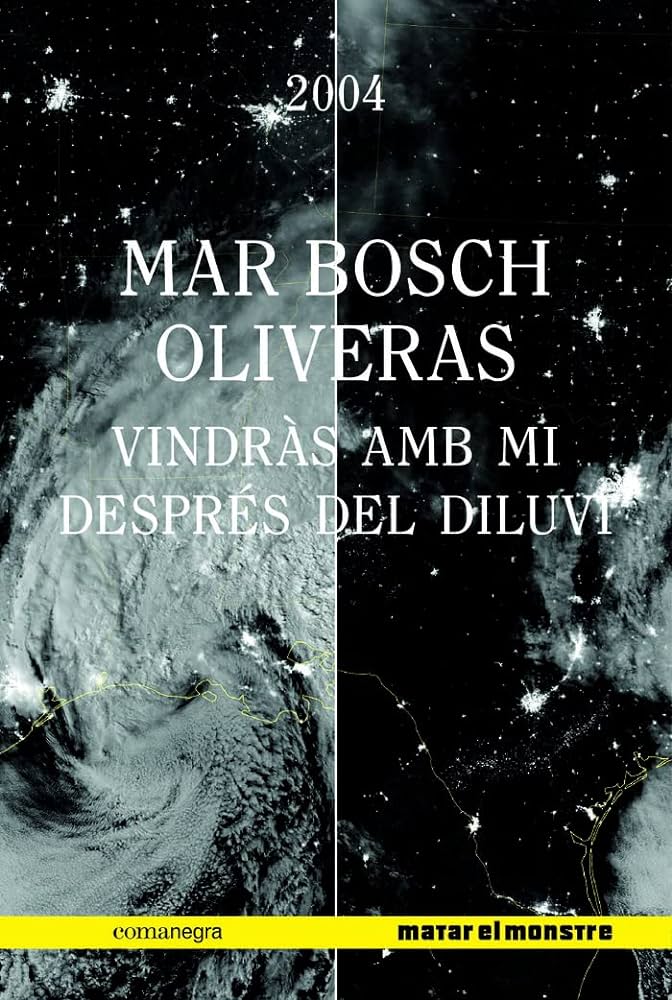
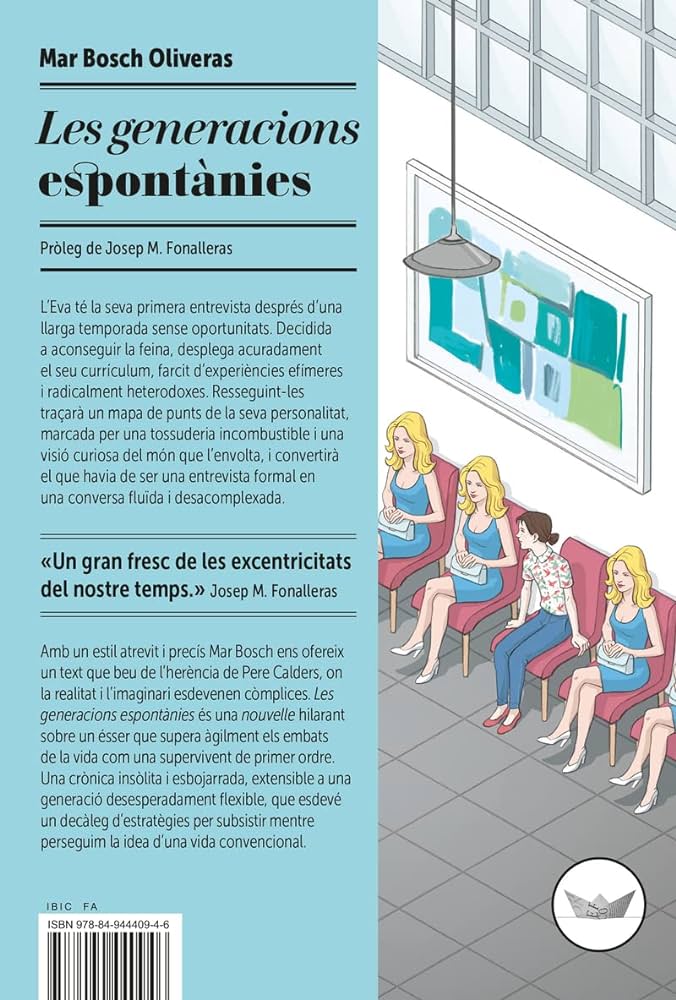
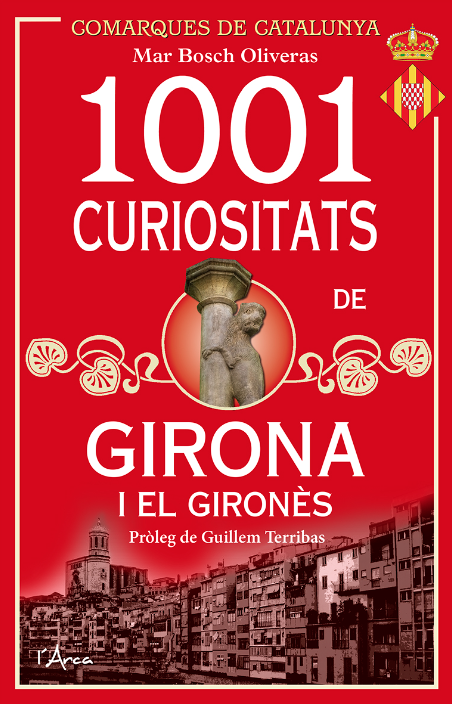
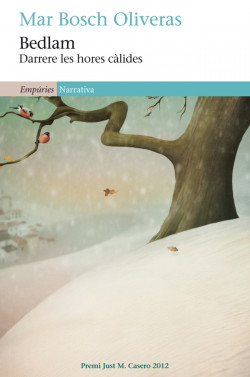
Pep Bras
Pep Bras (Premià de Mar, 1962) is a scriptwriter and writer. He has published some thirty books in all genres, from novels such as L’edat dels monstres (Premi Sant Jordi 1998 finalist), short story collections such as El bajel de las Vaginas Voraginosas (La Sonrisa Vertical Award, 1987) and plays such as City Bang Blues (Antoni Santos Memorial Award, 1989). He has also co-written five short story collections with the Germans Miranda collective, the last of which, Assassins, was published by Columna in 2024.
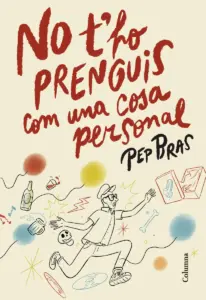
No t'ho prenguis com una cosa personal
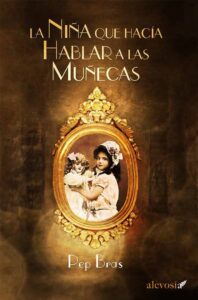
La niña que hacía hablar a las muñecas
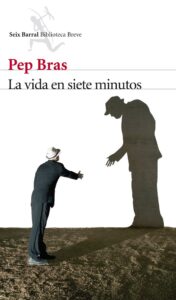
La vida en siete minutos
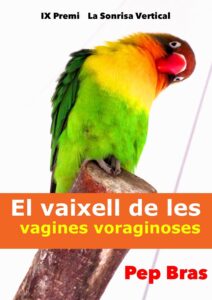
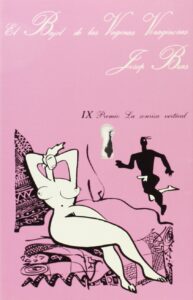
El vaixell de les vagines voraginoses
No t’ho prenguis com una cosa personal (“Don’t Take It Personally”) is the extraordinary story of Joan Lucena, a struggling impersonator who’s given twenty-four hours to save his television career. The solution seems to come in the form of Moira the Witch, a peculiar character who sets off a series of unexpected events. But when the impersonation causes a real-life catastrophe, Joan finds himself caught in a web of mysteries, curses, and an unforeseen revenge.
With biting humor and surreal situations, Pep Bras delivers a novel full of twists and unforgettable characters.
At the beginning of the 20th century, a strong storm runs aground an ocean liner from Barcelona in front of the Brazilian island of Ilhabela. It’s an almost virgin paradise where its humble inhabitants live peacefully surrounded by exuberant nature and myths such as that of the powerful jaguar Gápanemé. The young Joan Bras, who miraculously survives the shipwreck, will live a passionate love story with Catarina, the attractive widow who works as a doctor on the island.
Thus begins The Girl Who Made Dolls Talk, an epic novel where ventriloquists and illusionists parade by, along with romantics who dream of making Gaudí’s genius known around the world, assassins who do not appear to be, women who fall in love with the wrong men, and unconfessable secrets. An emotional journey that culminates in the fascinating and cosmopolitan Paris of the 1920s.
This novel could begin on the night of April 24, 1991, when a couple volunteers at a magic show and are hypnotized for seven minutes that are forever erased from their lives. Or much earlier, with a child playing at interviewing characters. Or much later, with him as an adult writing scripts for a television show he hates. Or with a terrible car accident and someone who discovers he can change the past. Or with a murder.
Life in Seven Minutes is the story of the recovery of a man who has fallen from grace in a tragicomic manner. The mantra of every screenwriter, “You will not make life easy for the protagonist,” falls on him like a curse, a sentence marked by two uncontrollable factors: destiny’s force and the suspicion that his life depends on the reconstruction of seven magical minutes.
The Vessel of Voracious Vaginas is a toy; a literary kaleidoscope full of imagination, through which female readers, male readers, or preferably both together, have the privilege of spying on cuckolded husbands, ill-fated twins, parrots in love, maternal widows, and voracious queens from the cruel planet Drakkar. We invite the reader to feel like a voyeur for a moment. To snuggle into a comfortable armchair and use this book as if they were binoculars. You will surely discover that the neighbors across the street are the protagonists of hitherto unsuspected experiences. Especially if they take place in a city as exciting, as delirious, and as suggestive as Xaitania by Josep Bras.
Rights sold: World Spanish (Tusquets)
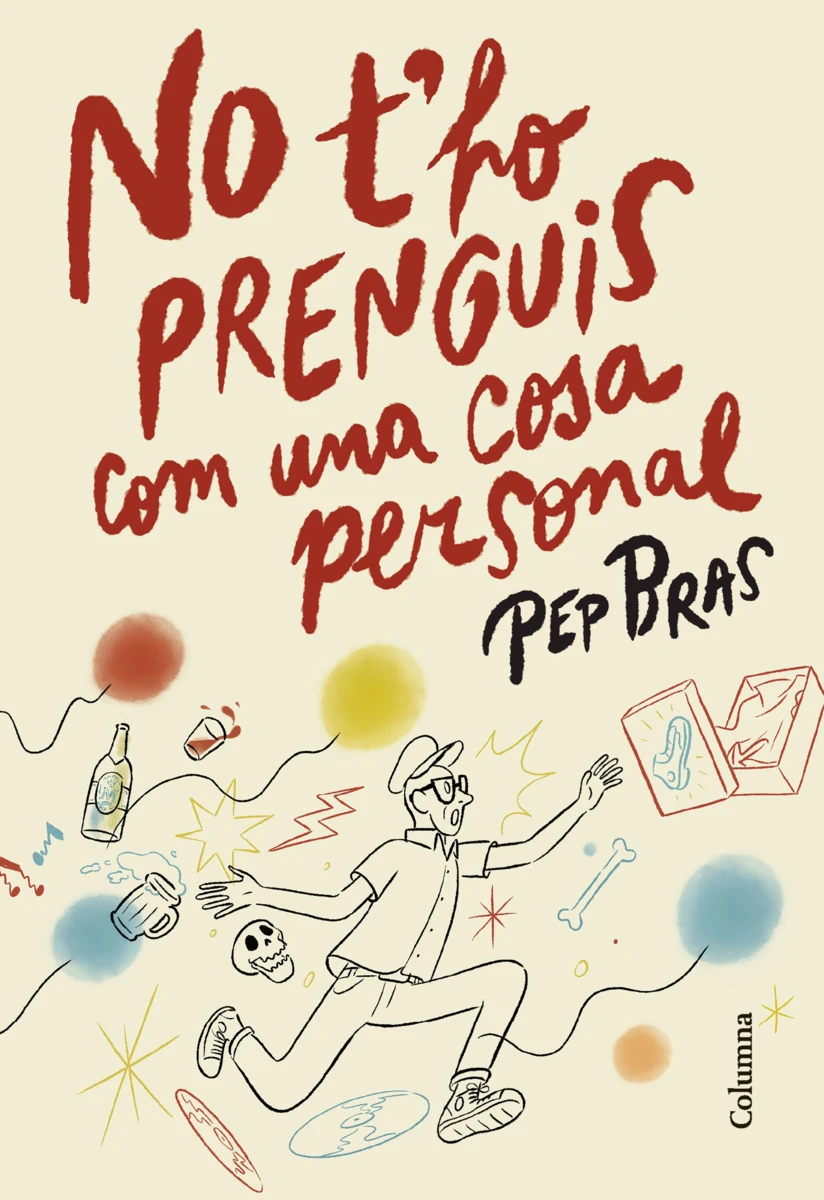
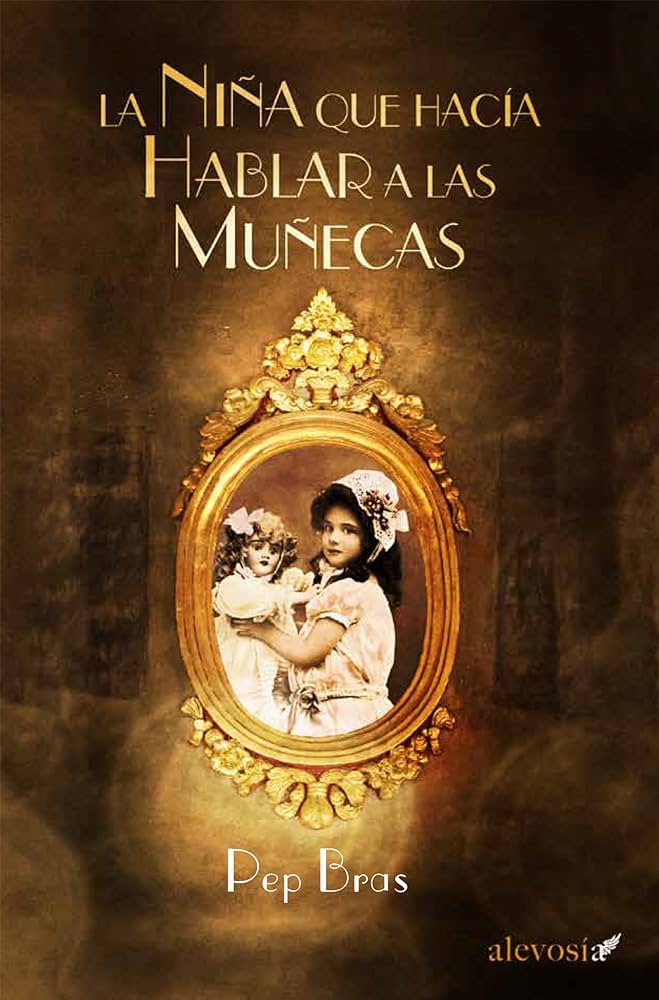
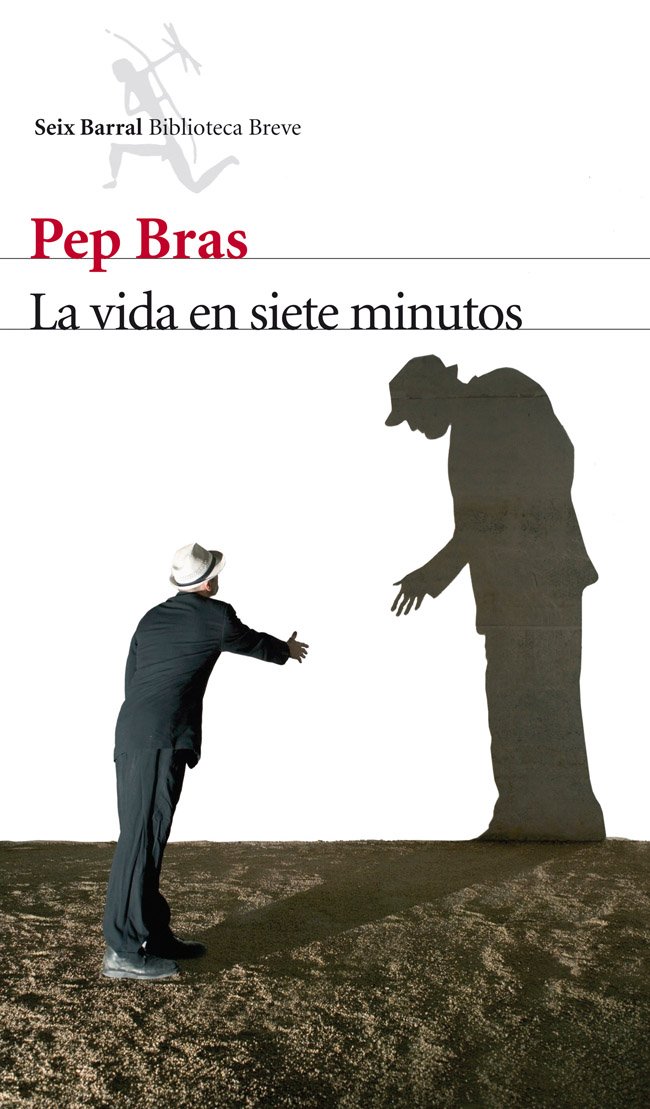
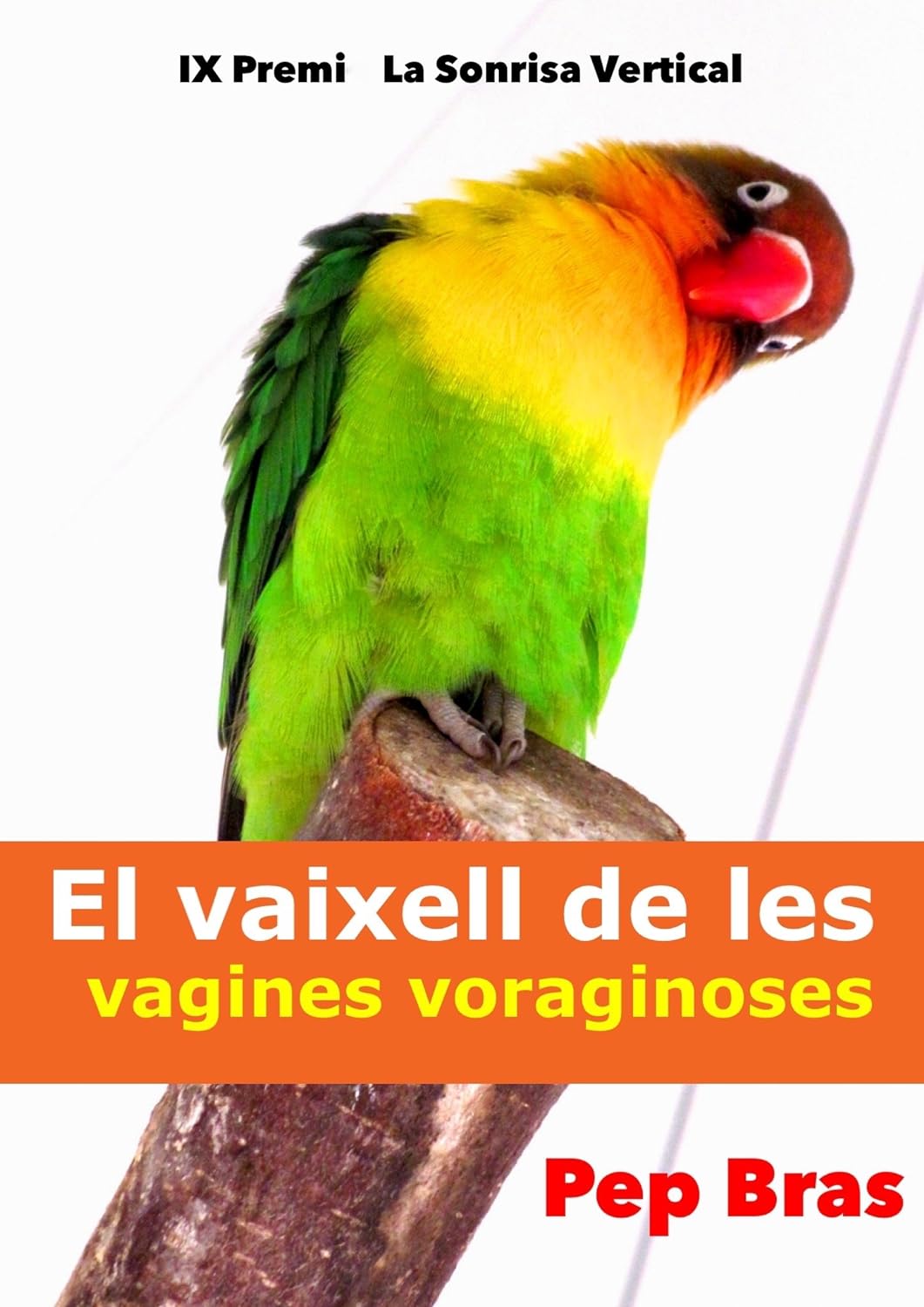
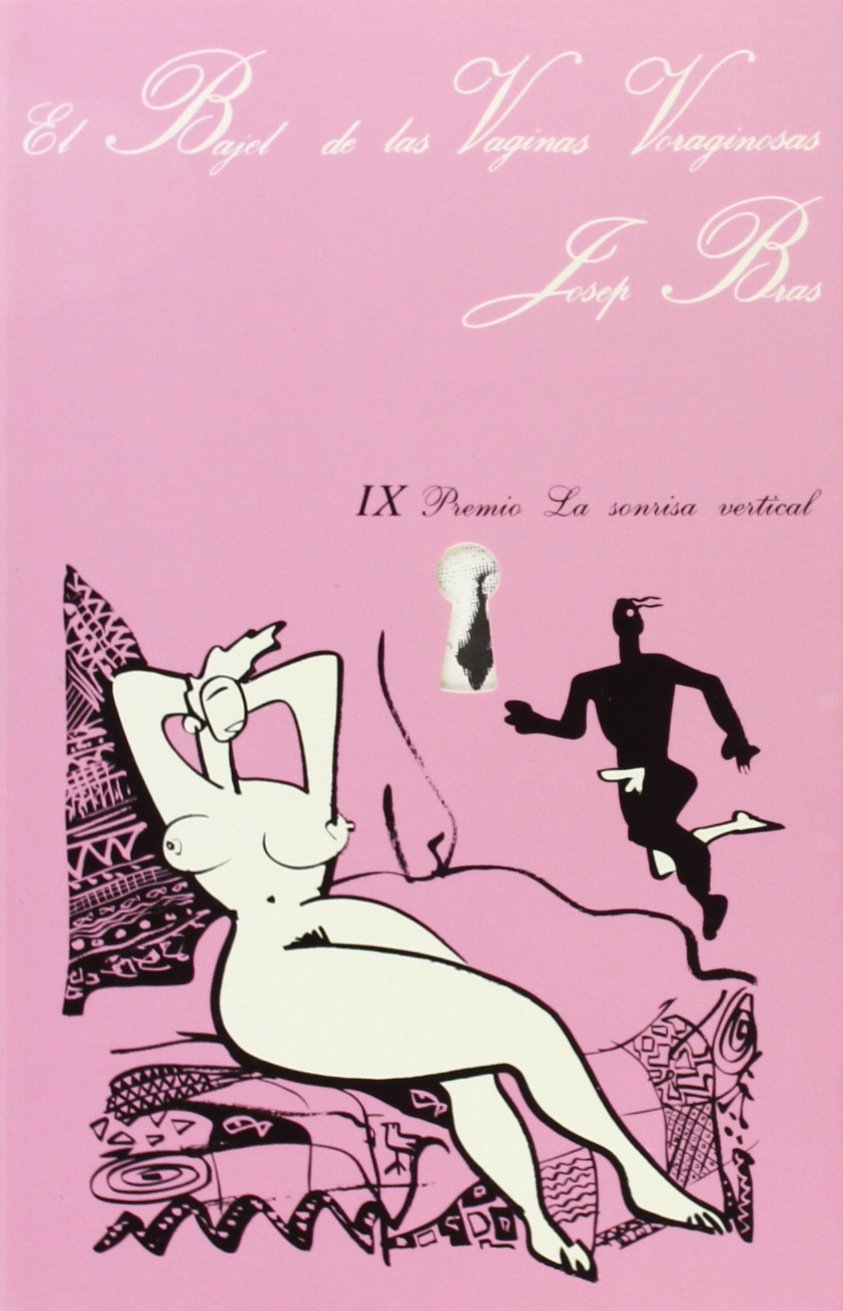
Pere Colomer i Roma
Pere Colomer i Roma (Vic, 1966) has a degree in economics and contemporary history. His research has focused mainly in the field of business history. He contributed to the book Borgonyà: Una colònia industrial del Ter (1996), awarded the Bonaplata prize and is the author of the books: Roca: Història d’una indústria (2009); Barcelona: Una capital del fil (2014), which won the Premi Ciutat de Barcelona Agustí Duran i Sanpere; and Una empresa amb ànima (2023), winner of the Crítica Serra d’Or research award. He has collaborated several times with Barcelona’s Museo de Historia and is currently part of the team designing the upcoming Labor Interpretation Centre in the former Fabra i Coats factory complex in Sant Andreu de Palomar.
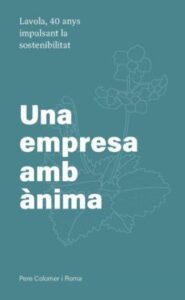
Una empresa amb ànima
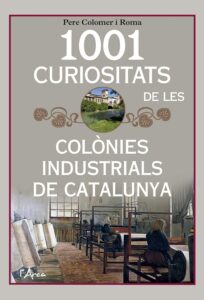
1001 curiositats de les colònies industrials de Catalunya
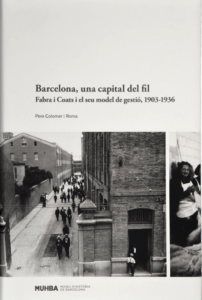
Barcelona, una capital del fil
Forty years ago, a group of young people from Osona, linked to the world of education and natural sciences, became pioneers by introducing environmental education among school priorities. Within a few years, La Vola became a pioneering company in environmental services, with sustainability as a reference. It continued its expansion until it became part of the international group Anthesis in 2019. Over the course of these four decades, the profound changes in our society have conditioned Lavola’s trajectory, which continues to provide creative, innovative and efficient solutions to administrations and companies, in which the commitment to the environment is increasingly clear.
The industrial colonies scattered throughout inland Catalonia are one of the most characteristic elements of its industrial heritage. Their unique identity is the soul of the industrialization process that took place during the 19th century. Built in rural areas, far from urban centers, they had all kinds of supplies and services that made them self-sufficient in most cases. In addition to their labor purpose, the colonies developed an intense social, cultural and religious lifestyle, often promoted by the owners themselves or by priests and teachers. They were like small towns, all under the protection of a master who assumed the functions traditionally assumed by the State and who exercised social control over the factory’s neighbors and workers.
This book presents a broad overview of Catalan industrial colonies, highlighting all the social and labor curiosities found in these significant places of Catalan geography.
At the beginning of the 20th century, the Scottish multinational J. & P. Coats was the third largest industrial company in the world, and its Catalan subsidiary, Fabra i Coats, the first textile company in Spain. The book traces the formation process of the Compañía Anónima Hilaturas de Fabra i Coats and delves into the trajectory of the business management model it adopted from its incorporation in 1903 until 1936. Throughout its chapters, the financial, industrial, commercial and human resources policies of the company are analyzed, as well as the relative weight that the decisions of the Coats and Fabra families had in the formation of the company’s culture and in the configuration of its labor strategy and social benefits for the workers.
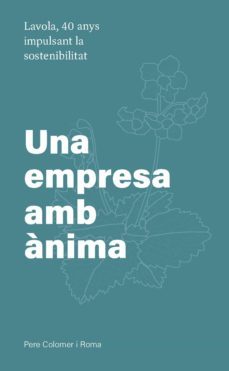
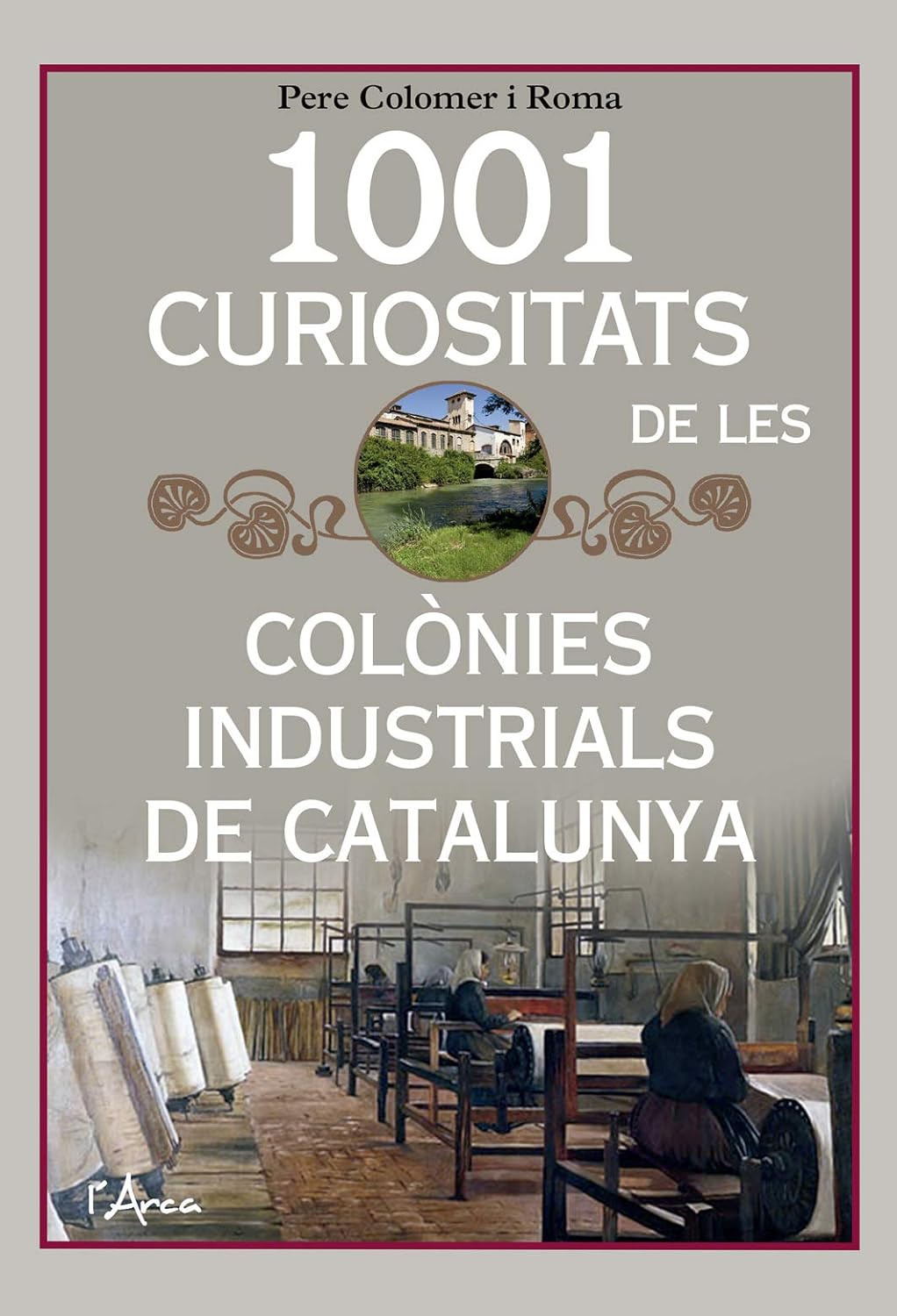
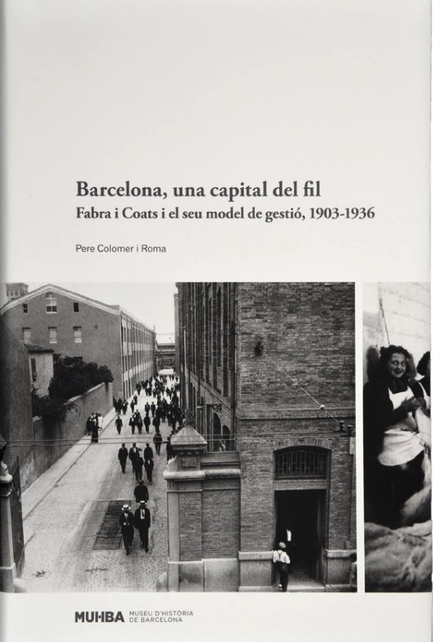
Mery Cuesta
Mery Cuesta (Bilbao, 1975) is a cultural critic, exhibition curator, and university lecturer. She has collaborated with La Vanguardia, the cultural supplement La Esfera of El Mundo, as well as with RNE. She has curated around thirty exhibitions focused on popular culture and outsider art, and in 2017 she was the curator of the Catalan Pavilion at the Venice Biennale. She is a professor of Contemporary Art at the Faculty of Audiovisual Communication at Pompeu Fabra University, and the director of the Master’s in Illustration and Comics at ELISAVA. In 2019, she received the Premi Gràffica, with the jury highlighting her “commitment to critical dissemination of popular and underground culture.” She has also worked as a comic artist since 2008, contributing to fanzines and magazines such as TMEO and Mongolia. Her notable publications include La Rue del Percebe de la cultura y la niebla de la cultura digital (Consonni, 2015) and Humor absurdo (Astiberri, 2020).
Miguel Dalmau
Miguel Dalmau (Barcelona, 1957) is the author of celebrated biographies such as La balada de Oscar Wilde, Los Goytisolo, Jaime Gil de Biedma, Julio Cortázar and La gran ilusión. He has cultivated almost all the novel genres into works such as La Grieta, El reloj de Hitler, La noche del Diablo and ¡Quiero vivir en América! He’s also delved into female intimacy and the history of feminism in El ocaso del pudor. Since the late seventies he has worked as a literary critic, radio scriptwriter and Sunday columnist for local newspapers and is a regular contributor to La Vanguardia. With Pasolini (Tusquets, 2022) he won the XXXIV Comillas Prize for History, Biography and Memoir in 2022.
Miguel Ángel Delgado
Miguel Ángel Delgado (Oviedo, 1971) is a writer, journalist, science communicator, and exhibition curator. He is the author of the essays Yo y la energía (Turner, 2011), Inventar en el desierto (Turner, 2014), and La costumbre ensordece (Ariel, 2023). He has also written the novels Tesla y la conspiración de la luz (Destino, 2014) and Las calculadoras de estrellas (Destino, 2016). He has curated exhibitions for Fundación Telefónica centered around figures such as Tesla, Houdini, and Verne, and topics such as the pioneers of modern dance—shows that have drawn more than three million visitors at various international venues. He served as Content Director for the Spanish Pavilion at Expo 2025 Osaka and is a regular contributor to El ojo crítico (RNE), ABC, Principia, and Muy Interesante. He is also co-founder and Director of Content and Communications at Curiosa.
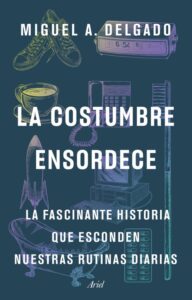
La costumbre ensordece
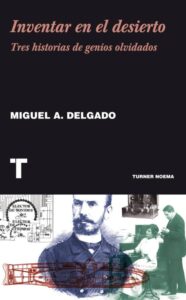
Inventar en el desierto
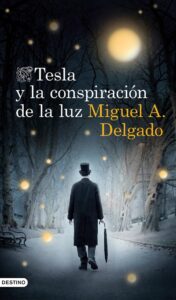
Tesla y la conspiración de la luz
Throughout the course of an ordinary day, we will uncover some of the hidden stories behind our breakfasts, our workdays, and our relationships. We’ll discover that many things we take for granted were not always as they are now, and that there was even a time when doctors advised against bathing, or when people died of hunger surrounded by potatoes, corn, or wheat.
Like peeling back the layers of an onion, we will reveal the wonders hidden beneath the most routine aspects of life—those we’ve stopped noticing. Because, as Samuel Beckett said in Waiting for Godot, “habit dulls.” (la costumbre ensordece)
In Piedrabuena (Ciudad Real), a little over a hundred years ago, some very strange things were happening: a man named Sánchez traveled to the United States and returned to the village to open a revolutionary factory (he built a machine that could see inside the human body and paid fair wages—one of these things remains revolutionary to this day). Around that same time, an obsession took hold: the design and construction of the perfect submarine. In the cases of Peral, Monturiol, and others, things often ended in shipwreck, even if they had Jules Verne on their side.Let’s not forget about a wise man named Cervera who, as far as we know, might have invented the radio. And while we’re talking about innovation, how about the priest from Segorbe (Castellón) who composed electronic music and designed synthesizers while Franco still walked under a canopy.
Not saints, not visionaries, not madmen: Spanish geniuses. In the middle of nowhere—or in a country that hailed them as kings and then forgot them as beggars. A story that deserves to be told and read… to better understand the past and repeat it a little less.
The novel begins in an alternate New York, on Sunday, October 17, 1931. The visionary scientist Nikola Tesla’s ideas have finally been realized: the wireless transmission of electricity has given rise to a new world in which energy is free and accessible to all. A huge technological leap has been made. And yet, it is Thomas A. Edison who has received all the credit, while the real creator remains in the shadows, living anonymously in a hotel room.
Edgar, a nineteen-year-old aspiring to become a pilot for the great transatlantic lines (the “oceanics”), discovers the truth and, in the name of justice, joins a movement determined to bring Nikola Tesla back to the forefront. However, a radical faction within the Tesla loyalists is preparing a massive attack to destroy the World Network altogether.
Edgar becomes a crucial figure in stopping the sabotage—and in doing so, may prevent the collapse of civilized society into utter chaos.
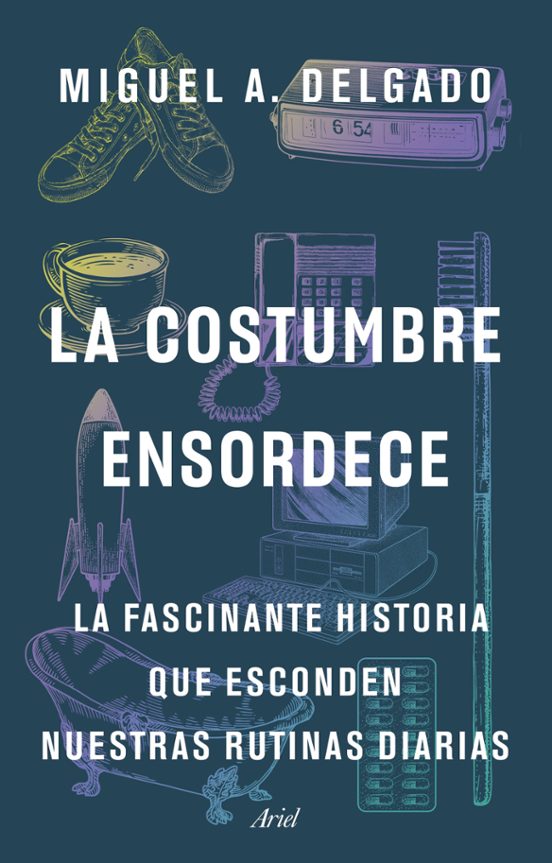
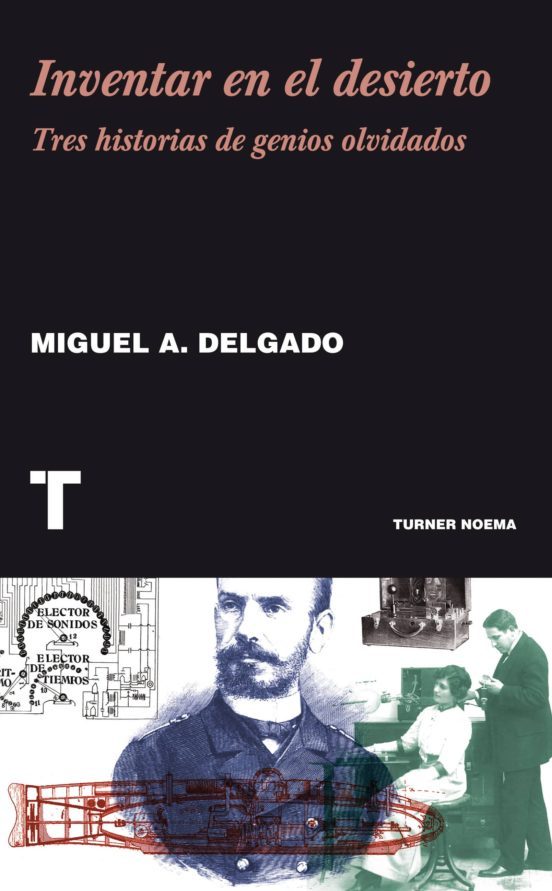
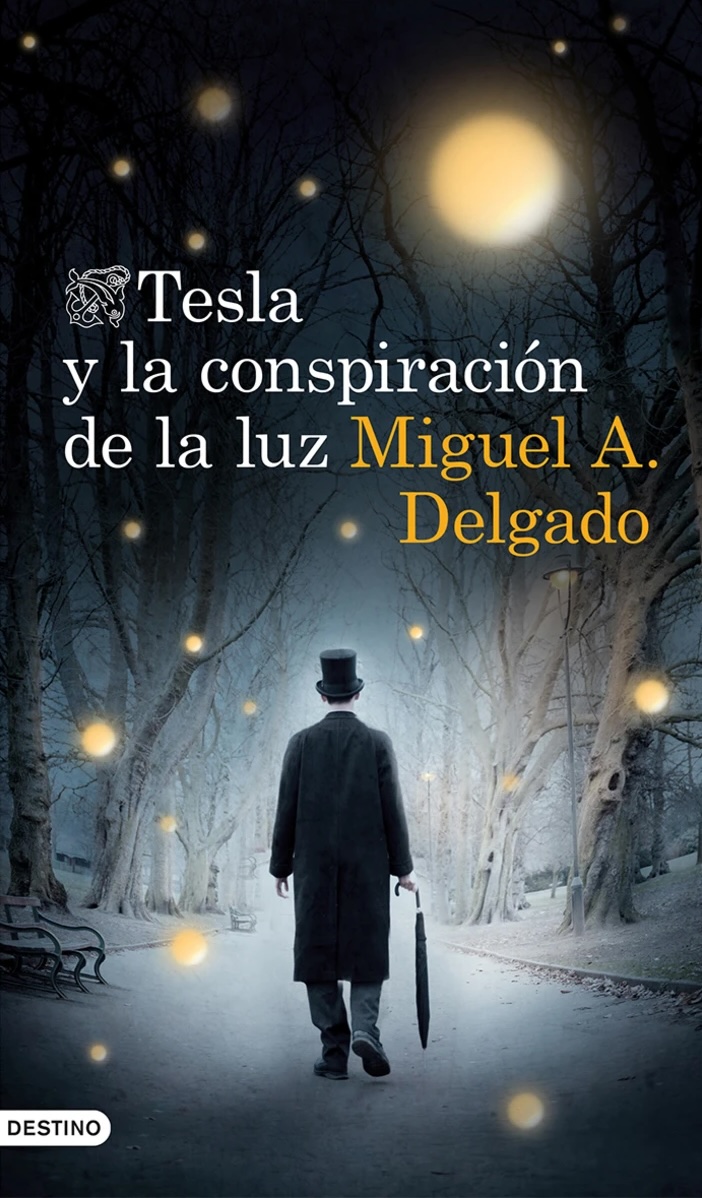
Carlota Font
Carlota Font (Barcelona, 1998) has a degree in literary studies and a master’s degree in cultural management and artistic curatorship. She lived in Amsterdam for five years until she got tired of starting novel projects that ended up in a drawer and decided to return to train as a writer at the Ateneo Barcelonés. She now lives, works and writes in Barcelona. She also listens to horror podcasts at the gym, buys more books than she can fit at home and has not yet learned to drive.
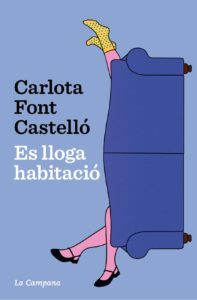
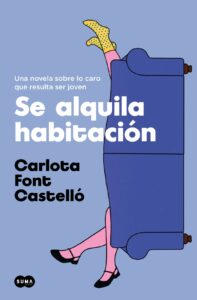
Es lloga habitació (Room for Rent)
Abril is desperate. After three years in a relationship, Eloi has left her, and now she faces a serious problem: how will she pay the rent on her own? With no money and no partner, she has decided not to tell anyone for now, least of all her family. At just twenty-four, she has to put up with an unbearable boss and resign herself to precarious working conditions. Was studying art history really worth it?
While her life seems to be collapsing, Abril will have no choice but to find someone to share the flat with. That someone turns out to be Emma, a very peculiar flight attendant. Turbulence ahead. An ironic literary debut that revolves around themes such as job insecurity, the housing crisis, sexual awakening, and the frustration of failed life expectations.
Rights sold: World Spanish (Suma, PRH)
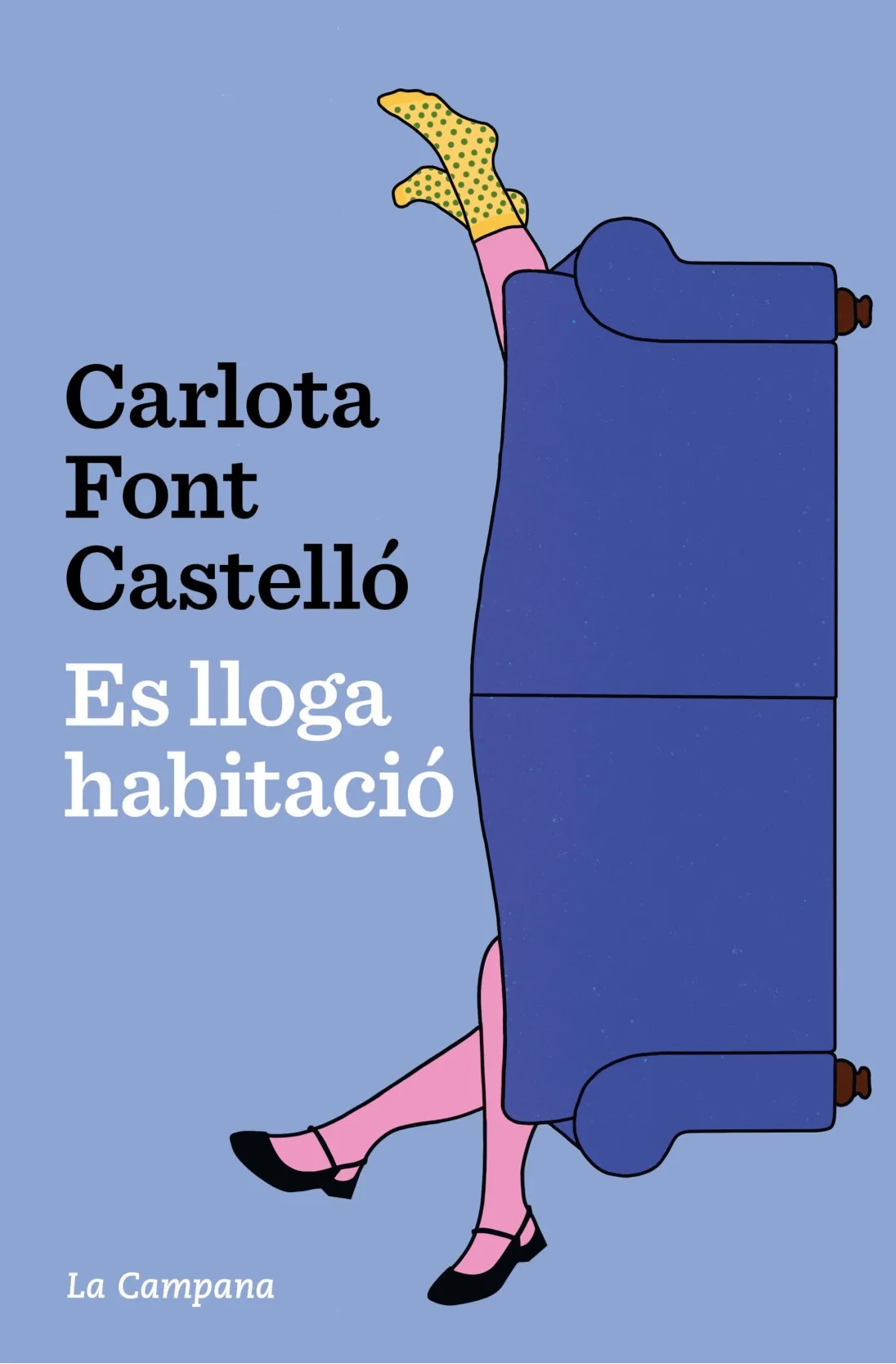
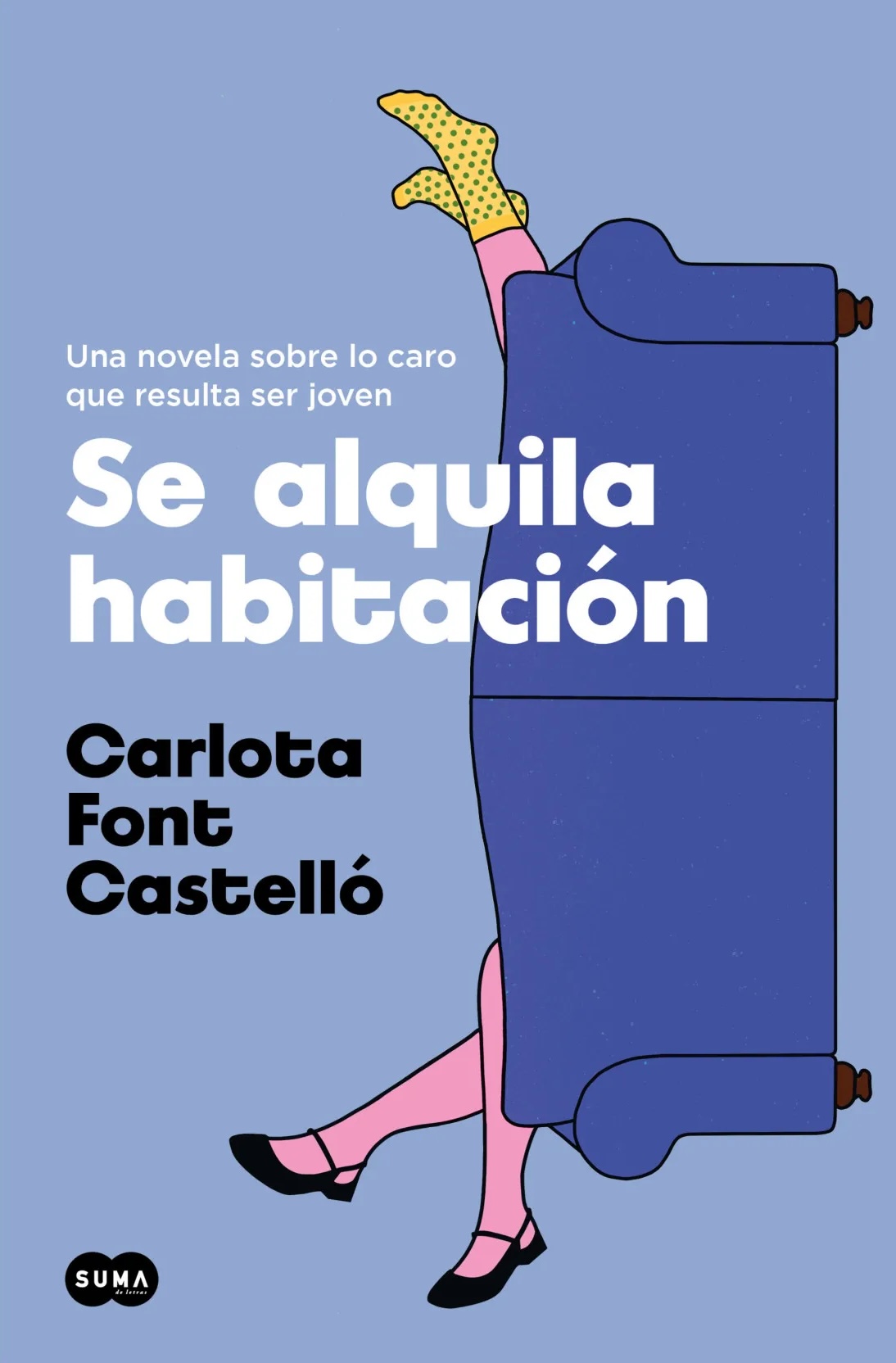
Marc Font
Marc Font (Gironella) has a degree in translation and interpreting from Pompeu Fabra University, a master’s degree in linguistics from the University of Barcelona and works as a high school Catalan and English teacher. He wrote La modista de Gràcia, his first novel, using cell phone notes during his sabbatical year.
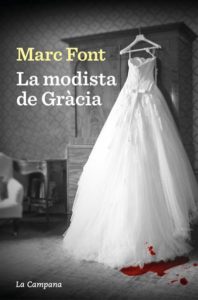
La modista de Gràcia
Loreto was born in 1944 in the Gràcia neighborhood of Barcelona, to a modest family that worked in one of the most important steamships of the city, La Sedeta. At the age of 12, her parents take her out of school to set her up with Mr. Carles Vidal, the owner of the factory’s brother, with whom she will live the most traumatic and tragic episodes of her life. After an unexpected event, instead of making a living ironing for one of the great textile establishments in Barcelona, she decides to set up her own business as a wedding dressmaker. But when she receives her first order, the bride disappears three days before the wedding. Throughout the next decades, while Loreto manages to make a name for herself and gain prestige as a dressmaker, disappearances and deaths of brides continue to occur.
One night in the present, Loreto bursts into her neighbor Xavi’s house wearing a white bathrobe covered in blood and asking for help. Left in shock by Loreto, he will investigate who his neighbor really is, Gràcia’s dressmaker.
Rights sold: World Spanish (Motus Thriller), Portuguese from Portugal (Kathartika)
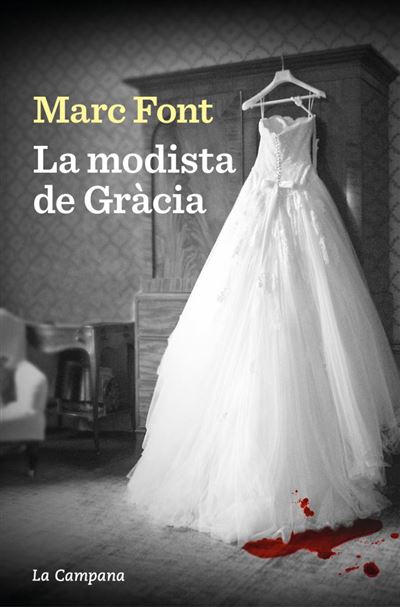
Manuel Guedán
Manuel Guedán Vidal (Madrid, 1985) is a writer, editor, and creative writing professor. He holds a degree in Spanish Philology from the Universidad Autónoma de Madrid (UAM) and has focused his academic career on researching Spanish critical fiction and queer Latin American literature, writing his doctoral thesis on the work of Argentine author Manuel Puig. He has taught seminars and postgraduate courses at the Universidad de Monterrey and has been an associate professor of Latin American literature at the Universidad de Burgos and the Universidad Autónoma de Madrid. As an editor, he worked at Editorial Demipage from 2013 to 2016, where he also directed the literary magazine Buensalvaje. In 2016 he worked as an editor at Editorial Lengua de Trapo and currently works at Alba Editorial. In 2022, he published his debut novel, Los sueños asequibles de Josefina Jarama, with Alfaguara.
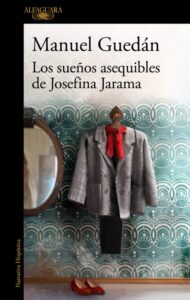
Los sueños asequibles de Josefina Jarama
From a very young age, Josefina Jarama dreams of a better life and knows there is only one path to reach it—a tough, pragmatic one: social mobility. This modern Lazarillo begins her journey in a toy factory in Ibi, Alicante. There, she becomes the boss’s protégée while working alongside her mother, a militant communist operating underground, who must flee to avoid being imprisoned. Faced with a choice between her mother and her dreams at the factory, Josefina chooses the latter. With Josefina’s journey, the reader travels through several decades of Spain’s recent history, visiting key hotspots of the so-called “Spanish miracle” and, most importantly, encountering a range of vibrant lives.
Spirited, outrageous, and one-of-a-kind, Josefina fulfills a dream she never explicitly pursued: to reach the reader’s heart.
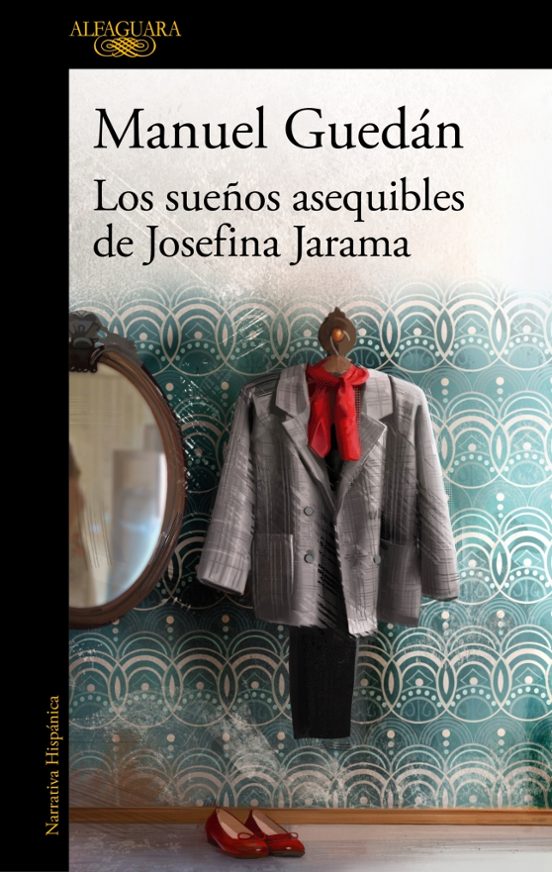
Carlota Juncosa
Carlota Juncosa (Barcelona, 1982) is an artist and certified Mindfulness instructor. She holds degrees in design and philosophy and has worked as a university lecturer at institutions such as UOC, LCI, LABASAD, Escola Massana, and ELISAVA, specializing in graphic essay, creative blocks, and stress management. She has published several zines and is the author of the biography Carmen de Mairena (Blackie Books, 2017) and El motor creativo (Temas de Hoy, 2024). She has exhibited her work in both Barcelona and London. She is also part of a band called Black Baltic.
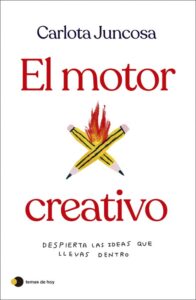
El motor creativo
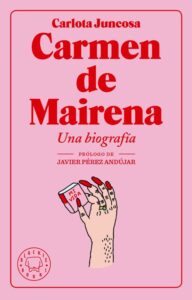
Carmen de Mairena. Una biografía
Everyone can create—the key is knowing how to take the first step. This is the starting point of the journey Carlota Juncosa invites us to take in El motor creativo, a book that explores the benefits of training the imagination in our daily lives. Along the way, we learn how to overcome fear and creative blocks when facing a new project, and how to reconnect with goals, dreams, or ambitions we may have left behind. Most of all, we learn to enjoy the feeling of starting from scratch. With a magical mix of practice and theory, Juncosa shares the keys to expanding the limits of our creative capacity.
Through mindfulness exercises, daily writing routines, active listening techniques, and coping strategies, this book teaches us that creativity is an infinite path—one we can travel throughout our entire lives.
Carmen de Mairena is much more than what we think we know about her. She was a woman who fought to be a woman. A woman of the neighborhood and the street, a TV celebrity, a friend to friends who often took advantage of her, an emblem of the “other” Barcelona—a flesh-and-blood person who laughed (less and less) and suffered (more and more).
The young artist Carlota Juncosa spent nearly a year with Carmen de Mairena. From that strange friendship emerged an illustrated biography as contradictory and unique as its protagonist.
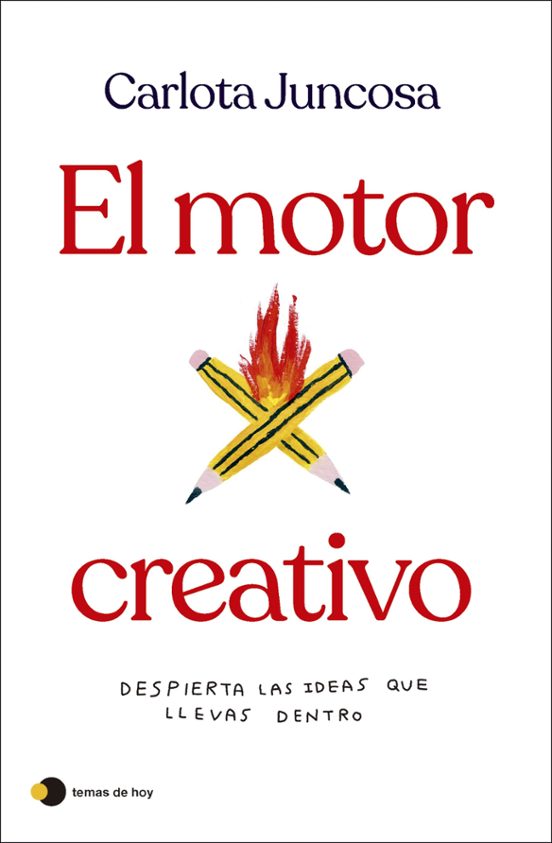
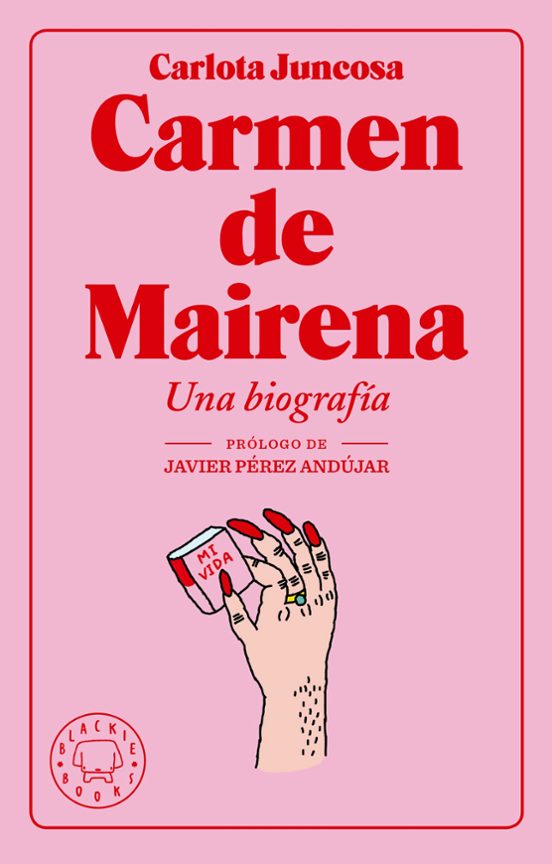
Fàtima Llambrich
Fàtima Llambrich (Ametlla de Mar, 1980) holds degrees in Journalism and Criminology, a master’s in Security and Prevention from the Autonomous University of Barcelona, and a postgraduate degree in Advanced Criminal Profiling Techniques from the University of Barcelona. As a journalist, she specializes in court and police reporting for TV3’s news broadcasts. She is the co-author of the 30 minuts documentaries Les arrels del narcotràfic (2022) and El cos del delicte (2015). Between 2012 and 2016, she interviewed a prisoner convicted twice of double homicide. These interviews led to the true crime book Sense cadàver (Ara Llibres, 2016; Sin cadáver, Now Books, 2016). She is also the author of Brots de narcosocietat (Columna, 2023), a journalistic investigation on drug trafficking in Catalonia. In 2018, she received the Justicia Award in recognition of her professional career and the journalistic rigor of her reporting.
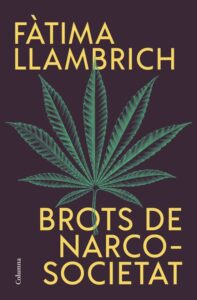
Brots de narcosocietat
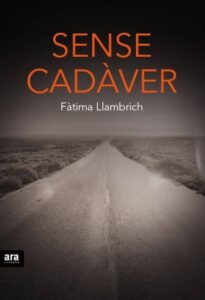
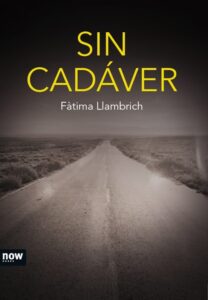
Sense cadàver
In this piece of investigative journalism, Fàtima Llambrich takes us to the Strait of Gibraltar in pursuit of a speedboat loaded with hashish. She captures the intense moments before a raid on a narcourbanización, reveals what cannabis plantations look like and what lies behind them, and introduces us to Mario, a man convicted of large-scale hashish trafficking and being part of a criminal organization. Drug trafficking impacts all levels of society, and the sheer size of the business enables traffickers to buy influence, bribe officials, and accumulate power.
A first-rate journalistic investigation turned into an addictive police procedural. A real case, a criminal investigation for double homicide in which the bodies were never found.
After years of interviews with Ramón Laso in the prison where he is incarcerated, Fàtima Llambrich managed to draw a vivid portrait of a disturbingly charming man. Sentenced to 30 years in prison, he maintains his innocence and avoids discussing the past that doomed him to life behind bars.
Sin cadáver skillfully explores the methodology investigators used to secure the first conviction for double homicide in Spain without the victims’ bodies, without biological evidence, without conclusive witnesses, without even a murder weapon—and with a defendant proclaiming his innocence. In doing so, the book dismantles the false myth that “no body means no crime.”
Rights sold: World Spanish (Now Books)
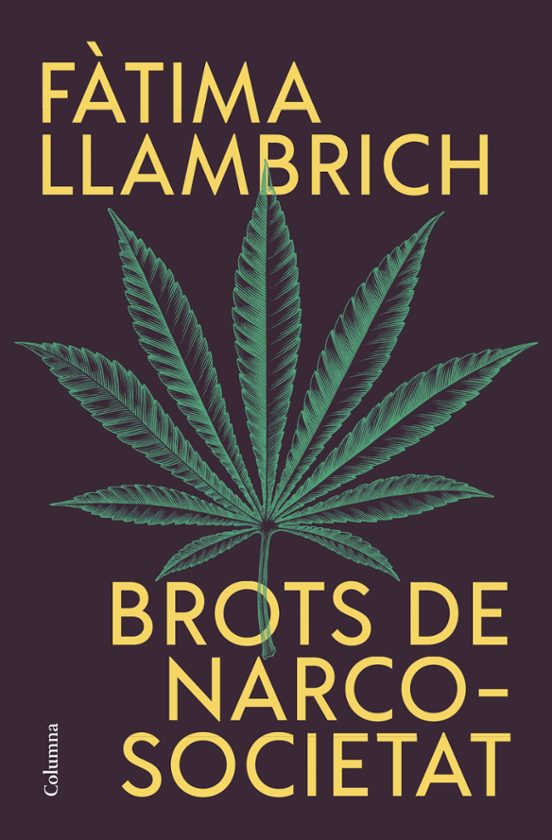
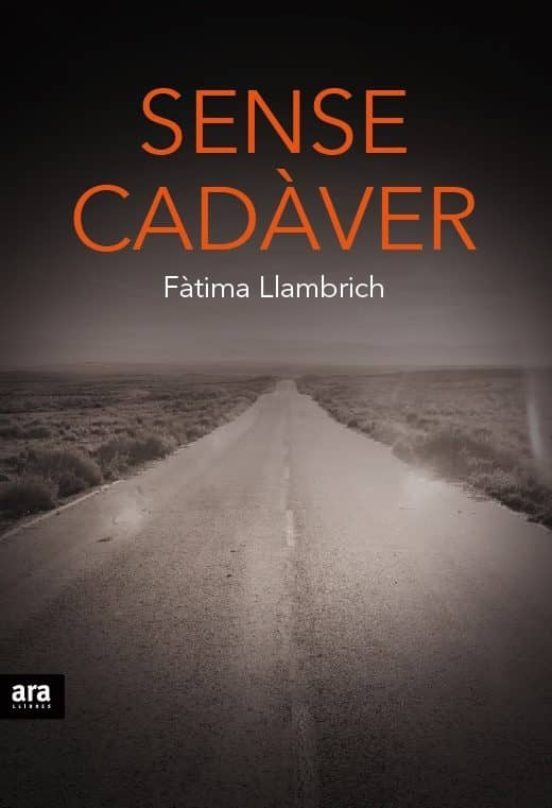
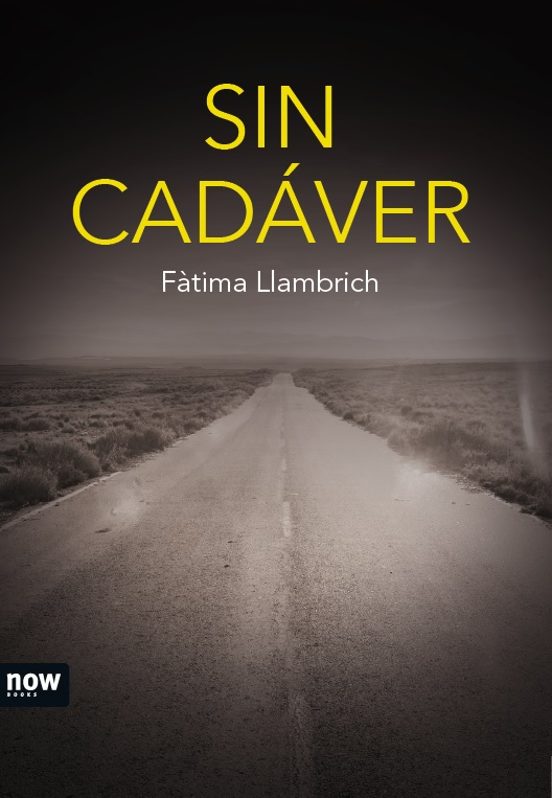
Inma López Silva
Inma López Silva (Santiago de Compostela, 1978) holds a degree in Galician Philology from the University of Santiago. A researcher and theatre critic, she regularly contributes to the journals Citania, Grial, Revista Galega de Teatro, and Primer Acto, as well as to the newspaper El Correo Gallego. She is the author of Neve en abril (Galaxia, 2005), awarded the Rúa Nova Prize (1996); Memoria de cidades sen luz (2008, Galaxia), winner of the Blanco Amor Prize; Aqueles días en que éramos malas (2016, Galaxia; Los días iguales en que fuimos malas, Lumen, 2017), winner of the Antón Losada Diéguez Prize (2017); and O libro da filla (2020, Galaxia; El libro de la hija, Lumen, 2020), awarded the Critic’s Prize (2020). She is also the author of Por qué Asunta (Tres Hermanas, 2024), a journalistic investigation of the Asunta case from a gender perspective.
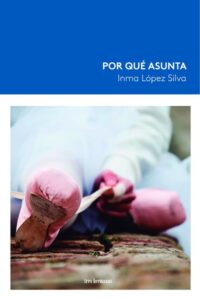
Por qué Asunta
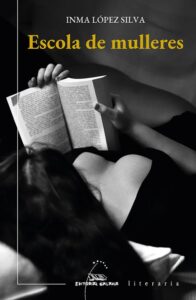
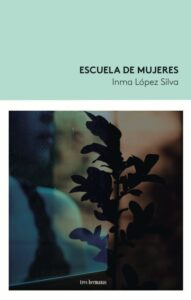
Escola de mulleres
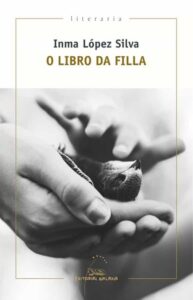
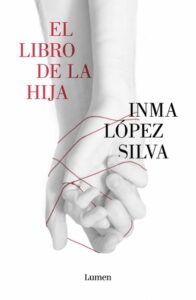
O libro da filla
Not everything has been told about the Asunta case. From the very day in September 2013 when the girl was murdered in Santiago de Compostela, the crime was sensationalised by yellow journalism, prejudice, and sexism. Why was her mother blamed almost immediately, even before any incriminating evidence existed? Why was it not taken into account that the girl lived in a household marked by gender violence? Through direct contact with the protagonists of the case, this book offers a gripping and rigorous chronicle of a crime riddled with dark zones—ultimately shedding light on society’s own perversions and the secrets families keep hidden in the privacy of their homes.
Escola de mulleres is a novel about loss. It tells the story of women who seem to meet all the requirements for success and happiness, only to one day realise it was all a farce filled with conventions, expectations, and false promises. This is a novel for those who desperately seek happiness after believing they’ve lost everything.
Rights sold: World Spanish (Tres Hermanas)
Helena Sánchez is a renowned journalist whose professional career has always focused on pressing political and social issues. When she learns about a businessman convicted of raping his young daughter—despite denying the crime for over a decade—she realises she needs to tell this story. A story that connects to her own family and past, one she has tried to forget, consciously or not. Is Fernando innocent? What is his wife’s version, and what does his daughter say? What begins as a journalistic investigation becomes a turning point for Helena to examine her relationship with her father and her daughter, and with the men who have shaped—and continue to shape—her life.
Rights sold: World Spanish (Lumen)
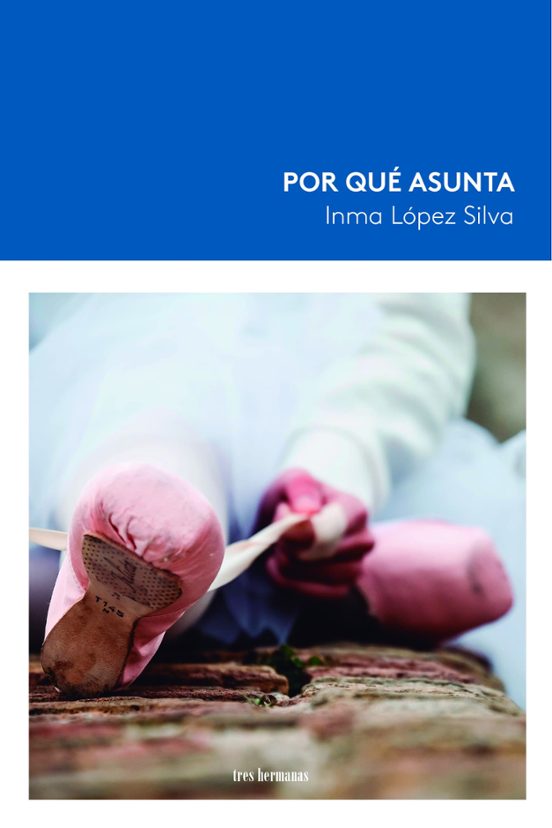
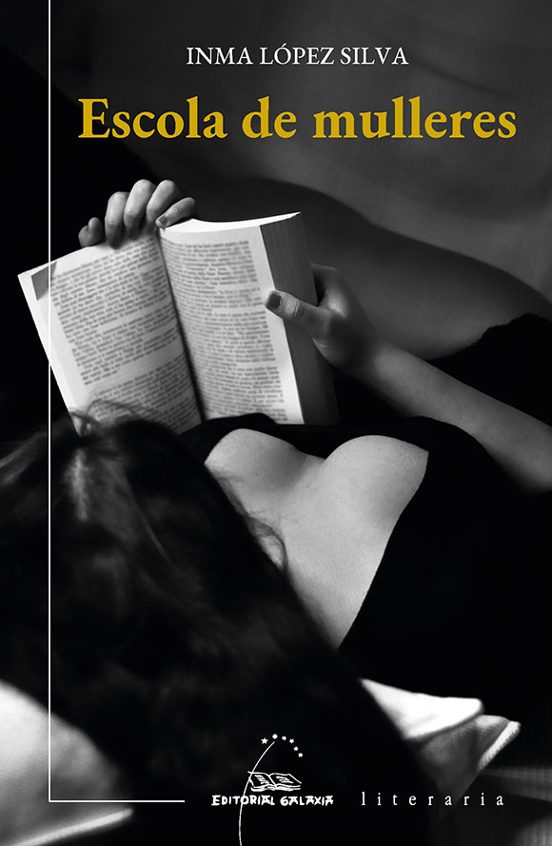
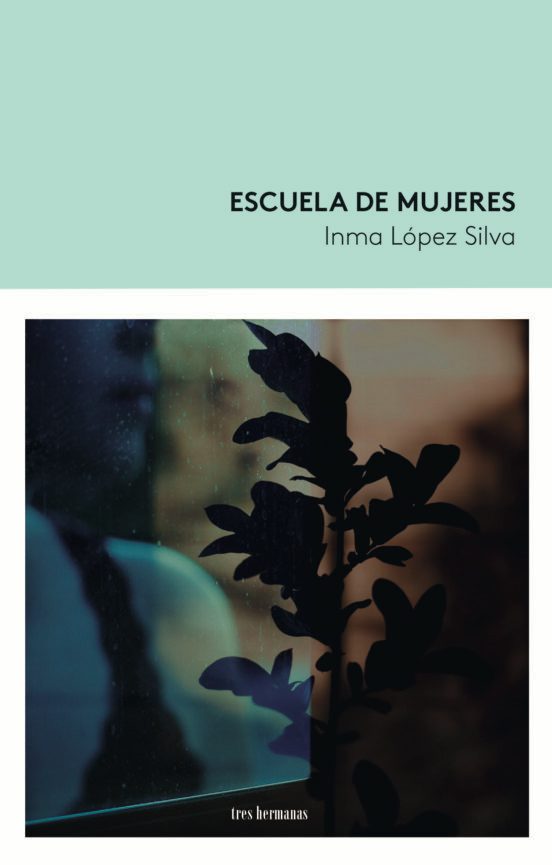
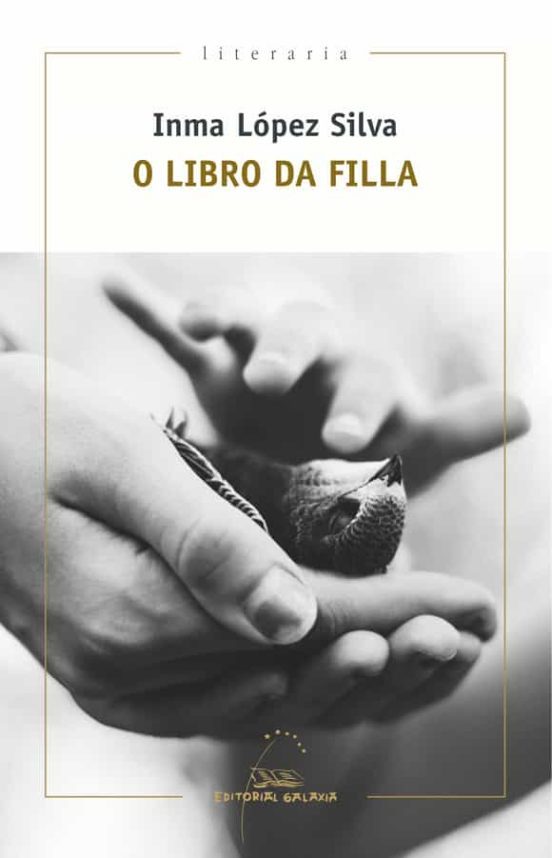
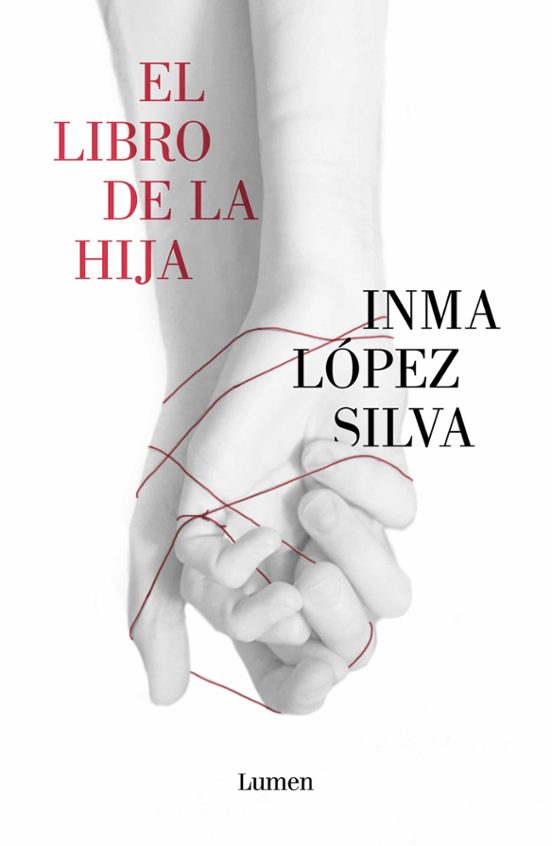
Marc Marginedas
Marc Marginedas (Barcelona, 1967) holds a degree in Information Sciences from the University of Navarra. As a war correspondent for El Periódico, he has covered conflicts in countries such as Tunisia, Libya, and Syria, and until recently, he served as the newspaper’s Moscow correspondent. With more than twenty years of experience, he is a specialist on the former Soviet Union and the Arab-Islamic world. He has received the Cirilo Rodríguez Award for Best Foreign Correspondent (2013), the Spanish National Communication Award (2013), and the Luka Brajnovic Journalism Award (2019). He is the author of Periodismo en el campo de batalla: 15 años tras el rastro de la yihad (RBA, 2012), and Rusia contra el mundo (Península, 2025). In January 2023, the documentary Regreso a Raqqa premiered, recounting his experience of being kidnapped in Syria.
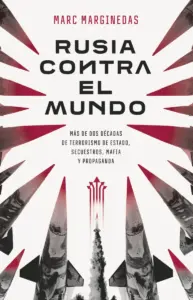
Rusia contra el mundo
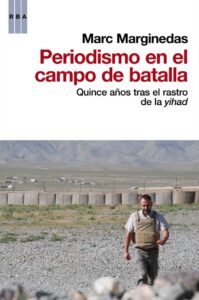
Periodismo en el campo de batalla
In this book, former El Periódico Moscow correspondent Marc Marginedas explores the dark and violent methods the Kremlin has used to consolidate its power—some of which he witnessed firsthand during his six-month kidnapping in Syria at the hands of the Islamic State.
From the early false flag attacks in Chechnya to the poisoning and assassination of dissidents like Alexei Navalny, through the export of mafia networks with Kremlin ties and support for extremist armed groups, this book traces over two decades of state-sponsored terrorism under Putin. It focuses on understanding Russia’s role as a global destabilizing force—from Syria and Ukraine to Spain itself.
After nearly fifteen years reporting from some of the world’s most volatile hotspots with the supposed Islam–West conflict as a backdrop, journalist Marc Marginedas pauses to reflect and critically assess his journey.
Why would someone raised in the comfortable neighborhood of Sarrià in Barcelona choose to travel to the planet’s most unstable regions? Was it a thirst for notoriety, an ego boost, an adrenaline addiction—or a genuine desire to serve society? What were the successes and missteps? What lessons needed to be corrected or reevaluated for the future?
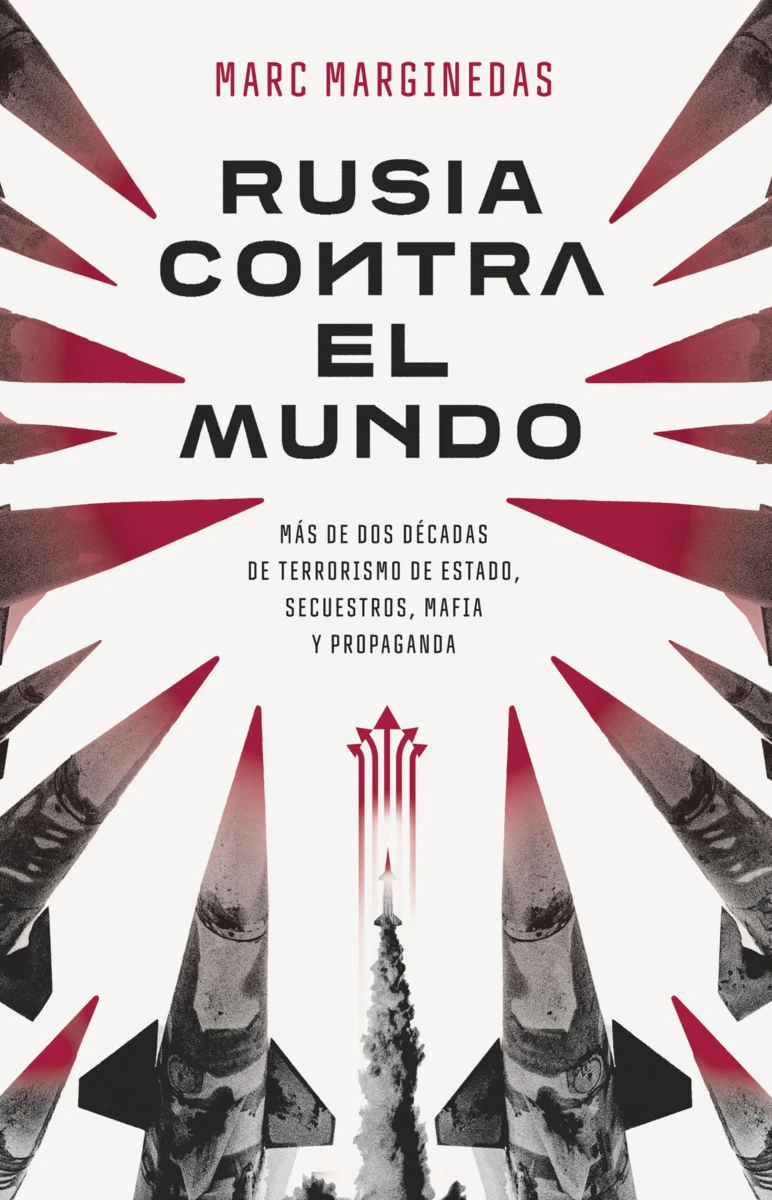
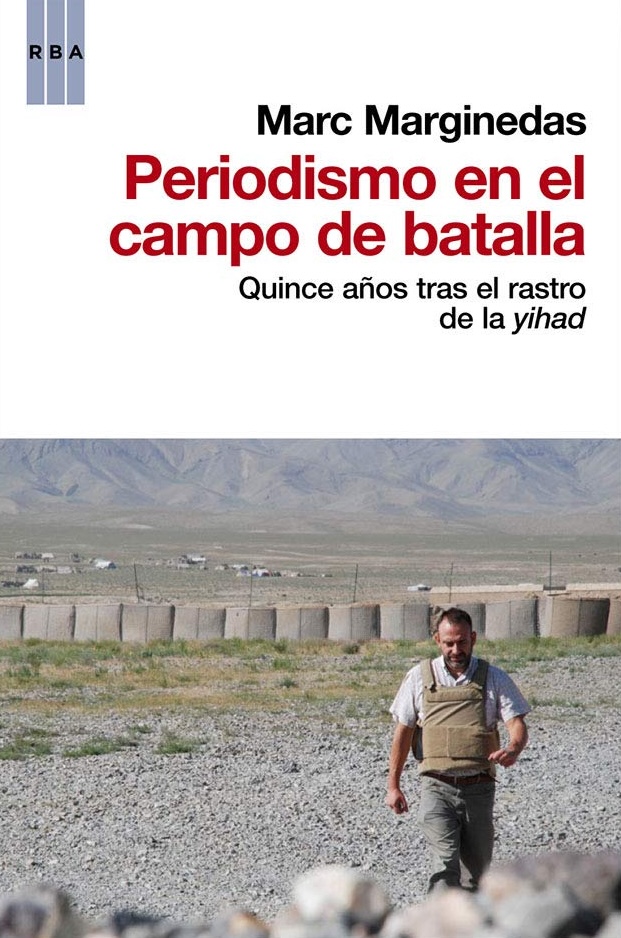
Juan Miñana
Juan Miñana (Barcelona, 1959) studied history. When he was very young he won the City of San Sebastián narrative prize and at the age of 25, Seix Barral published his first novel, La Claque. Since then he regularly publishes narratives and essays with Barcelona as a backdrop. Critics have recognized the originality of his work and have highlighted his ability to lead readers through time and history with a hypnotic capacity, using irony and humor. In addition to his literary production, he has also been a contributor to various media. As a journalist and writer, it is worth mentioning his work as a travel book commentator.
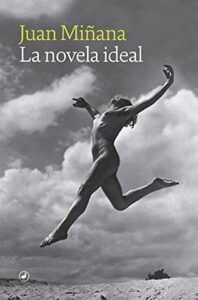
La novela ideal
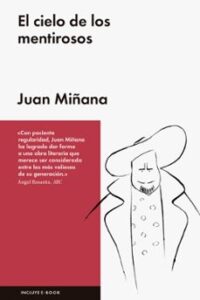
El cielo de los mentirosos
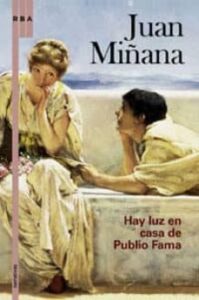
Hay luz en casa de Publio Fama
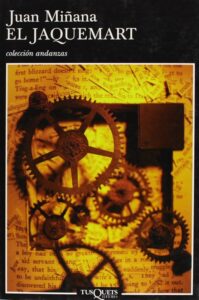
El Jaquemart
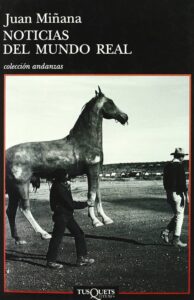
Noticias del mundo real
La novela ideal is the story of a character who lived on the margins and was a secondary actor—and privileged spectator— of many of the movements that marked the city of Barcelona in the first half of the last century. From the most decadent bohemia to the splendors of naturist nudism, passing through esotericism and libertarian movements, our character reinvents himself to adapt to the spirit of permanent change.
The astonishment of a literary man of extemporaneous erudition and dignity, the naturist society that preaches vegetarianism and nudism in a pious society and the collective amazement at the always unexpected twists of history make this novel an artifact laced with humor, full of real characters, but also a book that offers indelible loads of depth and immerses the reader in a hypnotic literary journey.
Centered in early twentieth century Barcelona, this novel offers us the vicissitudes and decline of a wise man and bohemian during his days of fame and glory in Barcelona and Paris. Based on the life of Pompeyo Gener, “Peius,” this multifaceted character is at once erudite, cheeky and a symbol of the decadent and cultured bohemia of the time. A hypnotic novel that is structured around humor and a city that, although will never return, Juan Miñana will never allow us to forget.
Hay luz en casa de Publio Fama is the story of a young man who becomes the first news reporter in Barcelona’s Roman colony of Barcino. The arrival to the city of an ill-reputed veteran of the legions and ex-convict, to whom the State has granted a plot of land, shakes the order of the ruling family’s hegemony. When turbulent acts begin to follow, Publio will be both narrator and protagonist.
In a time of extreme delicacy and cruelty, Juan Miñana describes the birth of a profession—the journalist as information seller—highlighting the importance of public opinion in the face of impunity and abuse of power. Above all, Miñana shapes a brilliant inquiry into the human soul.
A novel that combines the most demanding literary skills as it persuades and immerses readers in a fascinating era.
During the last years of Philip IV’s reign, a plague ravages Barcelona. Buenaventura Deulocrega, a master in arts and medicine, arrives at the Hospital de la Santa Cruz ready to fight against the epidemic. He meets the wise and enigmatic Juan de Ameno, the king’s watchmaker, who has sought asylum in the hospital’s private chambers. There he will conceive what will be his last project: a bronze jaquemart, or automated bell striker, destined for the cathedral’s clock tower. From this strange refuge Buenaventura and Juan de Ameno witness the onslaught of a difficult and bitter present, forging a friendship sheltered behind the constant recreation of the past, in a fable plotted with clockwork subtlety that safeguards them from the relentless passage of time.
Barcelona, 1963. Gabriel and Teddy are two young friends working on the large crew that Samuel Bronston has hired for the filming of Circus World. From different social backgrounds, but with identical ambitions, they do not want to waste this opportunity they’ve been given. When one morning, John Wayne, the lead actor of the film, disappears without warning they agree to find him in exchange for a trip to Hollywood. They begin a frantic search that, with the benefit of hindsight, will become a decisive learning experience for Gabriel. On a journey full of unforeseen events in an imaginary papier-mâché Barcelona, that’s also poor and sad, those few hours will intertwine everyone’s destinies. Gabriel will not only learn the truth behind the myth, but about the real world he’s immersed in. Lessons that will allow him to accept his inevitable maturity.
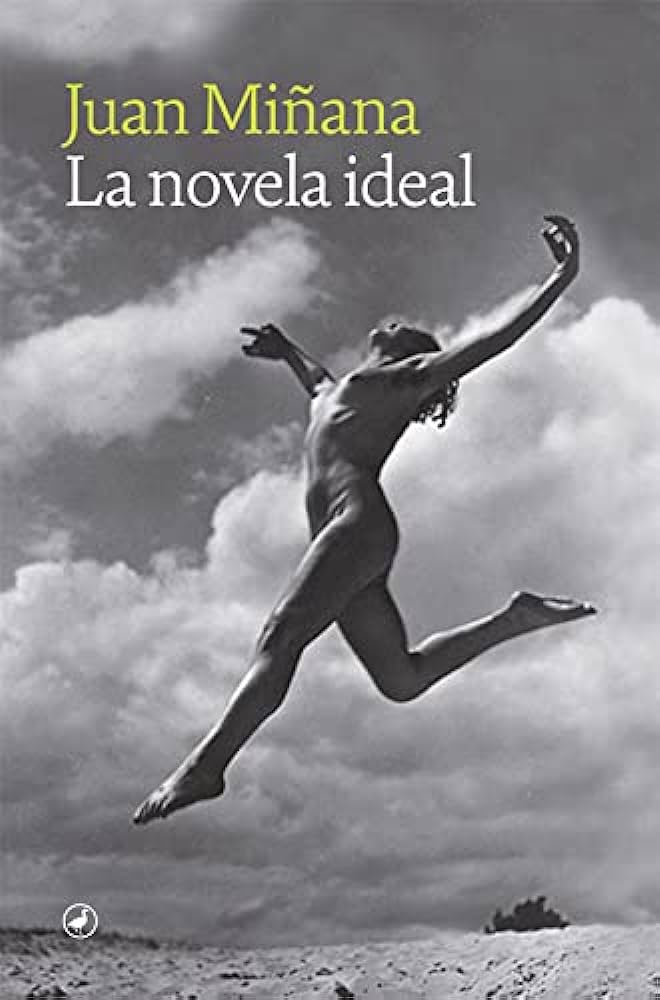
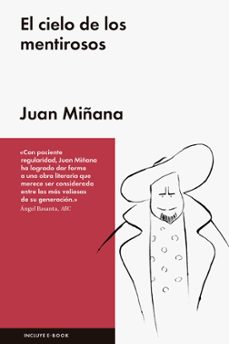
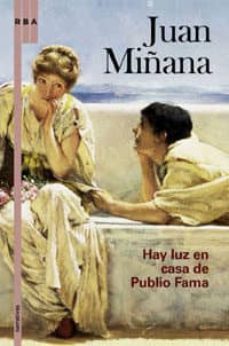
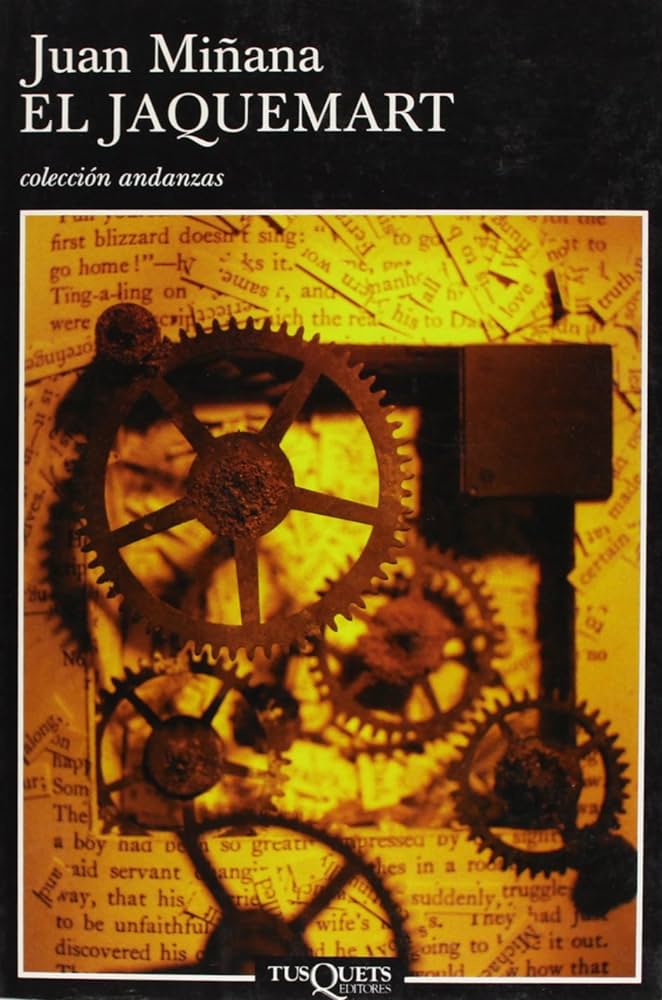
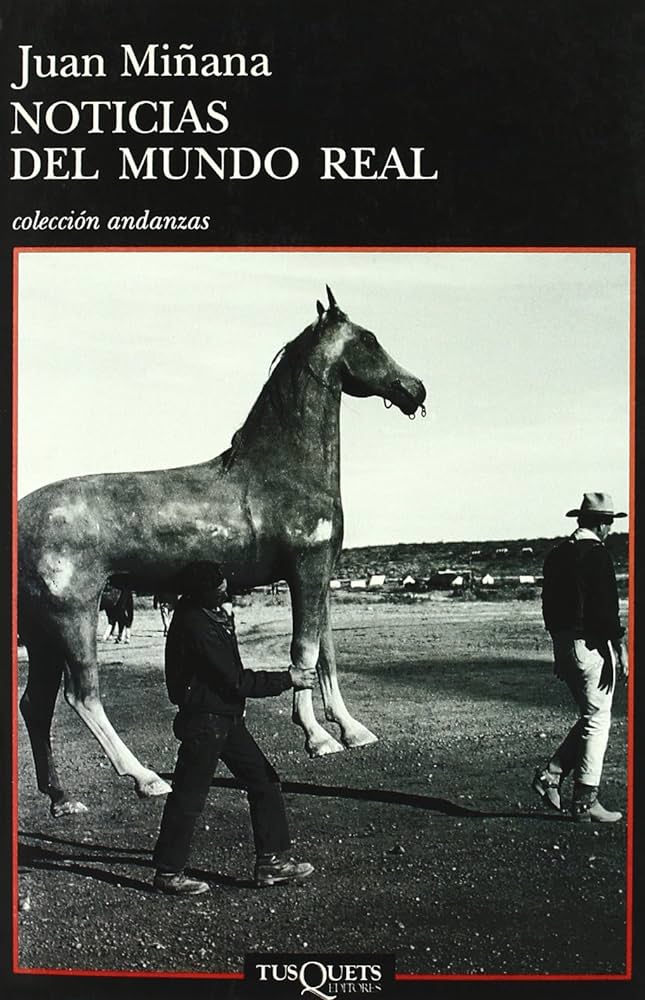
Raúl Montilla
Raúl Montilla (Barcelona, 1979) is a journalist. He began his professional career in 1998 working with local media in Barcelona. He took over the Culture section of the regional weekly El Far in 2000 and began to contribute to El País and EFE news agency until the end of 2001 when he became the metropolitan correspondent for El Mundo. He also contributed to La Vanguardia for close to twenty years. He has written fiction and non-fiction and Grijalbo published his novel Las hijas de la fábrica in 2024.
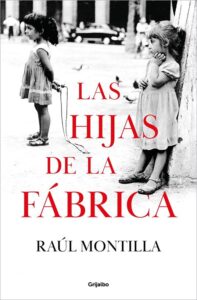
Las hijas de la fábrica
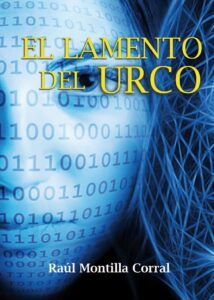
El lamento del Urco
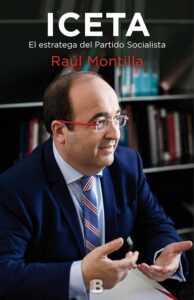
Iceta
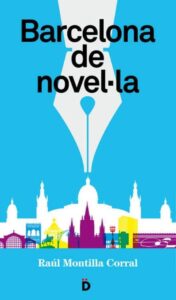
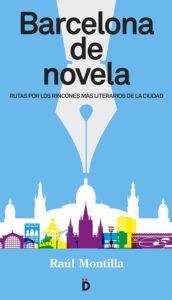
Barcelona de novel·la

Vallarana
Outskirts of Barcelona, the seventies. Everything is changing fast in the neighborhoods. Factories and apartment blocks have transformed what used to be waste ground, but there is still a long way to go. Protestors are proliferating, demanding not only schools and parks, but also extended rights in a Spain still subdued by Francoism. One of those voices is that of Leonor.
Born in Cordoba, she emigrated to the north in search of a better future. Ten years later, she is worried about the direction her children have taken. Especially Lucía. A staunch supporter of the workers’ struggle, the young woman has achieved the dream of many in Barcelona’s outskirts: to work at SEAT, the mythical car factory. However, this milestone brings unexpected challenges to the family.
Three generations of women who will witness an era marked by social unrest and violence, but also with love and the desire for freedom.
Laura Garcia, sub-inspector of the Mossos d’Esquadra, travels to Ribadeo to participate in a European security congress invited by an old friend, the National Police Commissioner Felipe Pereira, a homicide sleuth who, as he himself says, is only dedicated to showing himself off. Laura decides to stay in an idyllic rural house where both its owners and guests keep secrets that intertwine: not everyone is what they seem to be. A story of Galician drug traffickers, their connections to the Russian mafia, old spies, and an important multinational security company. A novel that takes place not only in Galicia, but in Barcelona and L’Hospitalet de Llobregat, specifically within an important global tech congress where it’s evident that 21st century crime may have local manifestations, but it’s global.
“On my tombstone it will say: He was gay and danced,” Iceta jokes while he rearranges some books in his small office, where folders are piled up and papers are stacked. This is the biography of Miquel Iceta, leader of the Socialists’ Party of Catalonia (PSC). Over the last four decades he has been a key figure in Spanish and Catalan politics, not only as a witness, but as an active part of it.
An invitation to know and visit Barcelona from a different point of view; through literature. A walk through the streets and pages dedicated to a city that has been the setting for mythical novels such as Don Quijote or La plaça del diamant and has played a leading role in such well-known titles as La catedral del mar, La ciudad de los prodigios and La sombra del viento. Here is a modern itinerary through the places that became an essential presence for thousands of plots, from Nada to Victus to Los mares del sur. Not only is it a vivid look at the enclaves that marked authors such as García Márquez, Vargas Llosa, Vázquez Montalbán, Montserrat Roig, and Terenci Moix, but a book that’s an invitation to read.
Rights sold: World Spanish (Diëresis)
Vallarana is a mountain village where nobody dies at all because there’s no cemetery. For that reason, the over 200-year-old parish priest Ginés Revilla continues to officiate mass despite being a ghost. There is also the landowner, Don Rafael Seleno and a young man, Enrique Lafuente, who questions what everyone else thinks is right (and maybe it’s not) and who falls in love. Love! With whom? With Estrella. With the wonderful Estrella. Vallarana is a novel where not everything is what it seems, where reality coexists with what could be and with what couldn’t be, definitely not, maybe? But where everything is possible. A young adult novel that uses irony and humor to reflect on power, vanity, envy, war…Friendship and generosity. Also hope.
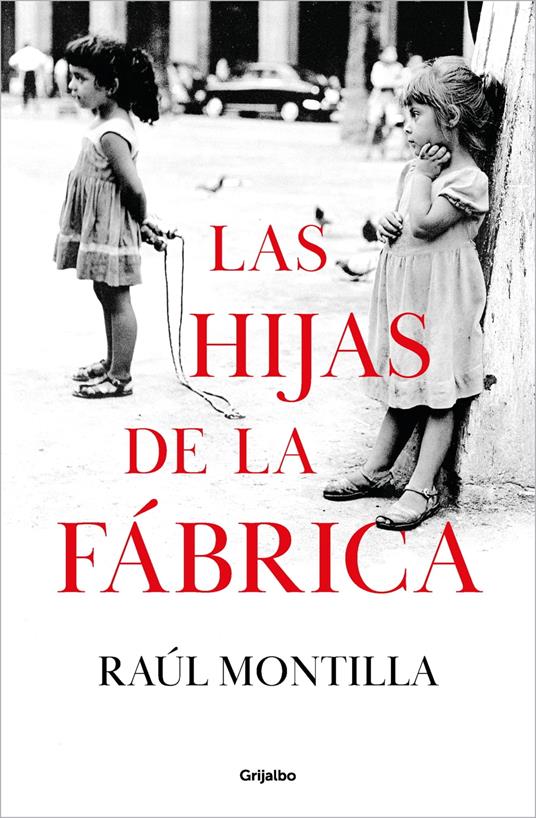
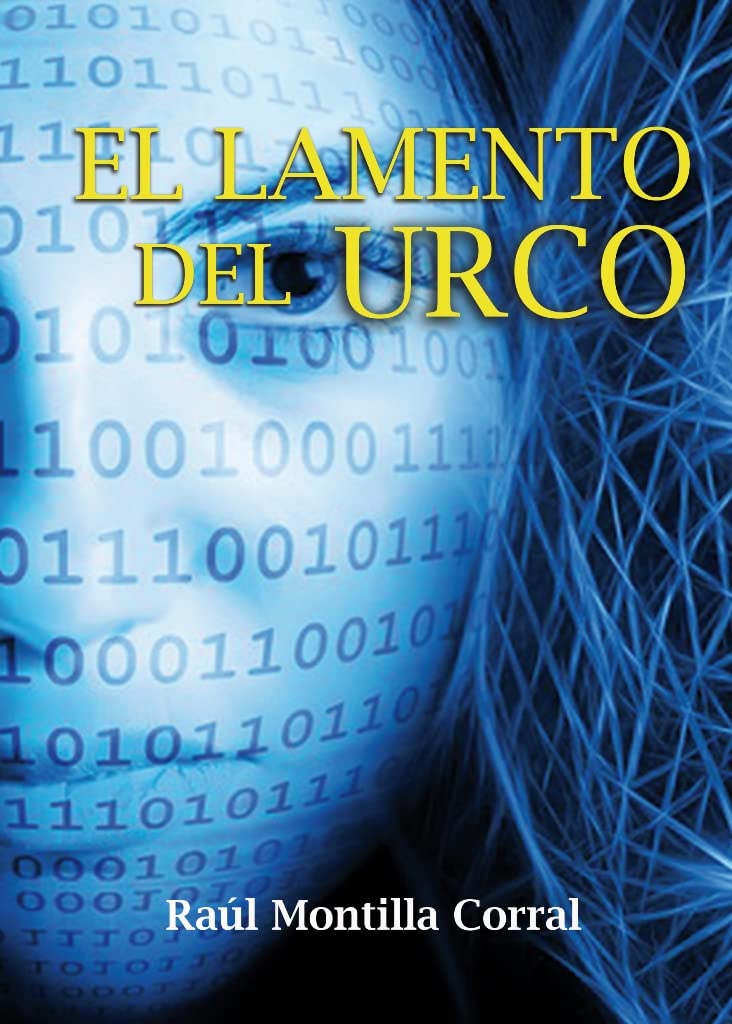
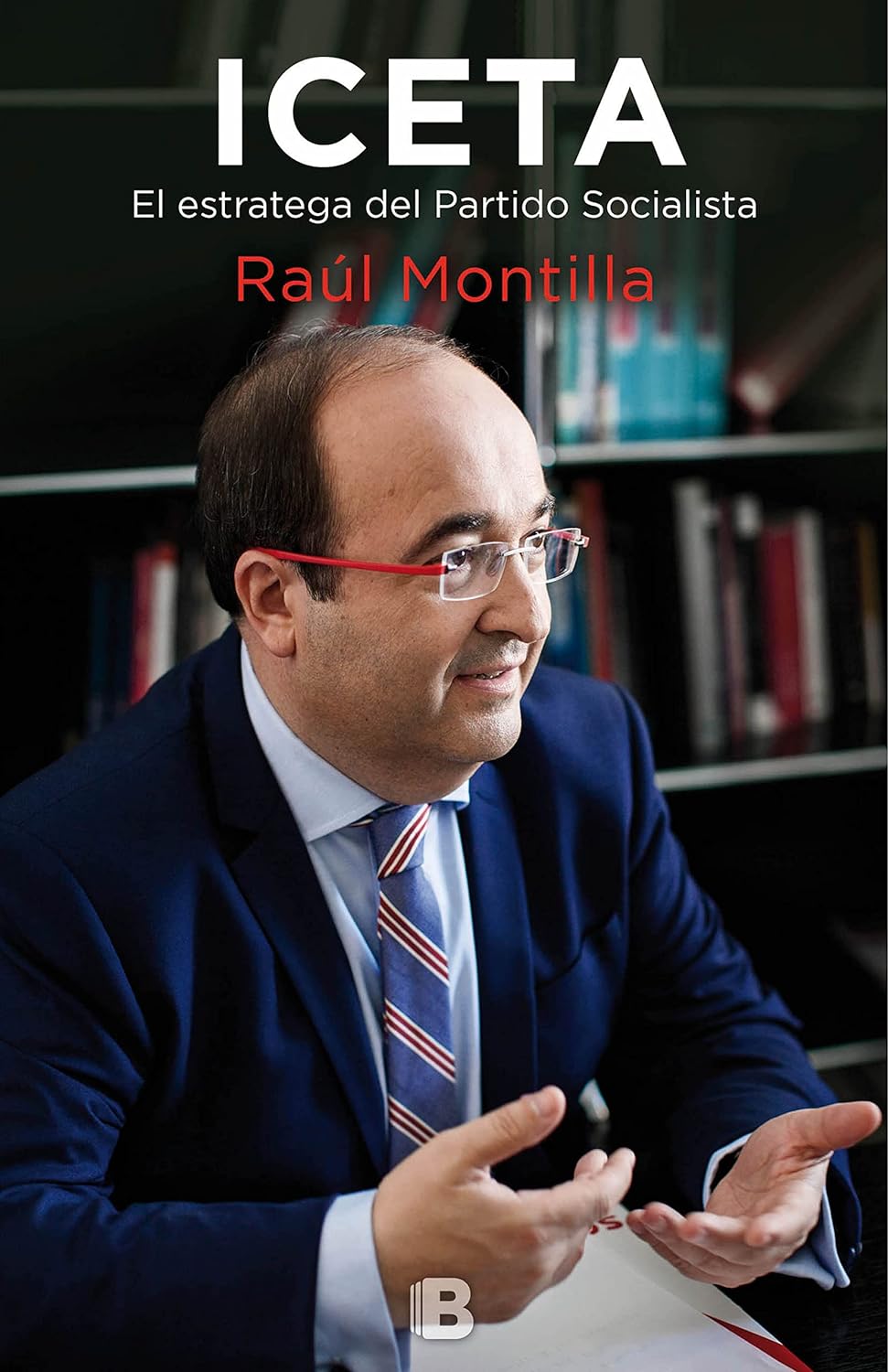
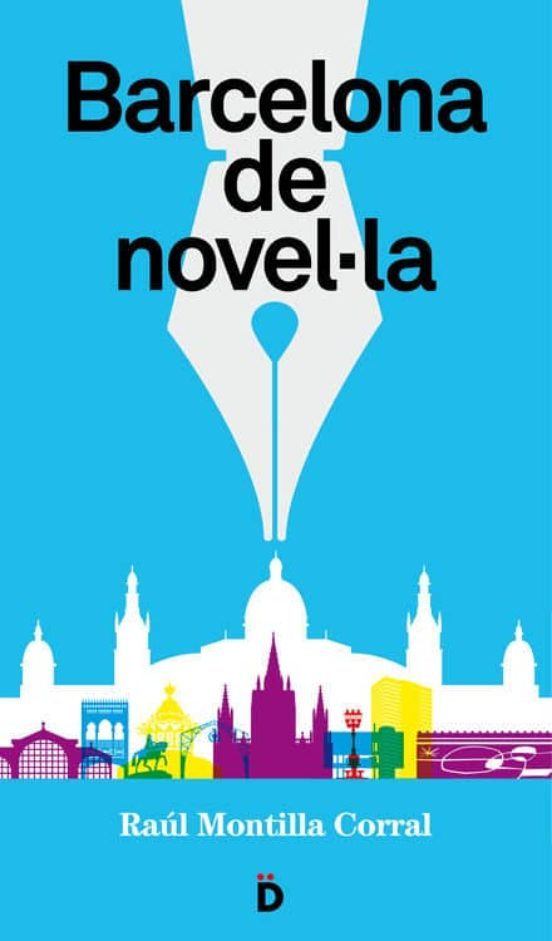
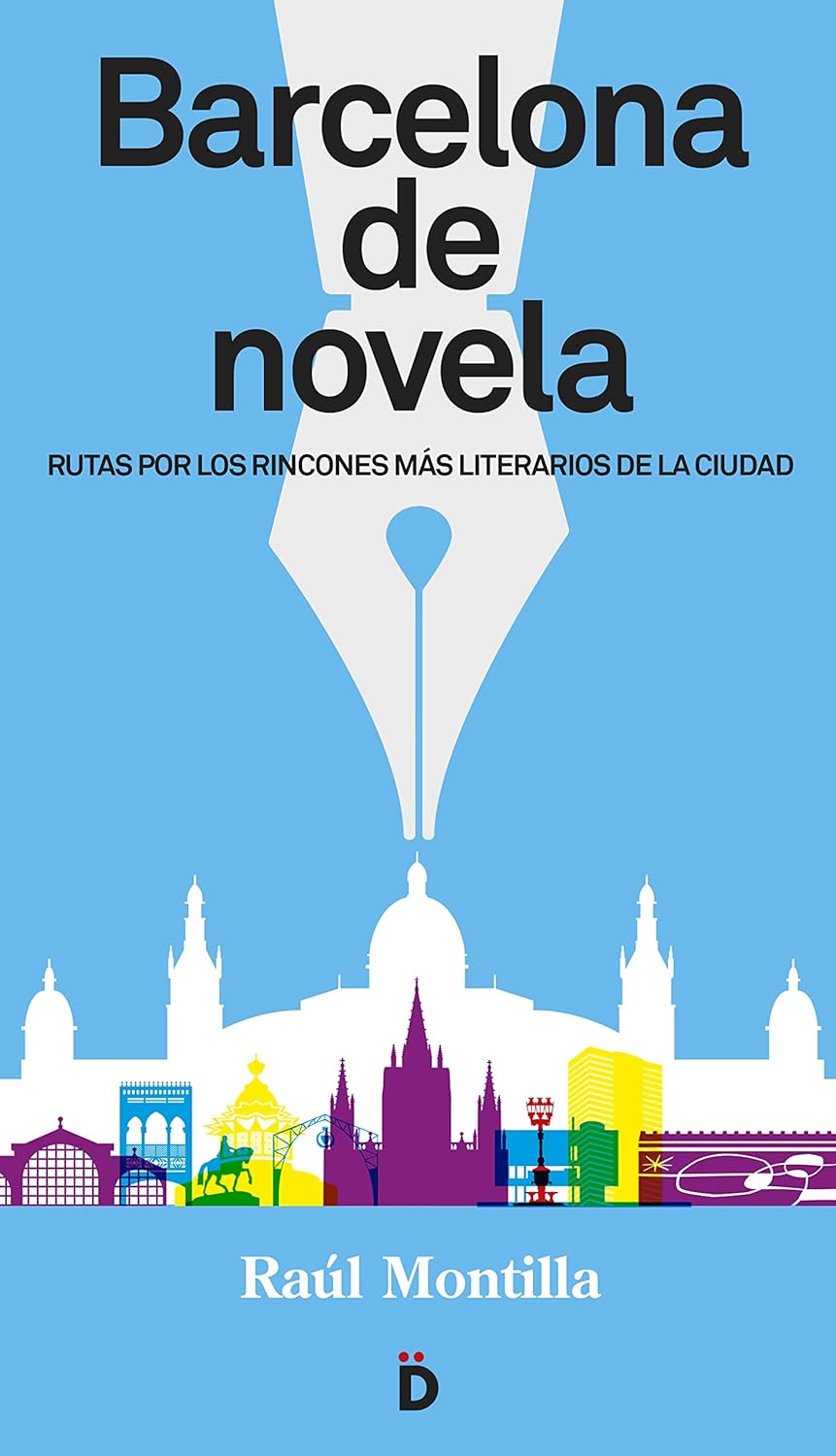

Open Arms
Open Arms is a non-profit non-governmental organisation with one principal mission: to protect those who try to reach Europe by sea, fleeing from armed conflict, persecution or poverty; and also to inform and educate on land so that those who migrate can make decisions with complete freedom and knowledge.
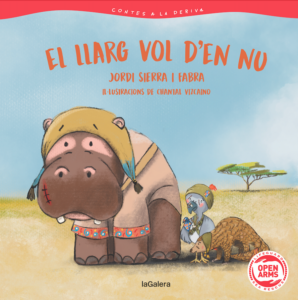
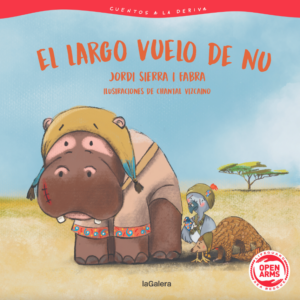
El llarg vol d'en Nu
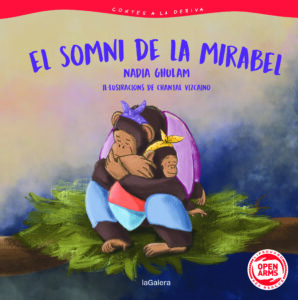
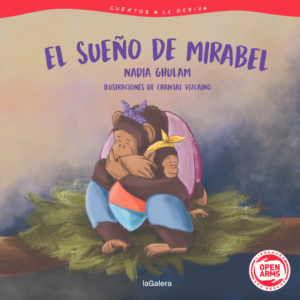
El somni de la Mirabel
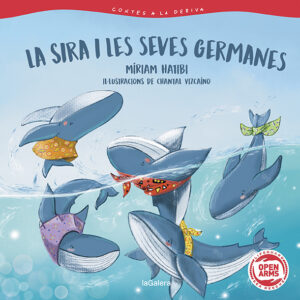
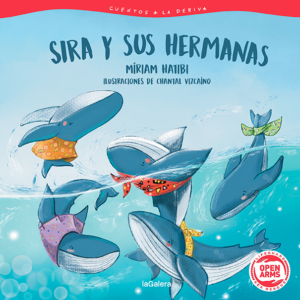
La Sira i les seves germanes
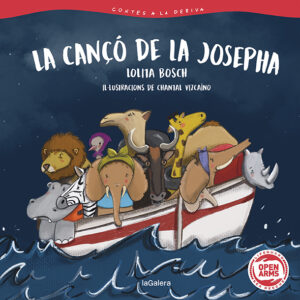
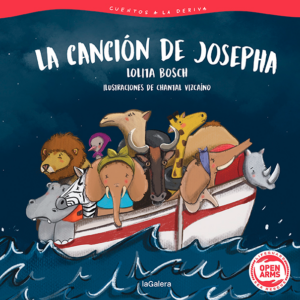
La cançó de Josepha
For a while I was a soldier-bird. A simple little bird that began to go mad, erasing all vestiges of what it had been. A giraffe, also a captive, told me one day: “There are other lands in the north, beyond a great sea, and it is said that everything is different there, that there is no war, but peace.”
Cuentos a la deriva is a solidarity project by La Galera with Open Arms.
Rights sold: World Spanish (La Galera)
She used to tell me that FREEDOM was flying like a bird, touching the clouds or gliding over a lake, deciding at every moment where you want to go. That FREEDOM could also be a forest of towering trees where we could live in peace, without anyone hurting us or forcing us to do work we don’t want to do in exchange for nothing.
Cuentos a la deriva is a solidarity project by La Galera with Open Arms.
Rights sold: World Spanish (La Galera)
One fish alone does not have much strength. Two fish alone do not have much strength. Three fish alone are not very strong. Four fish alone… But a hundred fish together! A hundred fish together have a lot of strength.
Cuentos a la deriva is a solidarity project by La Galera with Open Arms.
Rights sold: World Spanish (La Galera)
Have you ever heard of Cameroon? An African country full of animals living in freedom: giraffes, hippopotamuses, cheetahs, buffaloes, lions, gorillas, chimpanzees, elephants like Josepha, wildebeests and bongos. Can you imagine? A country where animals run free and elephants can be school teachers…
Cuentos a la deriva is a solidarity project by La Galera with Open Arms.
Rights sold: World Spanish (La Galera)
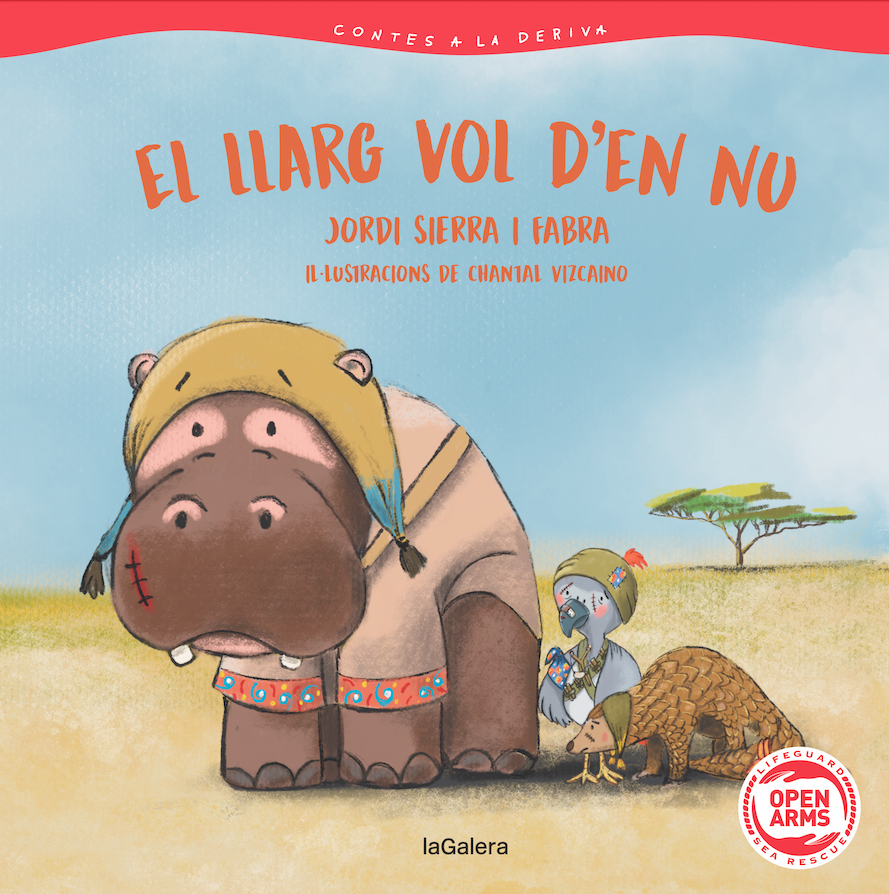
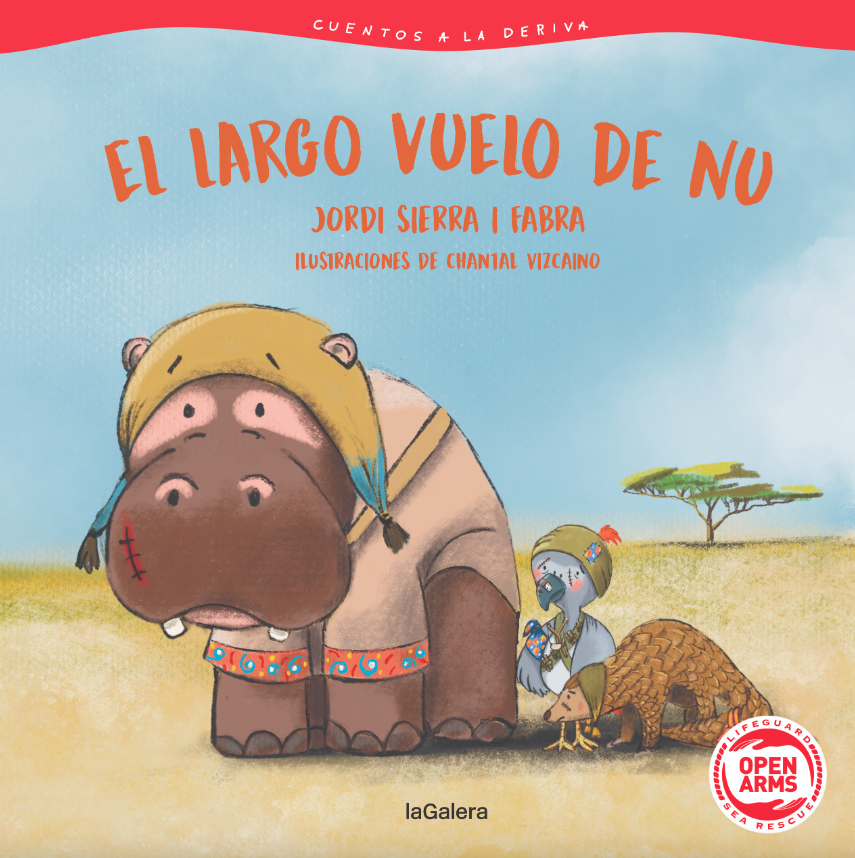
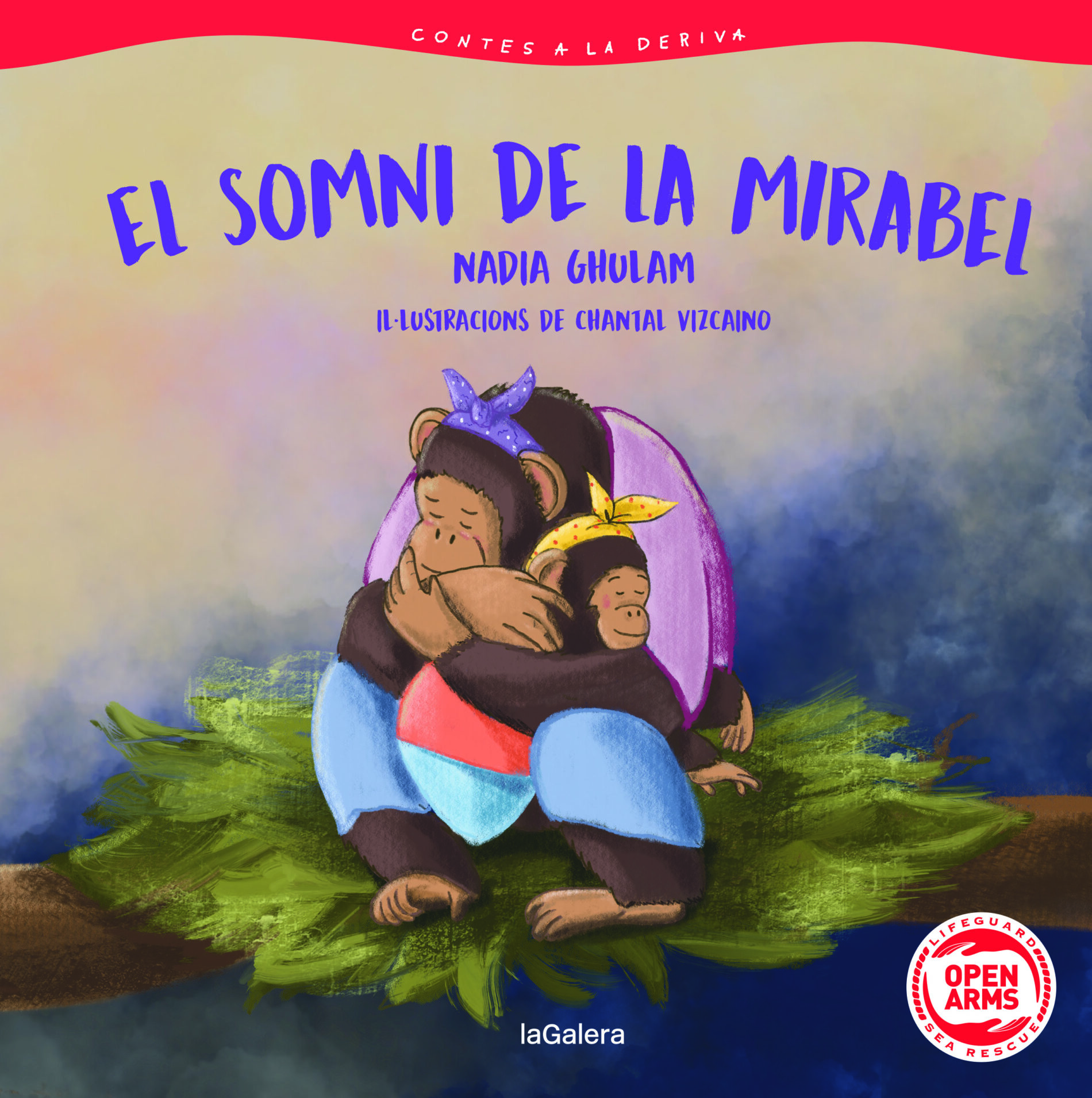
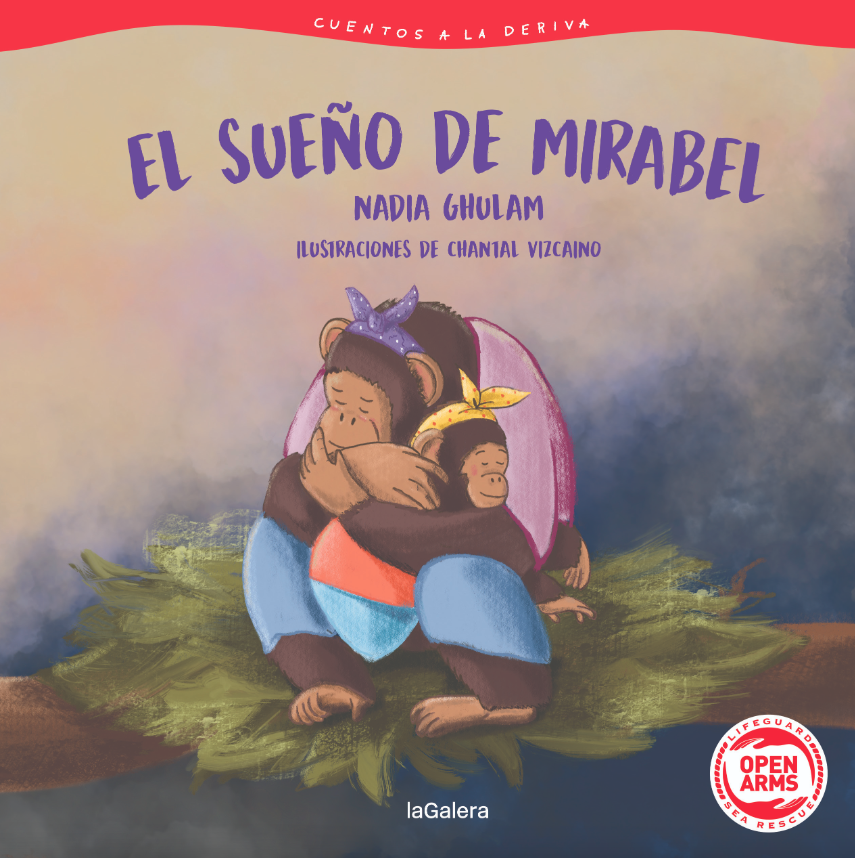
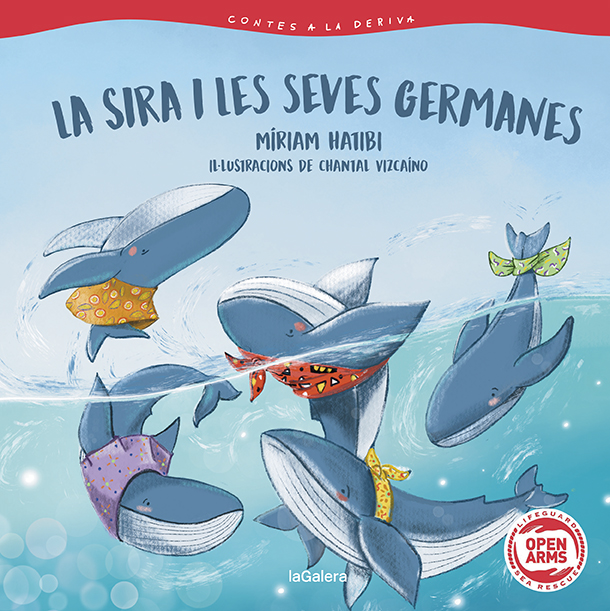
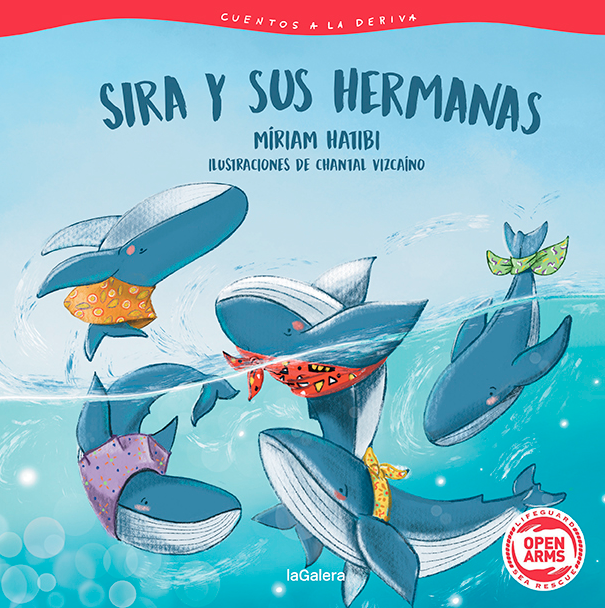
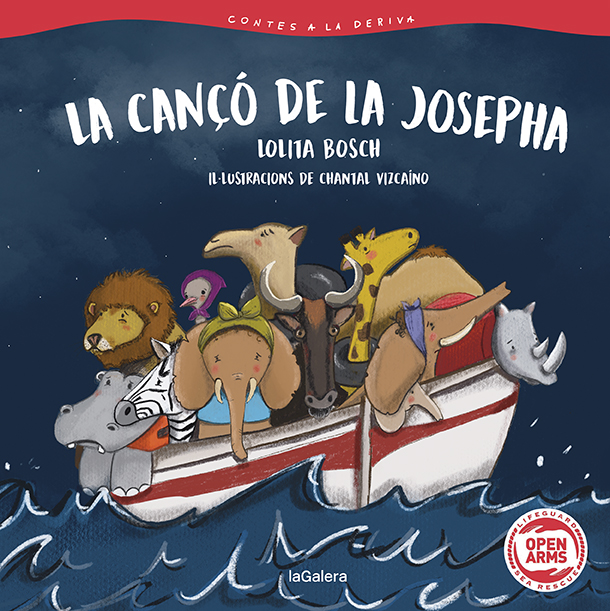
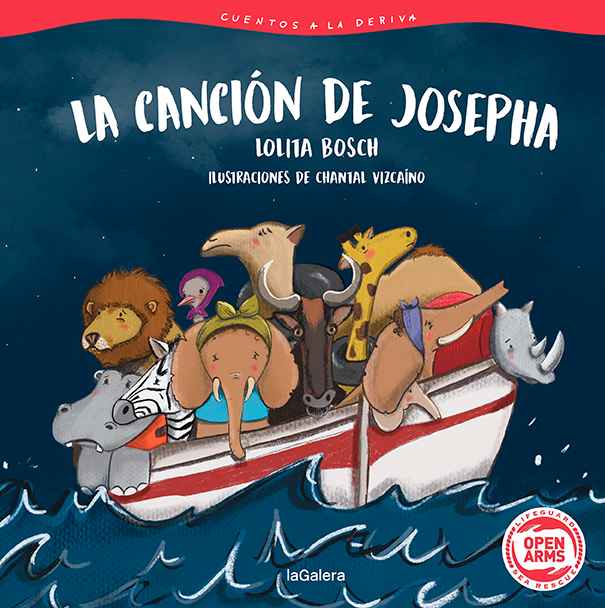
Antoni Oró Badia
Antoni Oró Badia (Bilbao, 1957) is a musician, economist and writer. He began in show business as a member of the traditional music group Sac de Cançons. With the children’s theater group Trepadella, for which he founded, he collaborated with Germans Poltrona, Marduix Titelles and Jaume Arnella in several theatrical projects. With Orquestrina Galana he traveled around Catalonia and abroad and released several recordings. With a group of enthusiastic musicians, he promoted the creation of the Centre Artesà Tradicionàrius in the nineties. While working with Solistes de la Costa, he created the record label TRAM-GMI Records. Over the years he has written scripts, teaching content, as well as lyrics and hymns for pirates and villagers.
Marc Parera
Marc Parera is a translator and writer. He has a degree in journalism and Catalan philology and was coordinator and screenwriter for Canal 33’s program, Millennium. He received a Solé Tura Award for the documentary Les ombres i els dies and he’s contributed his writings to La Vanguardia and Palau de la Música’s Revista Musical Catalana. He is currently a language teacher for adults. La nit més clara (“The Clearest Night”, Rosa dels vents, 2024) is his first novel.
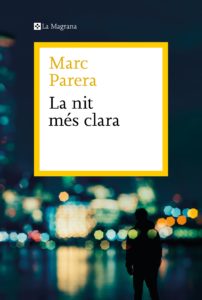
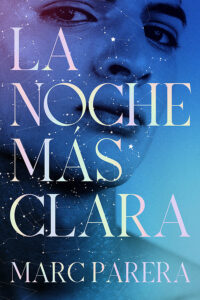
La nit més clara
What dark paths will a desperate adolescent end up choosing? This piercing and tender debut takes us into the labyrinth of prostitution.
After the death of his father, Damià spends his nights wandering around Barcelona, without hope or affection. As if to prove that he can still feel something, he begins to prostitute himself and his life splits in two: By day he is a studious adolescent who takes care of his grandmother and by night he fulfills strange men’s fantasies with his body. As the months and seasons pass, Barcelona’s nights begin to reveal all the violence, sordidness and danger within them and Damià suspects the city is as empty as he feels.
A story of extraordinary delicacy that speaks to us of that magical and fragile moment when we discover the world’s goodness and vileness. It’s about sex, love, loneliness, and the possibility of finding light during the darkest night.
Rights sold: World Spanish (Dos Bigotes)
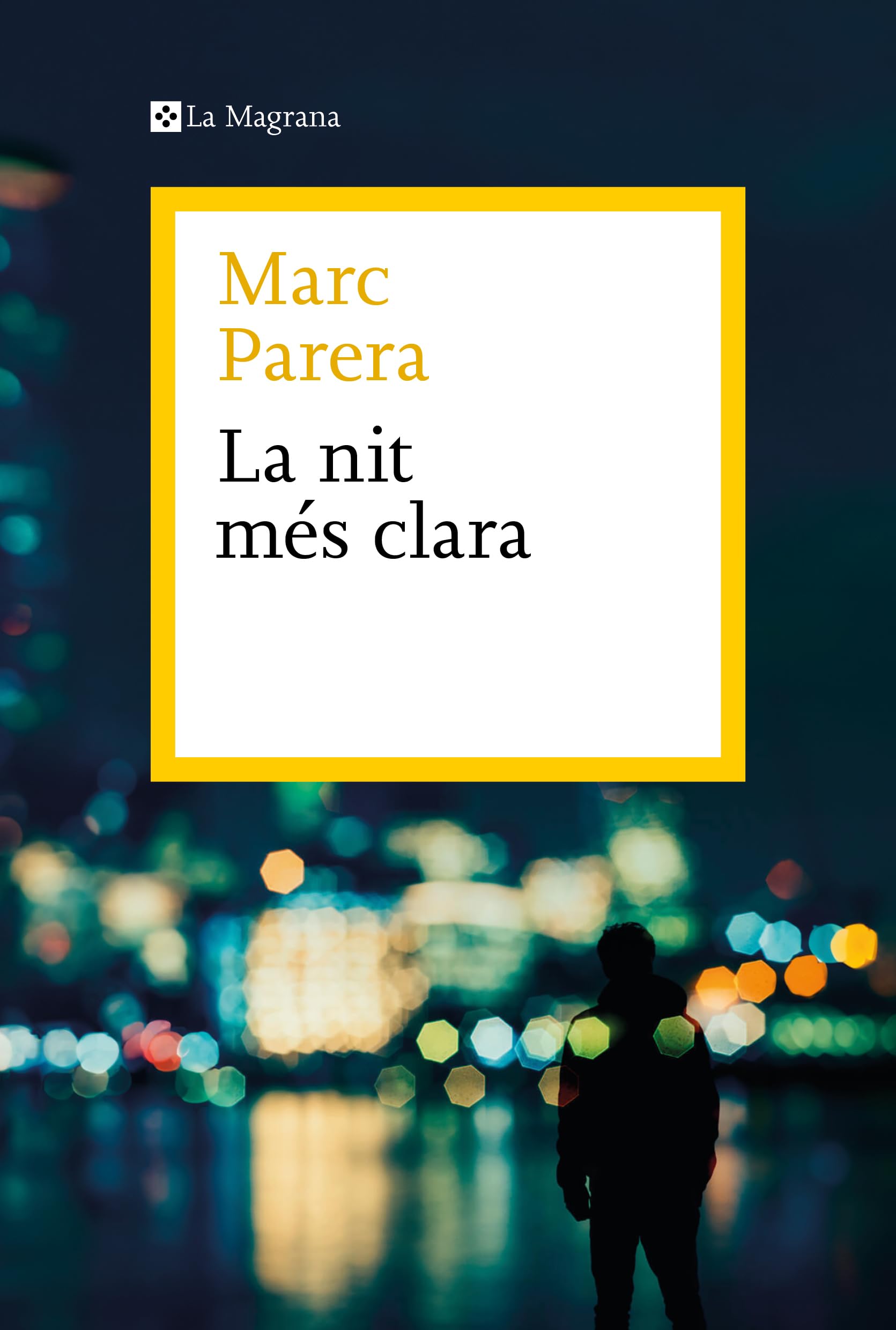
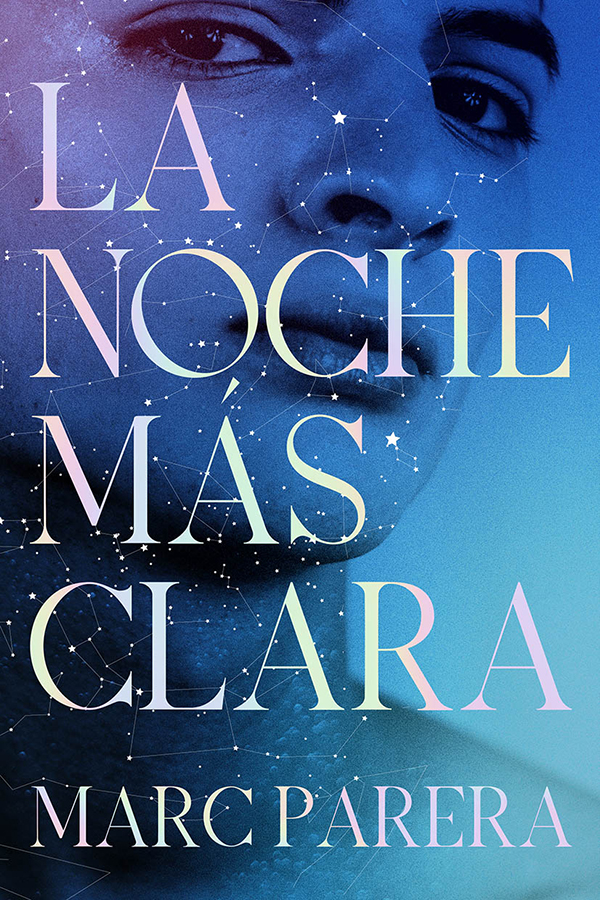
Laia Perearnau
(Barcelona, 1972) has a degree in communication science from Autonomous University of Barcelona (1995) and in history from University of Barcelona (2008). She began her professional career in print journalism, but soon turned to television, specializing in fiction. She currently works at Televisió de Catalunya where she’s a scriptwriter for programs on various topics. She is the author of several children’s books and her first adult novel, «Francesca de Barcelona» (Columna, 2022), was awarded the Néstor Luján Historical Novel Prize in 2022.
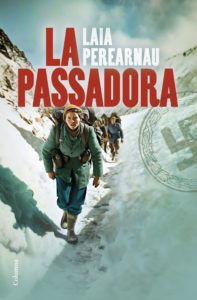
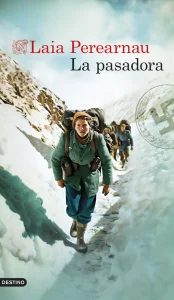
La Passadora
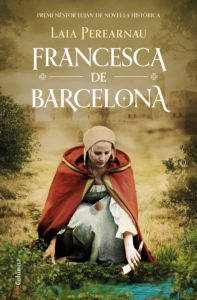
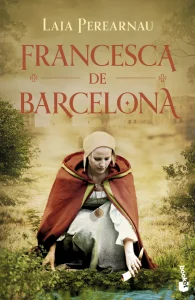
Francesca de Barcelona
«A WWll story of intrigue, resistance fighters and the woman who risked her life to save those escaping Nazi pursuers through the Pyrenees.»
Pyrenees, 1940s. After Sol Mentruit witnesses a murder, she is forced to flee and take refuge with a band of smugglers in Andorra. It’s not long before she joins an evasion network transporting crucial WWll documentation to Barcelona’s British Consulate. Things get complicated when Sol falls for Max Schell, a supposed eccentric intellectual from France with a secret: he’s a German officer.
When the leader of the network, Quim Baldrich, discovers that Sol and Max are involved, Sol is immediately expelled. To prove her loyalty, she performs one last operation: to lead a group of refugees across the Pyrenees from Toulouse to Barcelona to save them.
In this moving, action-packed story based on real events, Laia Perearnau vindicates the underappreciated and forgotten role of women in WWII’s resistance networks, delving into the little-known role of those who helped guide pilots, soldiers, Jews, and resistance fighters across the Pyrenees to escape Hitler’s regime.
Rights sold: World Spanish (Destino), Italian (Giunti Editore)
Barcelona, 1382. Francesca is a fifteen-year-old Christian girl who helps her grandmother as a midwife. Although she teaches her the tricks of the trade and how to use medicinal plants, it’s not enough for Francesca. Despite her humble condition she is still determined to become a doctor and surgeon. There is only one problem: this profession is reserved for men.
Thanks to her work as a midwife, she begins to frequent the Jewish quarter. There she meets Astruc, a Jewish boy from a long line of doctors, who wants to study medicine. They soon begin to share knowledge: Francesca teaches him what she knows about plants and he lends her his books. But medicine is not her only passion. When she falls for Marti, her initiation into adulthood begins. A life full of obstacles, love, betrayals and passion.
With a captivating narrative that’s based on a true story, Laia Perearnau masterfully takes us to the 14th century when disease wreaked havoc on Barcelona, to experience the thrilling determination of one extraordinary woman, who fought tirelessly against the limitations of her era.
Rights sold: World Spanish (Booket)
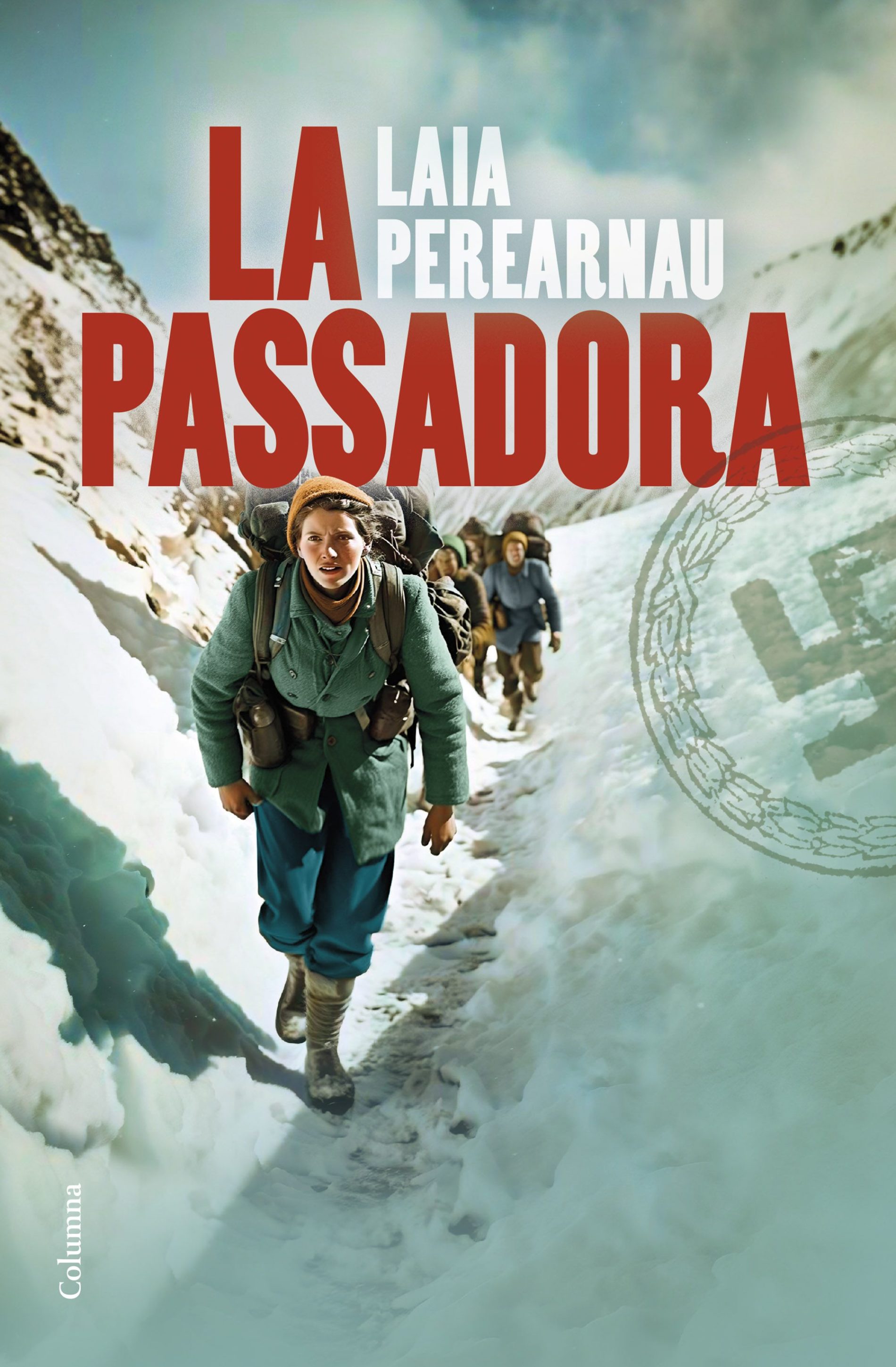
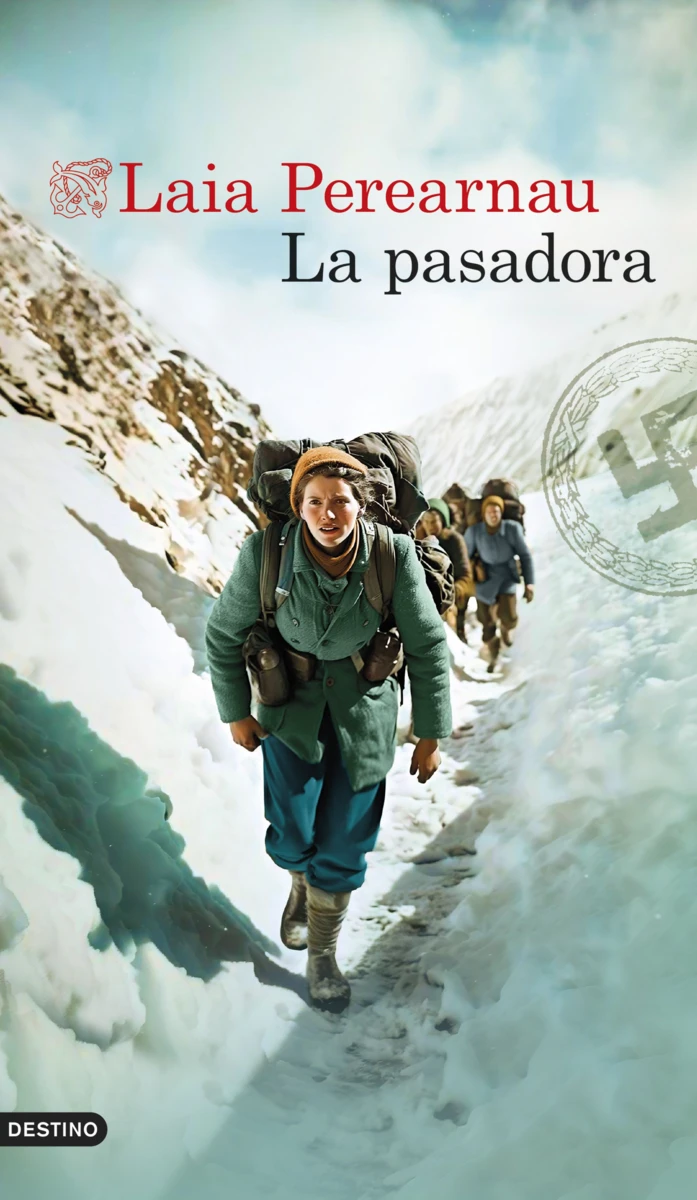
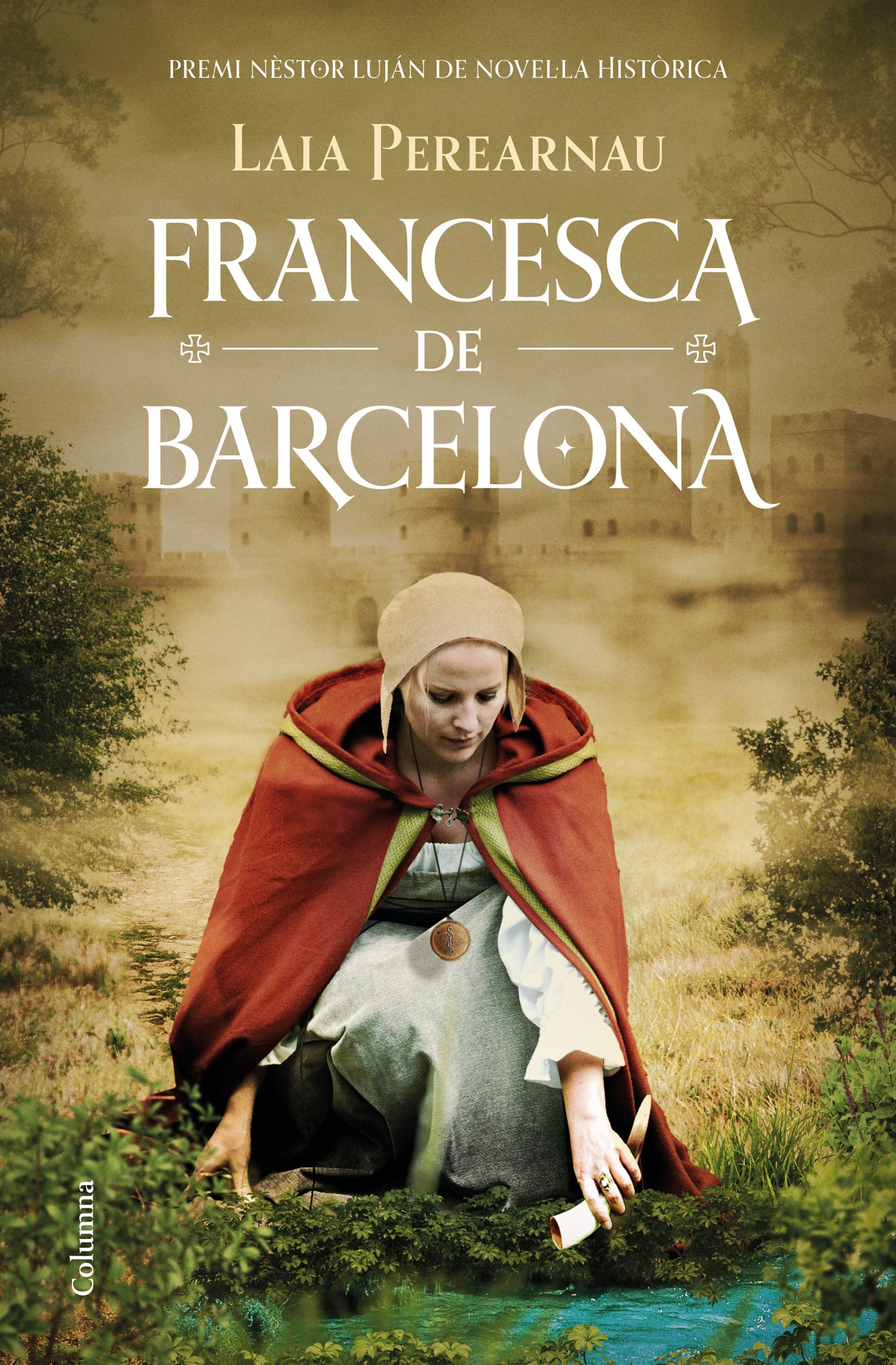
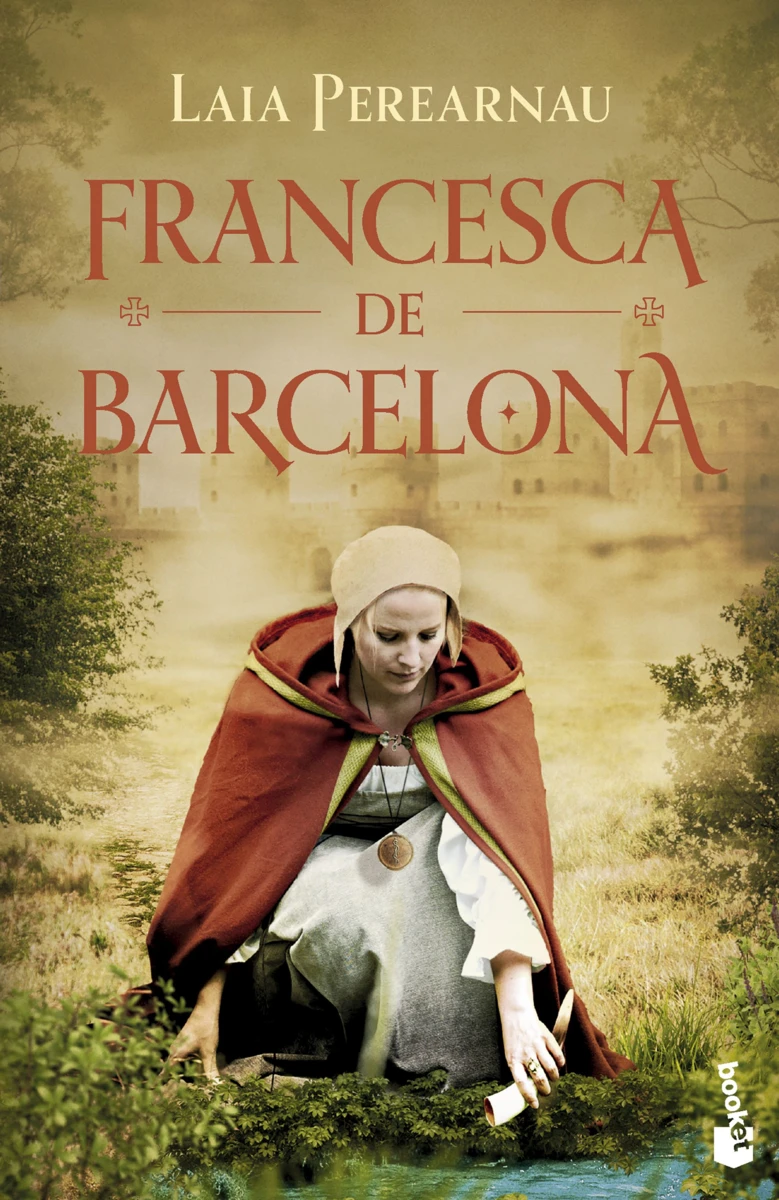
Mònica Pérez
Mònica Pérez (Barcelona, 1971) began her career as a theatre actress, performing with the company La Cubana and participating in the play Institutos ocultos under the direction of Leo Bassi. She has collaborated on various television programs including El Terrat, Crackòvia, Polònia, Homo Zapping, and Buenafuente. She was also part of the cast of La que se avecina during its second season. In film, she has appeared in all three installments of the Padre no hay más que uno movies directed by Santiago Segura, as well as in Escape Room: la película, directed by Héctor Claramunt. As an actress, she has primarily specialized in comedy.
Xavi Pérez Navarro
Xavi Pérez (Barcelona, 1983) has a degree in journalism and in advertising and public relations, and has worked at SER and at RAC1 since 2007. He first began working in the newsroom and later moved to El món a RAC1 where he’s worked as program editor, coordinator and deputy director since 2009. He became the station’s content director in May of 2023. El mal invisible is his first book and he has collaborated in the writing of several books.
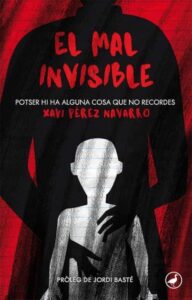
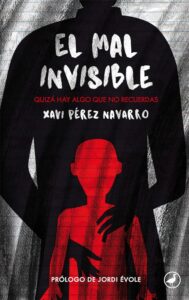
El mal invisible
Any child is a potential victim of an abuser. Eighty percent of child sexual abuse cases occur within the family. If it’s already difficult to file a lawsuit against a teacher, sometimes waiting years to do so, it must be much more difficult to explain that you have been abused by a parent or grandparent. Victims of sexual abuse need to speak out in order to help others and help themselves as well. They are voices that ask for only one thing: that we listen to them. Invisible Evil shows that if so many children have been sexually abused it’s because the abusers know that we’re ashamed to talk about it, that it’s taboo, and they know they can count on our silence.
Rights sold: World Spanish (Catedral)
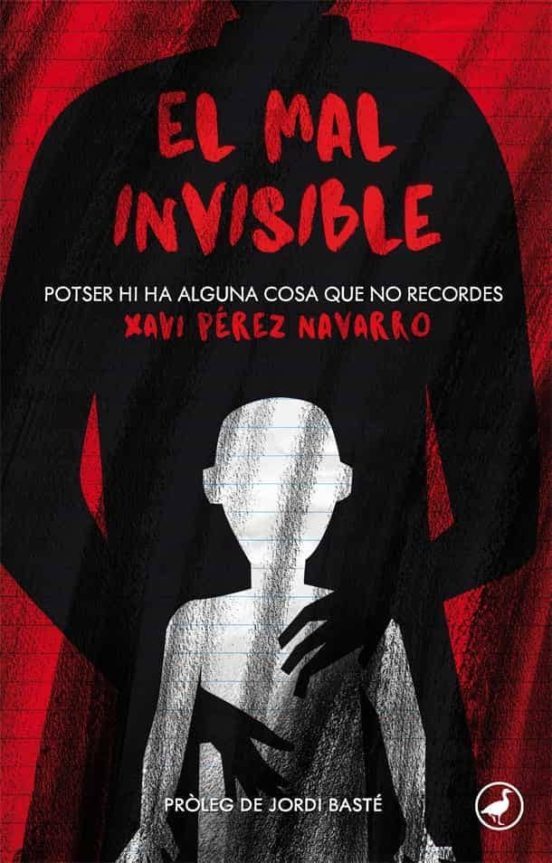
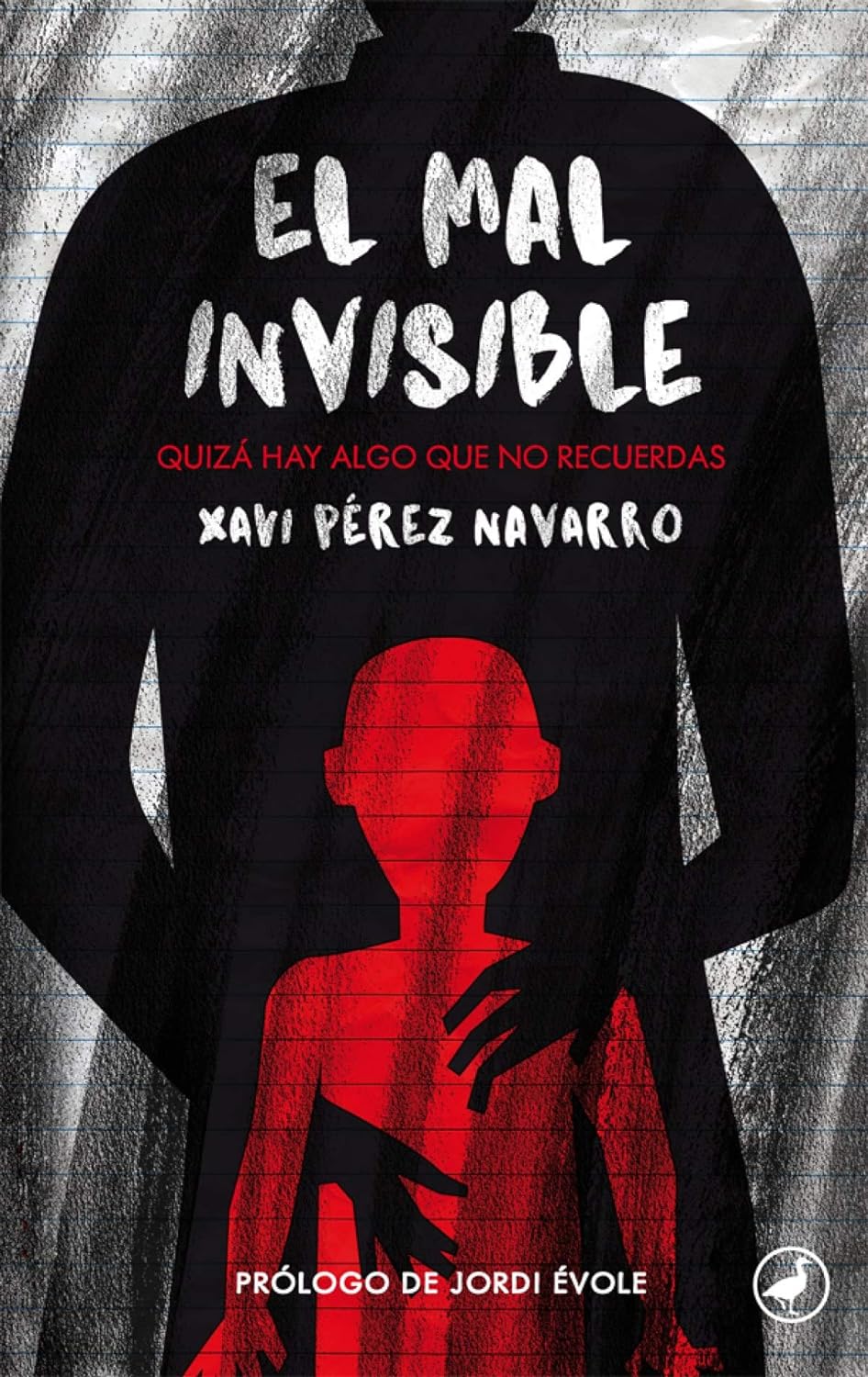
Clara Queraltó
Clara Queraltó (Alt Penedès, 1988) is a professor of Catalan language and literature. She has published: El que pensen els alters, Mercè Rodoreda literary prize for short stories and narratives; stories in the anthologies Barcelona Suites and Nits d’estiu; the novel Et diré R.; and the young adult novel Xiular en cas d’emergència. In 2024, she won the Anagrama novel prize for Com el so d’un batec en un micròfon. She also collaborates with RAC1 and El Nacional.
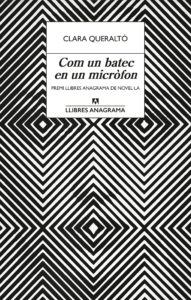

Com el so d'un batec en un micròfon
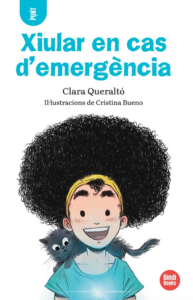
Xiular en cas d'emergència

Et diré R.
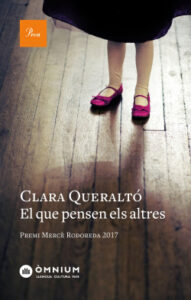
El que pensen els altres
With her brand new driver’s license, Gabriela heads to her grandfather’s town to spend the summer there working at her first paid job as a substitute librarian. It’s the San Juan holiday and her mind is spinning with the thickness of her hangover and the lightness of knowing that, soon or later, her friends will forgive her for disappearing yesterday with one of their dates. It wasn’t that bad, she says to herself. Once settled, she rushes off for a swim in her favorite spot at the lake.
With muffled hearing, Quim listens to the owner’s instructions for the house he and his friends have rented for a summer of teleworking and rest. Irritable, the persistent echo from last night’s summer festival, which he’d rather forget, still pulses between his ears like a catchy song. Once settled, he goes out to burn off excesses with the usual dose of exercise, but the chain on the bike he finds in the farmhouse breaks and he switches from pedaling to laps in a nearby lake.
Com el so d’un batec en un micròfon explores the mechanisms of seduction and attraction between opposites. With a refined style and a precision of language, Clara Queraltó has given form to an absorbing and disturbing game of mirrors that works with millimetric precision.
Rights sold: World Spanish (Anagrama)
The protagonist of this story is 10 years old and a good way to introduce her is to explain what she likes. She loves spending afternoons at her grandmother’s house, the smell of mercurochrome and belly aches from laughing too much. She also likes her cat’s soft, fluffy fur. Evidently, there are also things she doesn’t like at all. She doesn’t like to be laughed at for something she has no control of, for example, the hair she has on her legs, arms and a little bit all over her body. This is the story of Mariona and how she stands up to those who hurt her with the help of a little magic and a lot of courage!
Lucía leaves her mother’s home to try to make her way in the big city. When she befriends Talita, another young student who works in a cocktail bar, and moves into her apartment, they share both their joys and anguish together. Everything changes when Lucía gets pregnant. Loneliness, economic precariousness and unrequited love turn her life into one big question mark.
The lifelong friendship between two orphaned girls; a pair of patent leather shoes that represent a precious gift for a six-year-old girl; the son who has had to learn to live with a mother who is an addict; and the riot policeman who cannot stand physical confrontation. These are some of the starting points in this intense collection of stories that deal with feelings such as fear, disappointment, loneliness and guilt. Despite the characters being marginal, these are situations in which anyone can intimately identify with. Because sometimes life forces you to keep going when you would like to stop time, stay in a corner of the past and not have to face what you are inexorably forced to live.


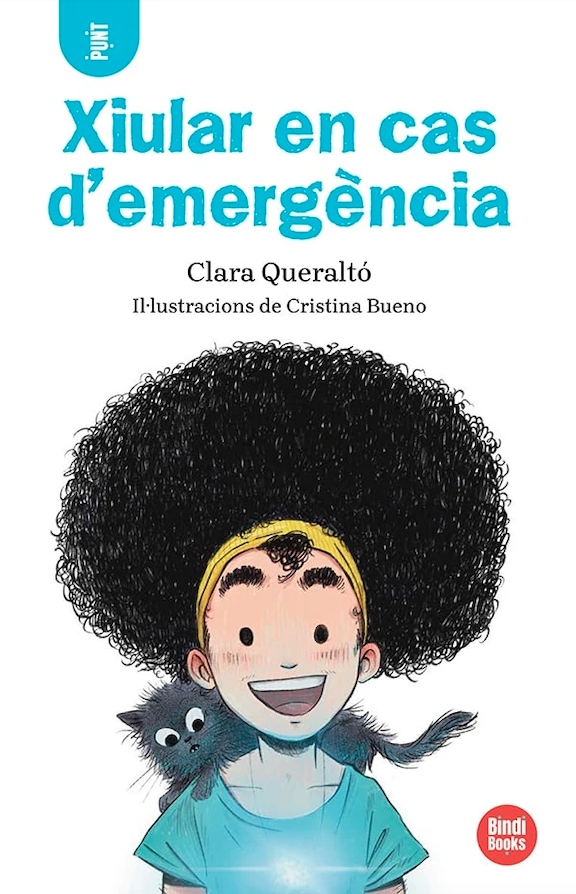

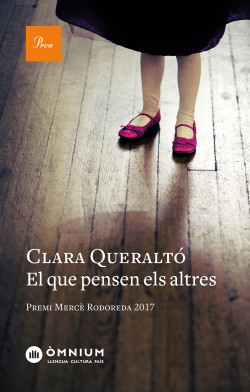
Pablo Raphael
Pablo Raphael (Mexico, 1970) studied political science at Iberoamericana University. He has worked as a literature professor and contributed to the newspapers El País, Milenio, El Universal and El Faro, as well as to several magazines. Together with Guadalupe Nettel, he was editor of the literary magazine Número 0. He is the author of several novels and books of short stories. His essay La fábrica del Lenguaje, S.A. was a finalist for the 2011 Anagrama Essay prize. In early 2012 he took part in the Clipperton Project, an international expedition which traveled to the island of the same name in three ships as a collaborative project between science and art.
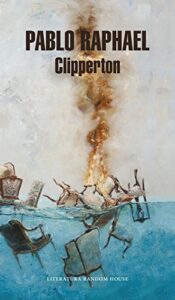
Clipperton
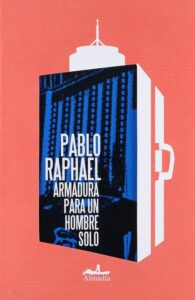
Armadura para un hombre solo
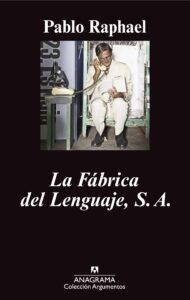
La Fábrica del Lenguaje, S.A.
Clipperton is an island, but it’s also a ghost prison, a museum of failures, and a kingdom where self-proclaimed emperors, captain generals and colonial administrations have ruled. While the cries of idiot birds declaim the true history of those who reigned there, in the darkness of a cell the most distinguished prisoner of the place prepares their legal defense. The final palimpsest presented here explains the reasons for their misfortune. God is imprisoned and about to be sentenced.
From the audio recordings that Jacques Costeau discovered in 1982, from an obsessive weaving of historical data, certain found documents and journalistic notes of various kinds, Pablo Raphael reconstructs a universe in which events constantly blur the border between reality and fiction, between historical chronicle and fantastic fable, to the extent that the island, always on the verge of sinking, manages to endure floating adrift in the reader’s head.
The wealthy master builder Ariel Horus—demiurge and soul of an unfinished skyscraper—has been watching the city for thirty years sitting on the shoulder of his giant. The master builder walks the endless floors of what will one day be the great Hotel de la Ciudad disdaining humanity with the will of a bored god. At times, he is followed by the cordial accountant Diógenes Mayorga, or is prey to the whims of the painter Sebastián Henríquez Escudo, or he’s besieged by the sensuality of Fabiana Serra. All the while, adding new functions and spaces to the only project that can redeem him.
Traveling in the old elevator, the master builder incubates the body of his creature in the corners of a project that is a nation in itself. Whose guests are the garbage, the furniture collected in the street, certain animals, and the rancor that the years accumulate. Here is an architectural chimera as a permanent black work, threatened by chaos and also by the city that lurks.
Our time is that of the decline in the present. Since it’s impossible to build new social pacts, future possibilities are imagined as few. There are no utopias, only a pragmatism that bets on the useful. Our society suffers from the disenchantment of democracy, the logic of the market and globalization, incapable of producing ideas for the future. Which is the way out? Richard Rorty would say: “It is not reason that changes things, but imagination.” From this principle, this book praises disenchanted optimism, where questions are more important than answers.
This is an essay on language, the idea of generations and the aesthetics of contemporary literature; but it is also a denunciation that points out the mechanisms that have caused the estrangement between creation and action, ethics and aesthetics, literature and public space.
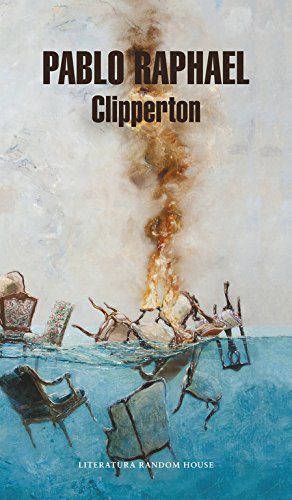
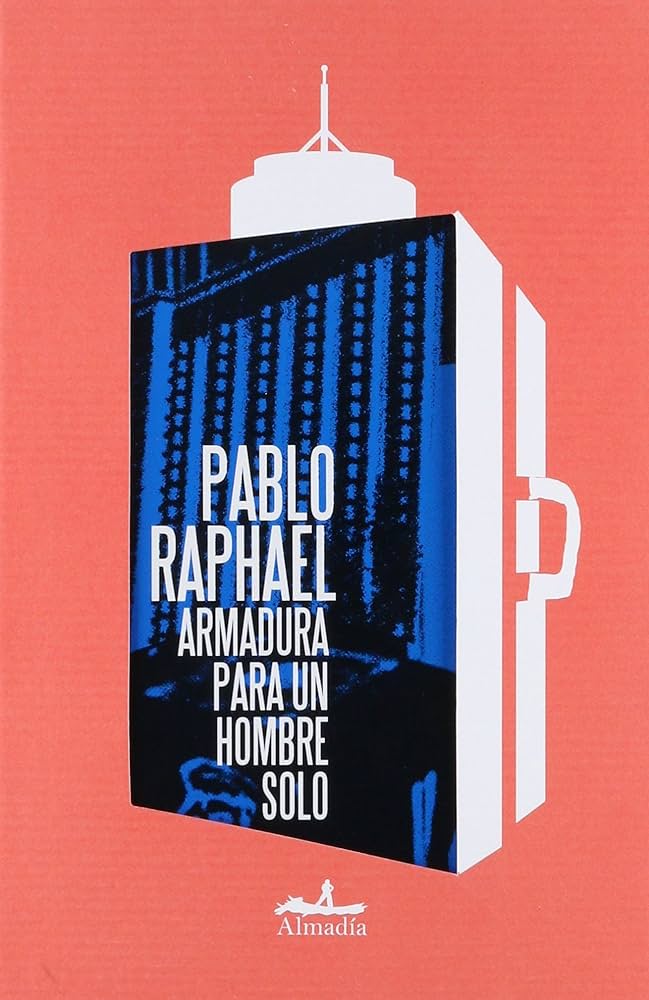
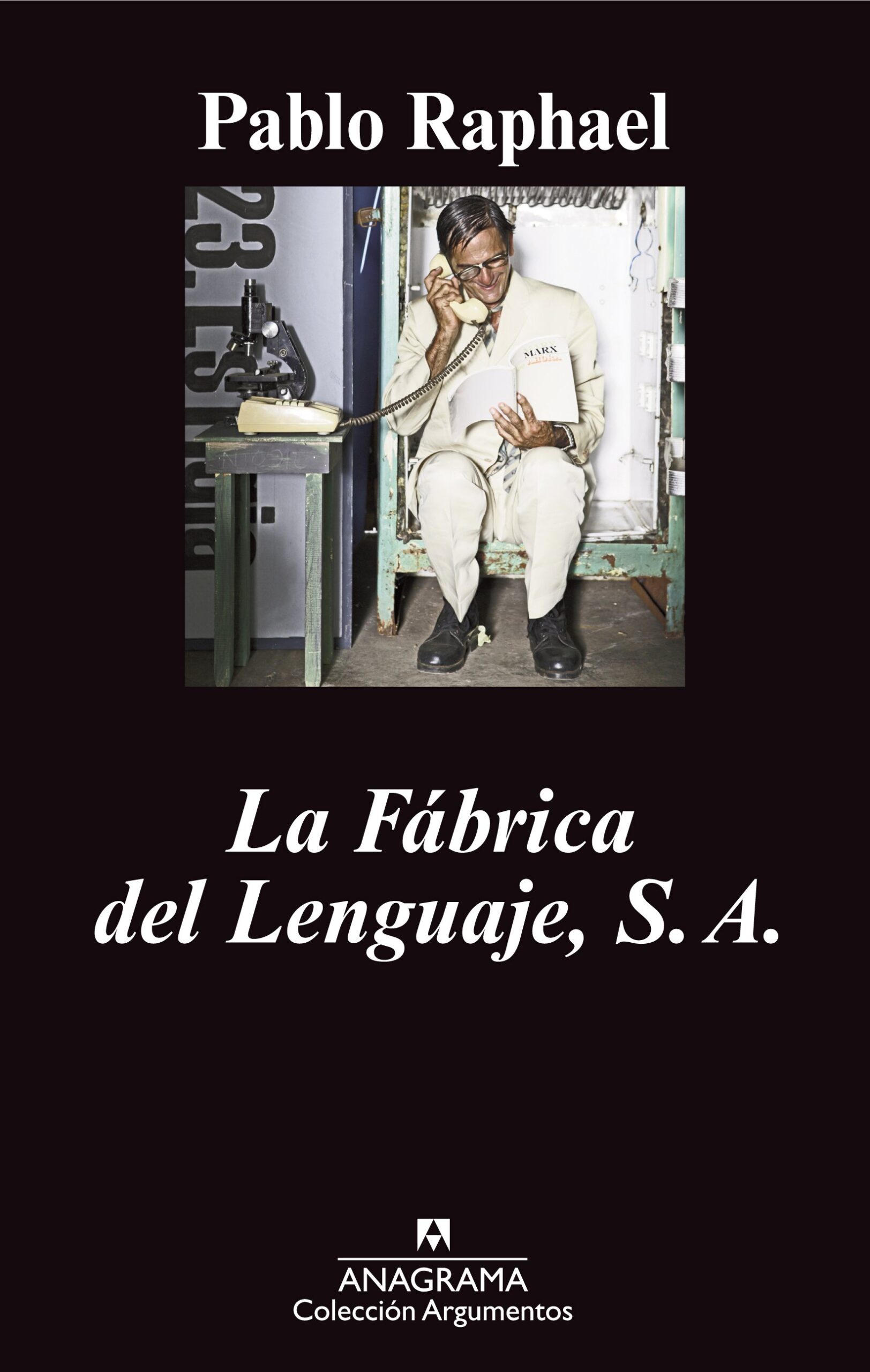
Marta Romagosa
Marta Romagosa (Cornellà de Llobregat, 1967) is a journalist and writer. She has been working at Catalunya Ràdio since 1991 and currently directs and hosts “La nit dels ignorants” on Catalunya Ràdio. In 2011, she received the Ràdio Associació de Catalunya Award for Best Professional. She is the author of Tots els noms del desig (Rosa dels Vents, 2022), 22 homes i un desig (Rosa dels Vents, 2018), La Polaroid i altres relats (Rosa dels Vents, 2019), Tres nits fora de casa (Univers, 2021), and 28 metres (Univers, 2025).
Marina Sanmartín
Marina Sanmartín (Valencia, 1977) is a writer, bookseller, and journalist. She holds a degree in Journalism from the Polytechnic University of Valencia and completed a master’s in Scientific Journalism at CSIC. She writes about crime fiction for ABC Cultural, El Periódico, and her blog La Fallera cósmica. She learned the bookselling trade at the TopBook bookstore in Madrid and later worked at Bertrand bookstores in Zaragoza and Alcalá de Henares, as well as in the book department at Fnac Callao. She then joined the Book and Communication Departments at Fnac Madrid. Currently, she is managing partner and director of the bookstores Cervantes y compañía in Madrid and Ponferrada. She is the author of five novels, including Las manos tan pequeñas (HarperCollins, 2022), which won the Best Novel Award at the Valencia Negra festival in 2022.
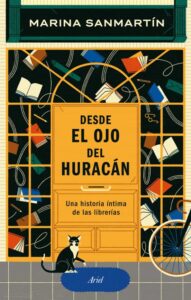
Desde el ojo del huracán
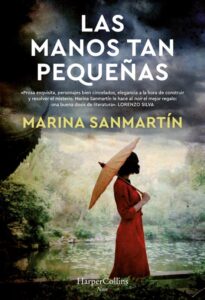
Las manos tan pequeñas
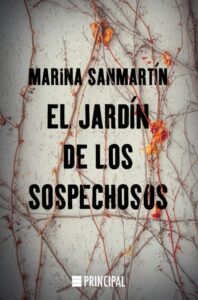
El jardín de los sospechosos
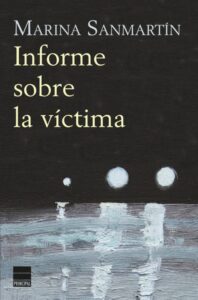
Informe sobre la víctima
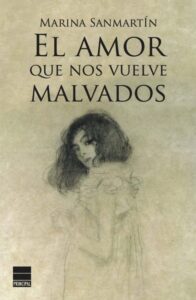
El amor que nos vuelve malvados
In this book, both intimate and universal, Marina Sanmartín delves into the history of bookstores through her own experiences as a bookseller and reader. A narrative essay that sheds light on how books have changed the course of humanity—and each of our personal histories. It invites the reader on a journey that begins with the images of prehistoric caves and clay tablets, continues through the Library of Alexandria, and arrives in the present day, all filtered through her personal lens.
The author recounts an odyssey structured in three concentric circles: the life story of a passionate reader; today’s bookstores as spaces of resistance, care, and struggle; and the universal history of bookstores.
Tokyo, autumn, second decade of the 21st century. The hands of young and world-famous ballerina Noriko Aya are found in the narrow seismic gap between two buildings near the gardens of the Imperial Palace and the hotel where crime novelist Olivia Galván and her husband, César Andrade, a professor of Comparative Literature, have just checked in. Along with the severed hands is a mysterious clue: a diamond and ruby ring that soon makes César the prime suspect.
Narrated in the first person by Olivia Galván, who finds refuge in her budding friendship with diplomat Gonzalo Marcos, a counselor at the Spanish Embassy in Japan, the novel follows the investigation into Noriko’s murder and aims to show that, more often than not, nothing is as it seems.
Martín Guidú has to attend his nephew Lucas’s parent-teacher day because his brother Anakin is in the hospital. The day should be uneventful: parents explain their professions to the children under the benevolent gaze of teacher Natalia Holden. It seems like a simple day in Caivelan until the body of a young girl, one of Lucas’s classmates, is found. Gathered in the school garden, now an unintended crime scene, Martín, Natalia, and police inspector Lorenzo Barriuso—three strangers forced to work together to solve the brutal murder—will plunge into the depths of evil and, at the same time, become friends.
In 2059, two criminology students begin to analyze the famous Informe sobre la víctima by journalist Cruz Cardenal, whose scientific discovery in 2014 revolutionized the world. They soon realize that, to uncover the truth behind the deaths that nearly fifty years ago changed everything, they must become detectives of the past. The only living witness is Rafael Cardenal, Cruz’s brother. Guided—and misled—by Rafael’s memories, they piece together a story of death and horror, of passion and madness.
Sara and Eduardo are a young couple living a seemingly happy life until the day she witnesses a homeless man die in the subway. But is that really all that happened? From that moment on, Sara must undergo psychiatric treatment, and her relationship with Eduardo begins a gradual and twisted transformation in which caregiver and victim often switch roles.
Things get more complicated when their neighbor, Dr. Jeremías Prun—a physician specialized in anatomy—returns to the house next door. Inevitably, Sara begins to feel that only Jeremías can free her from the burden that has weighed on her since that day.
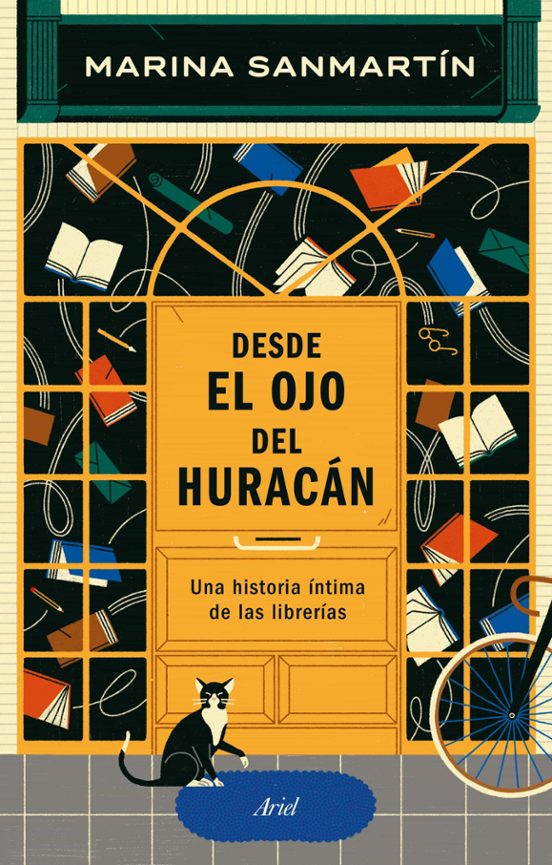
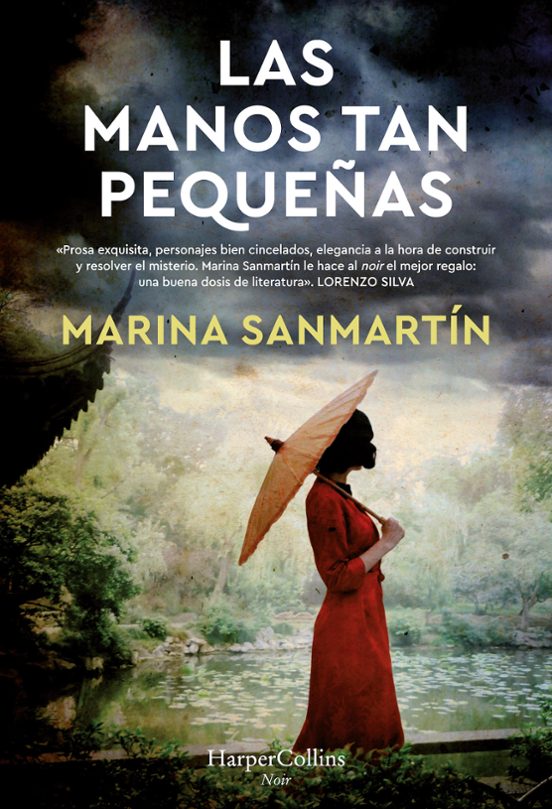
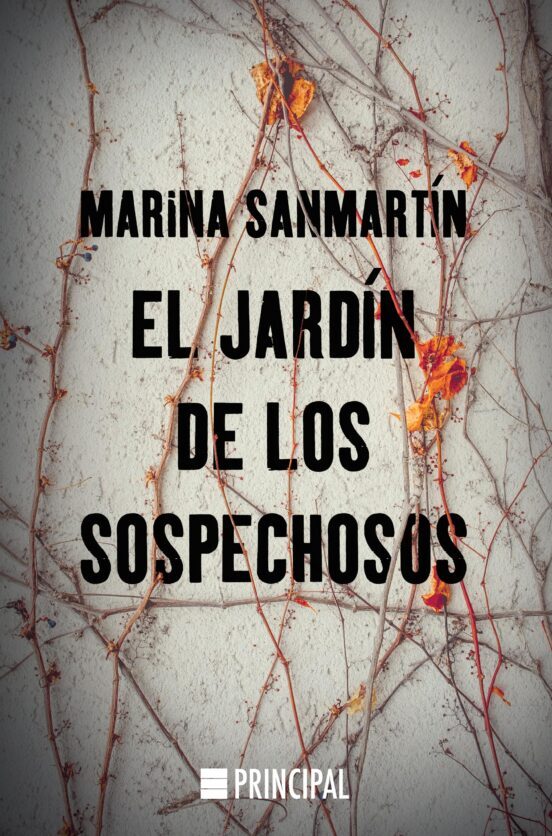
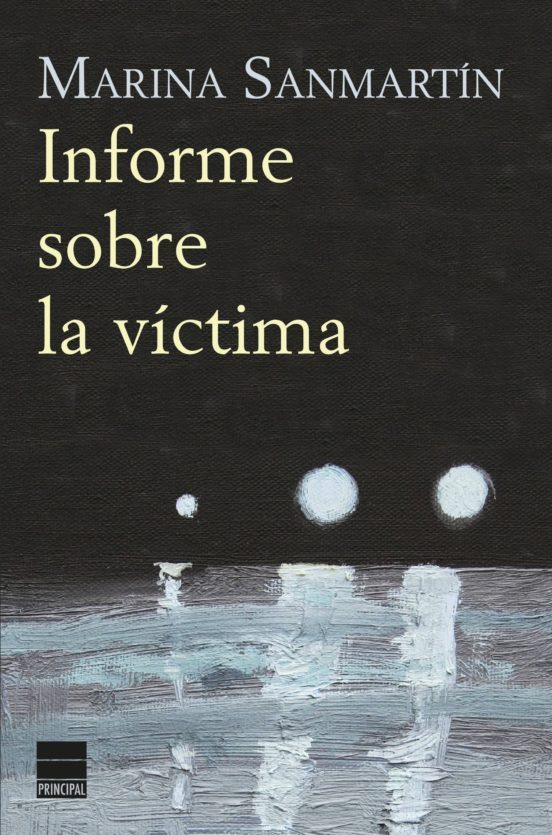
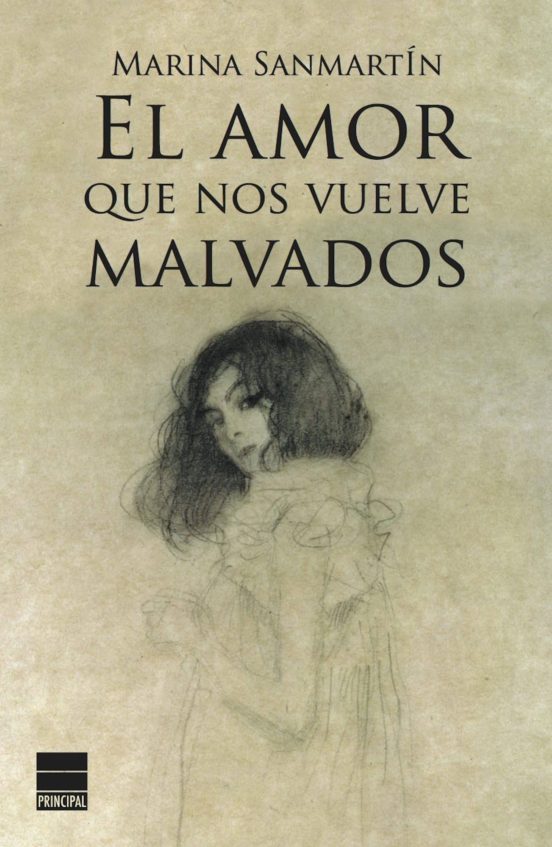
Maria Sellas Palat
Maria Sellas Palat (Barcelona, 1995) has a degree in dentistry. One summer night in 2017, after having written hundreds of stories during her metro rides to the university, she decided to create the Instagram account @segon.tercera, where she shares fragments of what she writes. After winning the University of Barcelona’s I Concurs Literari Lletres de Maig and becoming a finalist for the X Premi Helena Jubany with a collection of short stories, she decided to train as a writer at the Escola d’Escriptura de l’Ateneu Barcelonès.
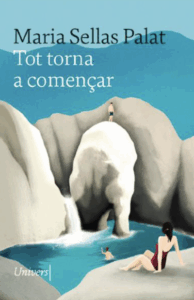
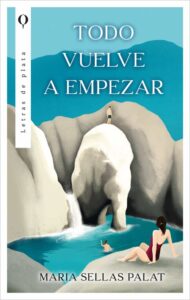
Tot torna a començar
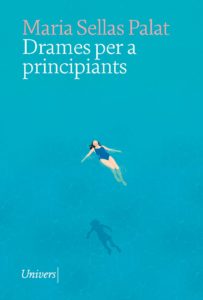
Drames per a principiants
In the blink of an eye, Sofia goes from being an architect working at a prestigious firm in Barcelona and living with her great love, to feeling like a failure with a shattered heart. Between the worst days of her life and the rural hotel in Venanson, a remote village in the Maritime Alps, one question keeps coming back: “Why not?” Why not start over? Why not give herself the chance to become another Sofia?
Put in charge of managing the hotel’s nonexistent reservations, she soon befriends Ethan and Julien. Both will help her heal the wounds of her Barcelona life and reconnect with feelings and sensations she thought long forgotten.
In Venanson, Sofia will experience days of revelation, of small joys found in fleeting glances and smiles, in excursions and carefree moments. Yet scattered among these luminous days—since happiness is never complete nor perfect—she will also encounter a persistent sadness that threatens to undo it all. No one ever said playing at being an adult was easy.
Rights sold: World Spanish (Letras de Plata)
It’s a summer day and, while floating far from the beach, from Marc, and from this invention called adult life, Júlia is happy. Or as happy as one can be when not yet aware that the door to the past is not properly closed.
A blue envelope in the mailbox, which usually only receives bills and advertisements, will have Júlia returning to Montpellier, to reminisce about her exchange year, to visit old friends, and to reconnect with John’s story, a wound that will inevitably threaten the fragile balance she has managed to maintain in her life until then.
Rights sold: World Spanish (Letras de Plata)
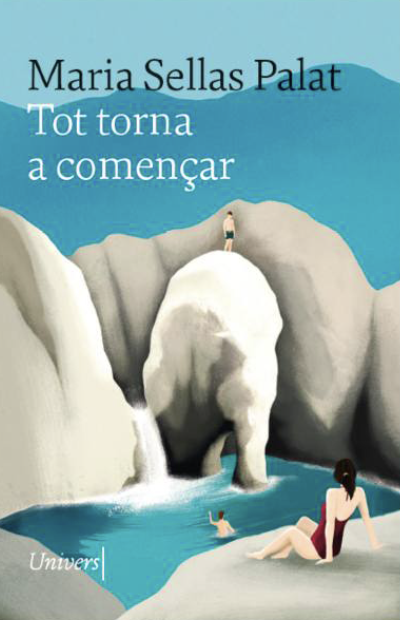
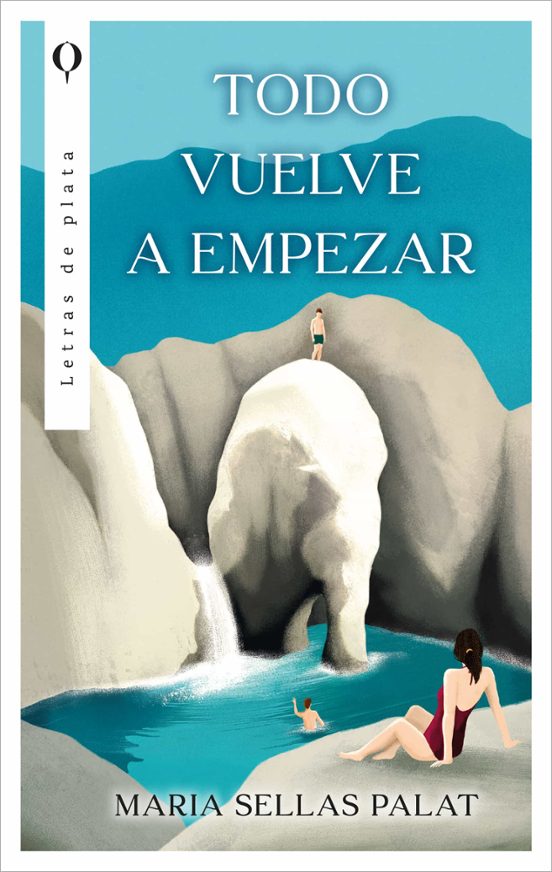
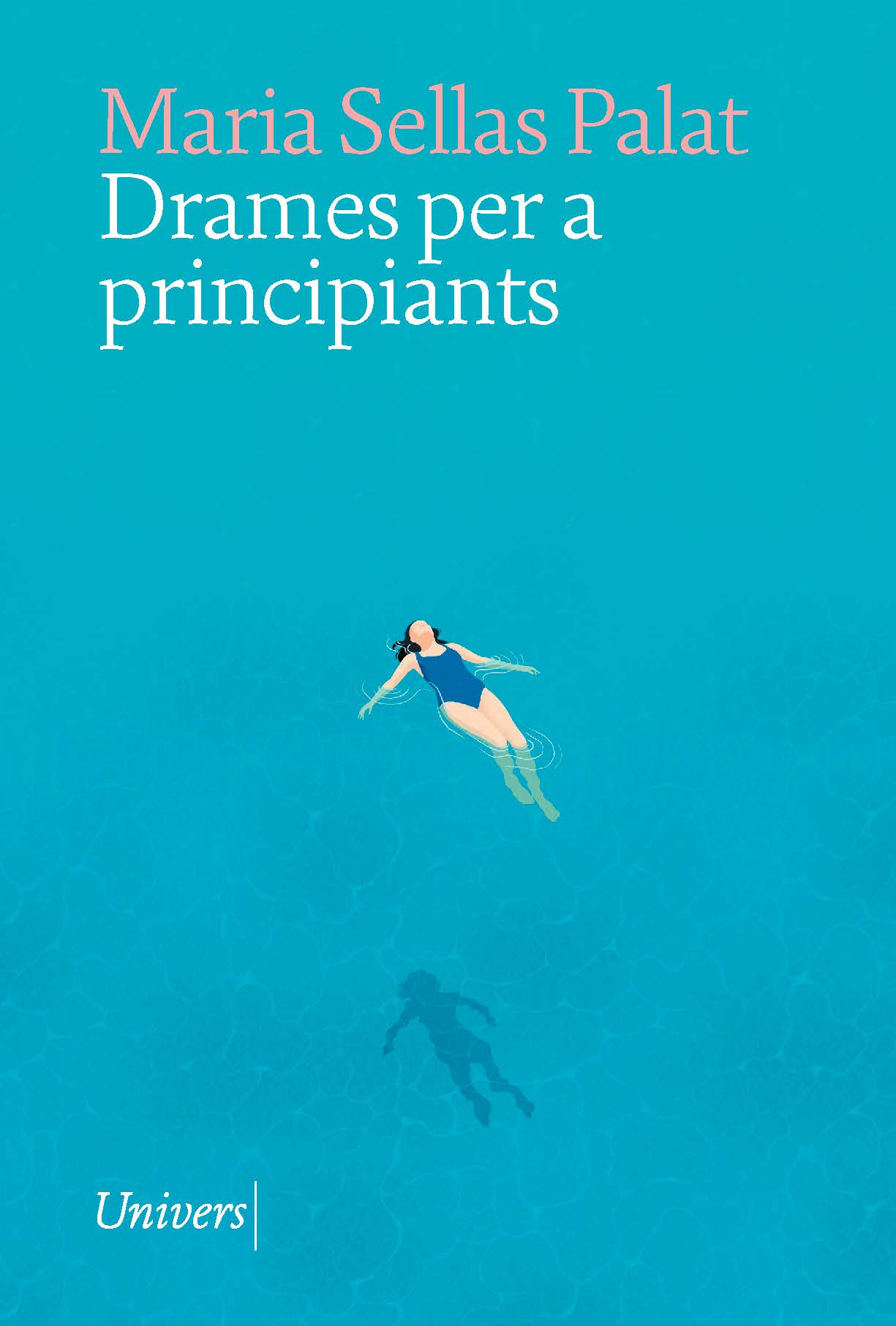
Marina Tena
Marina Tena i Borràs (Barcelona, 1995) is a graphic designer, illustrator, and comic book author. As a child, her favorite game was creating books and handing them out to her friends. Her passion for visual storytelling led her to study graphic design and illustration, specializing in creating images with soft shapes and vibrant use of color. Her work moves between comics, editorial illustration, and graphic design, always with a playful, social, and expressive approach. She has published her debut comic, Sucre, translated into three languages (Catalan, Spanish, and Korean), and is co-author of other works such as ¿Y si te comes la magdalena? (INUK, 2023) and Atles de cuina (Mosquito Books, 2025).
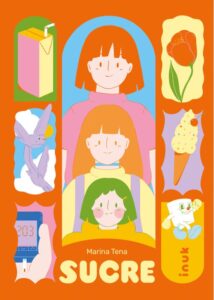

Sucre
When Marina is diagnosed with diabetes, she believes everything will stay the same. But from that moment on, nothing is. What is life really like for a girl who must think about survival every single day?
From childhood to adulthood, Marina Tena offers an honest and emotionally charged account of her own experience living with diabetes—one that could just as easily reflect the lives of many other young people living with a chronic diagnosis.
A powerful life lesson that won’t leave anyone indifferent, where illness plays a central role, but is ultimately surpassed by love for life, passion for the little everyday things, and, above all, personal resilience.
Rights sold: World Spanish (Inuk)
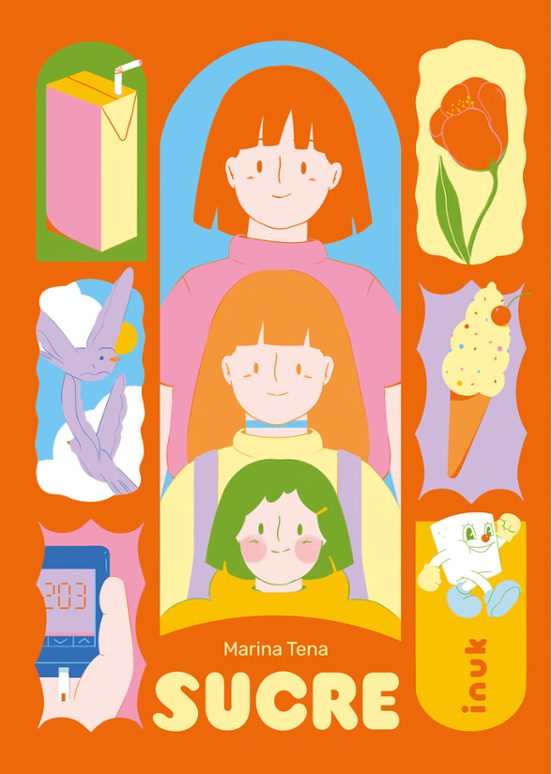

Oriol Vergés
Oriol Vergés (Barcelona, 1939) has a degree in geography and history. He is a prolific author of an important oeuvre for young readers. He has written narratives, short stories, historical novels, theater, and didactic books and contributes to Tretzevents, Cavall Fort and Rodamón magazines. His work was decisive in the revival of Catalan children’s and young adult literature starting in the late 1960s and was awarded the Folch i Torres prize in 1977, the Joaquim Ruyra prize in 1978 and the Crítica Serra d’Or prize for children’s and young adult literature four times.
Laia Vilaseca
Laia Vilaseca (Barcelona, 1981) is a writer and journalist passionate about mysteries, true crime and crime novels. In 2021 her novel La chica del vestido azul was published by Suma. It arrived in bookstores after becoming a bestseller during the three years it was self-published on Amazon, where it attracted many more readers and earned her a place as one of the new voices in crime fiction.
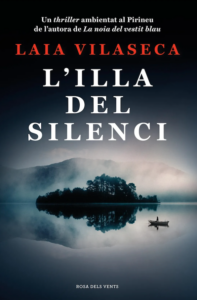
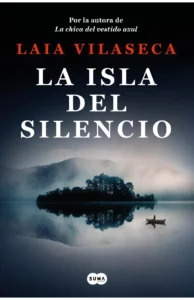
L'illa del silenci
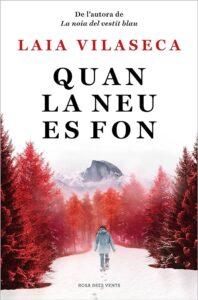
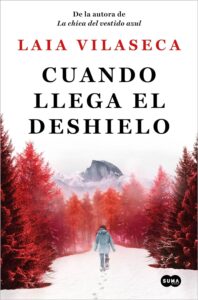
Quan la neu es fon
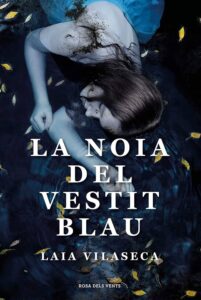
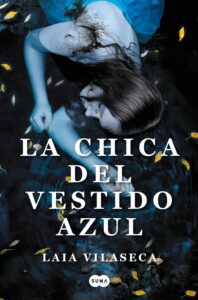
La noia del vestit blau
In 1982, a macabre triple murder in Sant Jordà, a small village in the Catalan Pyrenees, would forever mark the lives of its inhabitants. The bodies were found by the police on Silent Island, a place known for its dark legends and a lure for all those who visit it. After the killer was arrested, Sant Jordà attempts to overcome its past and return to normality. But the island remains paralyzed, incapable of forgetting the terrible events it witnessed.
Years later, Nil, the son of the policeman who handled the case, decides to make a documentary about the tragedy and, as he delves deeper, he discovers that not all the evidence corroborates that the person arrested was the culprit.
When Nil suddenly disappears, his best friend, Emma, is convinced that something has happened to him. But it will take twenty-seven years before Emma, after finding a mysterious envelope under her door, finally discovers the truth about what happened to her friend and the secrets hidden on Silent Island.
Rights sold: World Spanish (Suma)
Yosemite National Park, February 2016. Young college student Jennie Johnson disappears inside the park without a trace. Ranger Nick Carrington is put in charge of investigating the case. The strange circumstances of the disappearance prompt him to write a book in which he recounts the most important findings after realizing that his life is in danger.
Las Vegas, April 2019. Sarah Sorrow, a professional poker player, discovers the identity of her father after several years of searching. Unfortunately, Nick Carrington has died while investigating the disappearance of a young woman. Driven by curiosity, Sarah decides to pull the thread and unravel the truth that connects the two events, unknowingly beginning a puzzle that will become more and more complicated.
Rights sold: World Spanish (Suma)
Martina has just arrived in Treviu, a small mountain village where she’s spent her summers her entire life. She needs to escape Barcelona and there, surrounded by childhood memories, she feels safe. Once installed, she learns that someone has desecrated three graves in the old cemetery. One of them belongs to an unidentified girl who died more than thirty years ago on the Malpàs bridge and that everyone remembers as “the girl in the blue dress.” Everything points to suicide, but her death remains a mystery.
When Martina decides to investigate what happened to the girl, she unknowingly sets in motion a series of events that will lead her into a dangerous adventure. One in which she will have to face someone willing to do everything possible to prevent the secrets of the past from coming to light.
Rights sold: World Spanish (Suma)
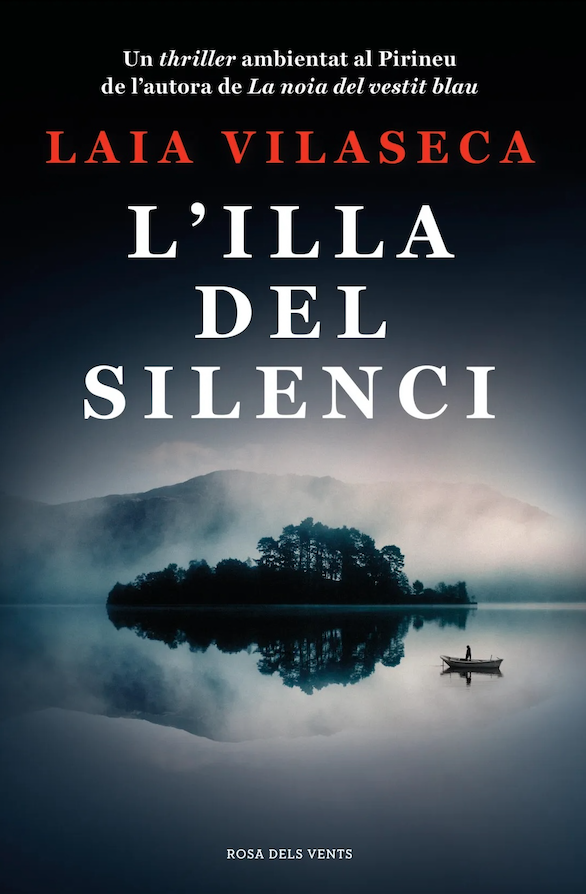
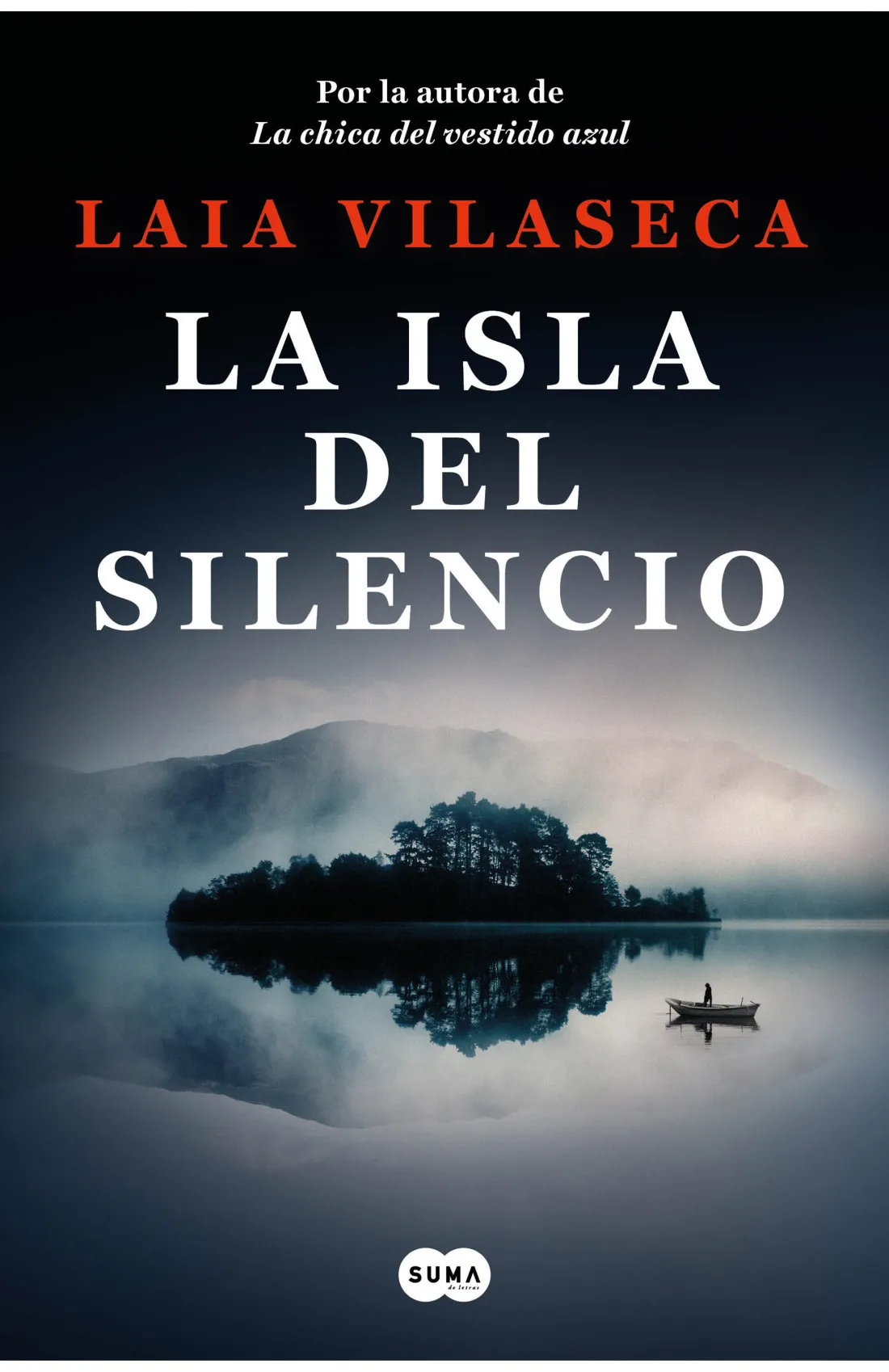
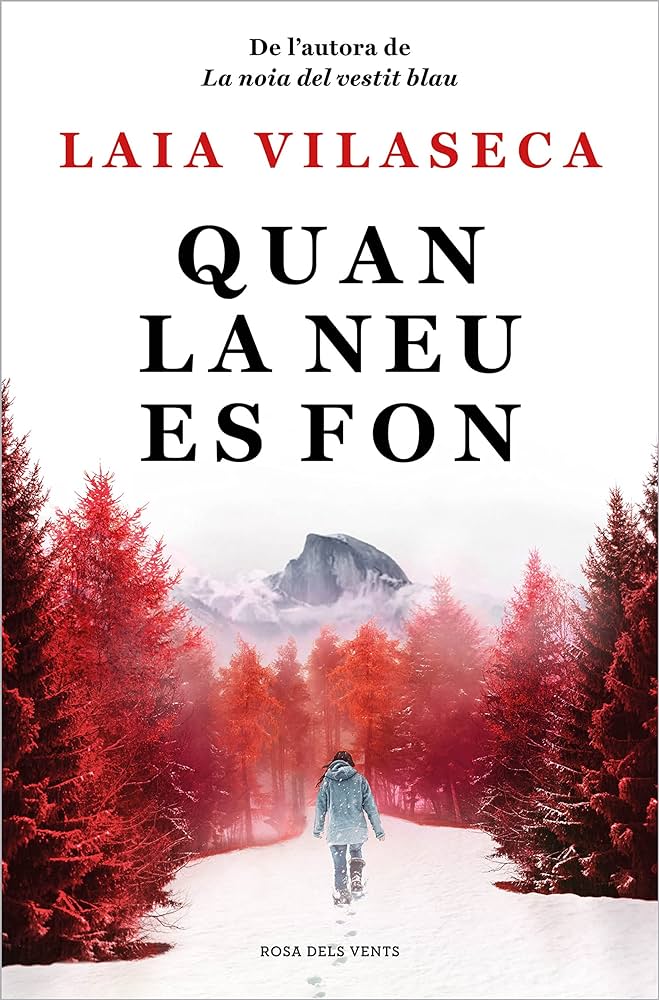
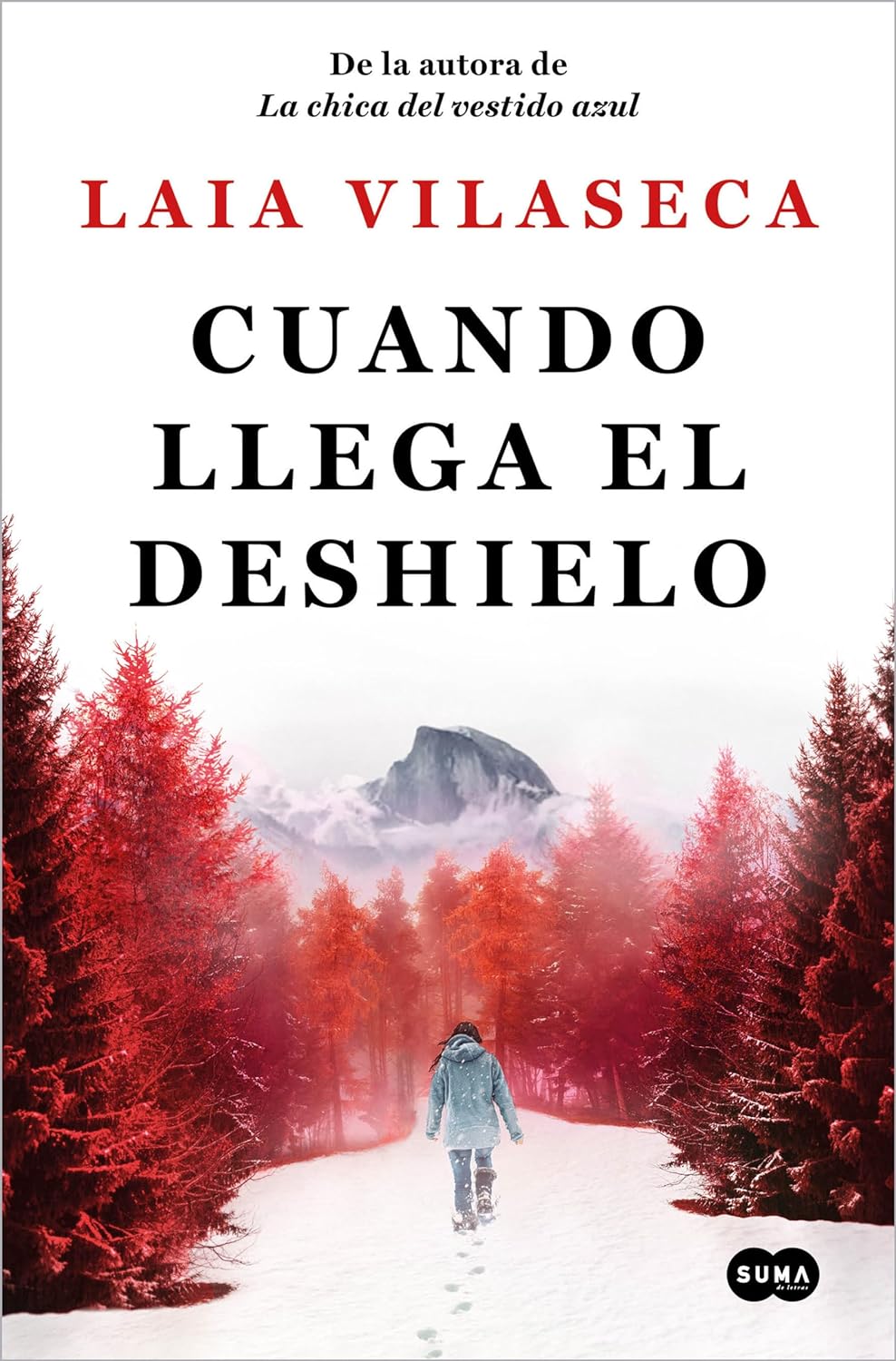
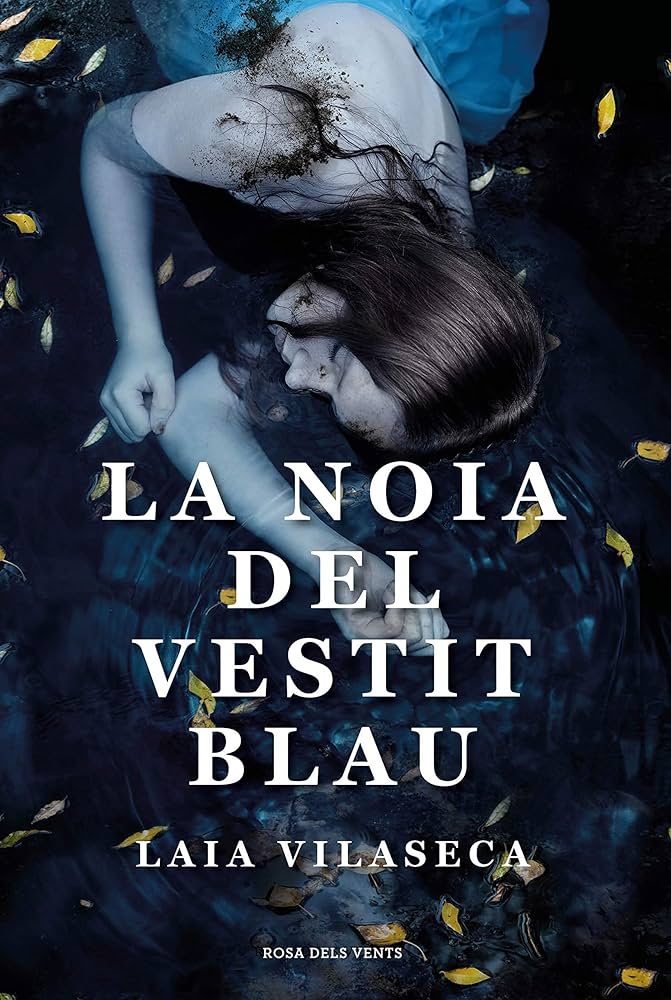
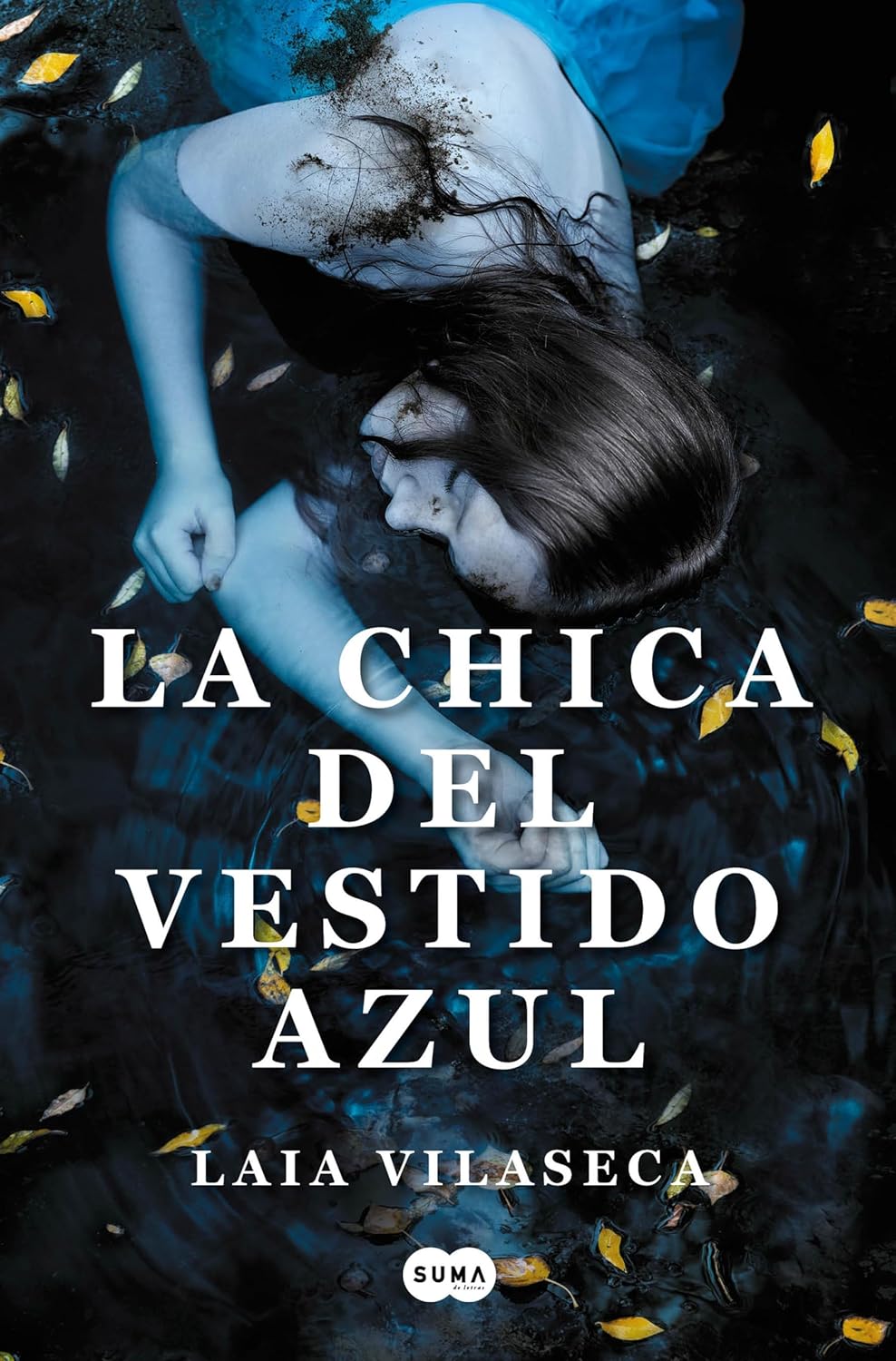
Nerea Zorokiain Garín
Nerea Zorokiain Garín (@nerea_zorokiain_garin) is a teacher and advocate for healthy eating. She works as an instructor at various schools, both nationally and internationally. For years, she has specialized in fermentation and digestive health, developing multiple initiatives related to these topics. She teaches courses, gives talks and seminars, and takes part in research projects. She is the author of Fermentación: crear recetas saludables, fáciles y sencillas (Grijalbo, 2020) and La cocina probiótica: Recetas fáciles, sanas y deliciosas para cuidar de tu microbiota (Grijalbo, 2022).

La cocina probiótica

Fermentación
The cookbook for caring for your microbiota. Probiotic nutrition is designed to preserve the habitat and living conditions that beneficial microorganisms need to thrive in our digestive system. Thanks to the microbiota, we are able to perform essential life functions and, in turn, looking after it brings great benefits: better nutrient metabolism; enhanced immune response; natural weight regulation; and emotional balance.
This book provides the keys and over 80 recipes that emphasize the origin and quality of ingredients to help you achieve lasting transformation over time.
Fermentación will open the door to a way of cooking you never imagined. With just a bit of vegetables, salt, time, and enthusiasm, you’ll be able to prepare simple and tasty dishes while caring for your microbiota through fermentation—a process that transforms food nutrients into natural probiotics.
Nerea Zorokiain Garín, one of the country’s leading experts in this culinary technique, teaches you how to master the art of preserving: key techniques, essential tools, practical tips, and very simple recipes to integrate into your daily life, suitable for both beginners and those with prior knowledge looking to go one step further.

